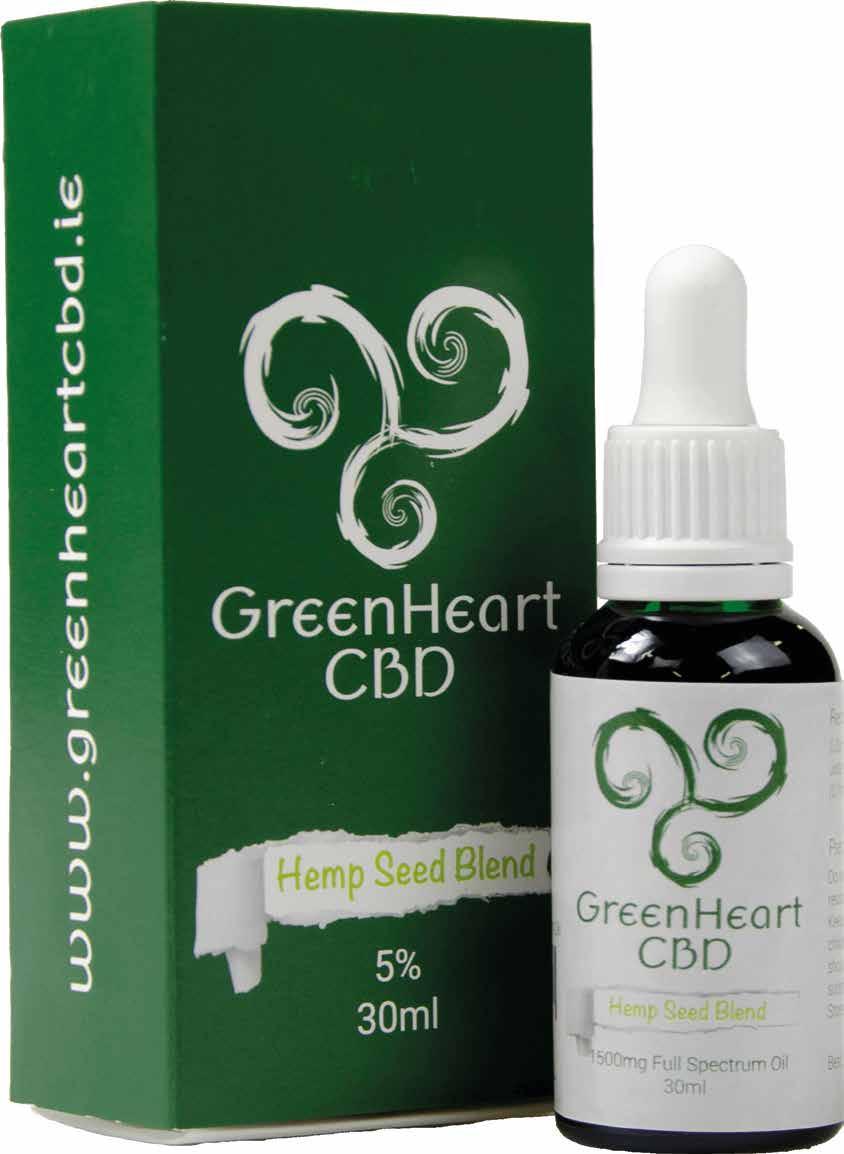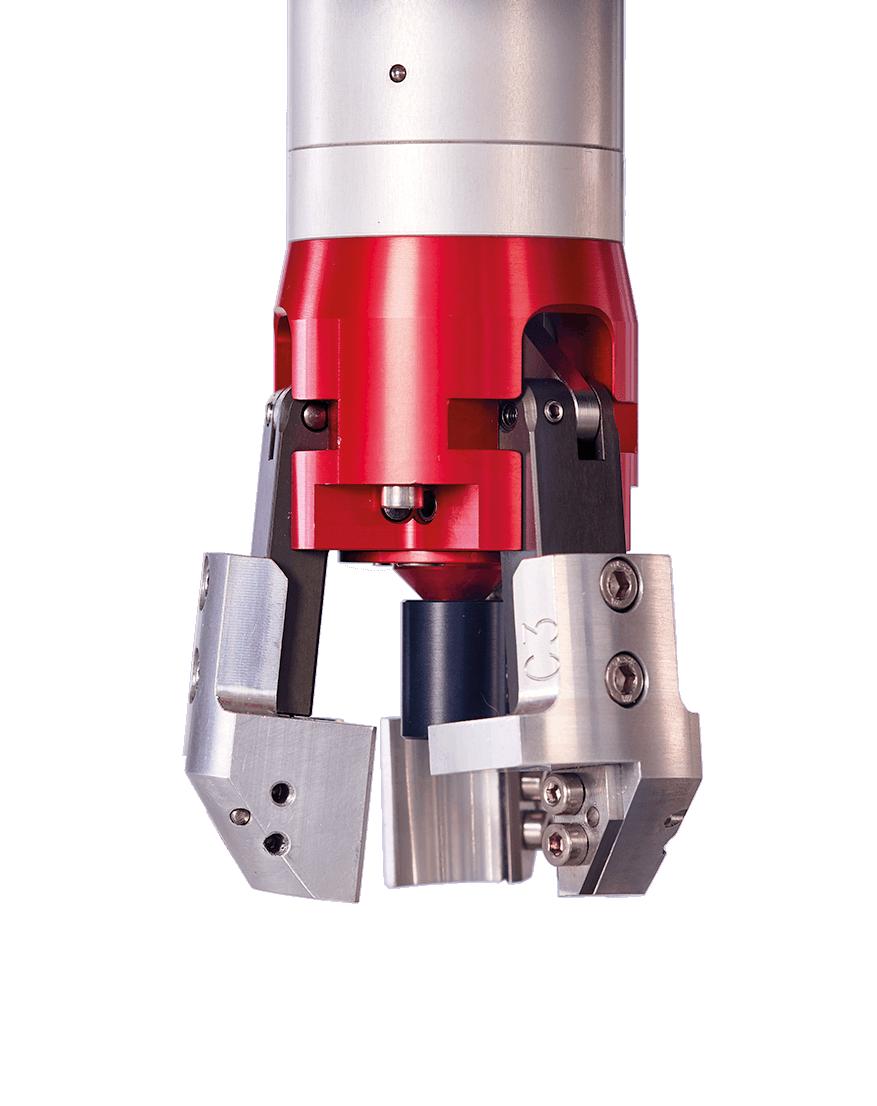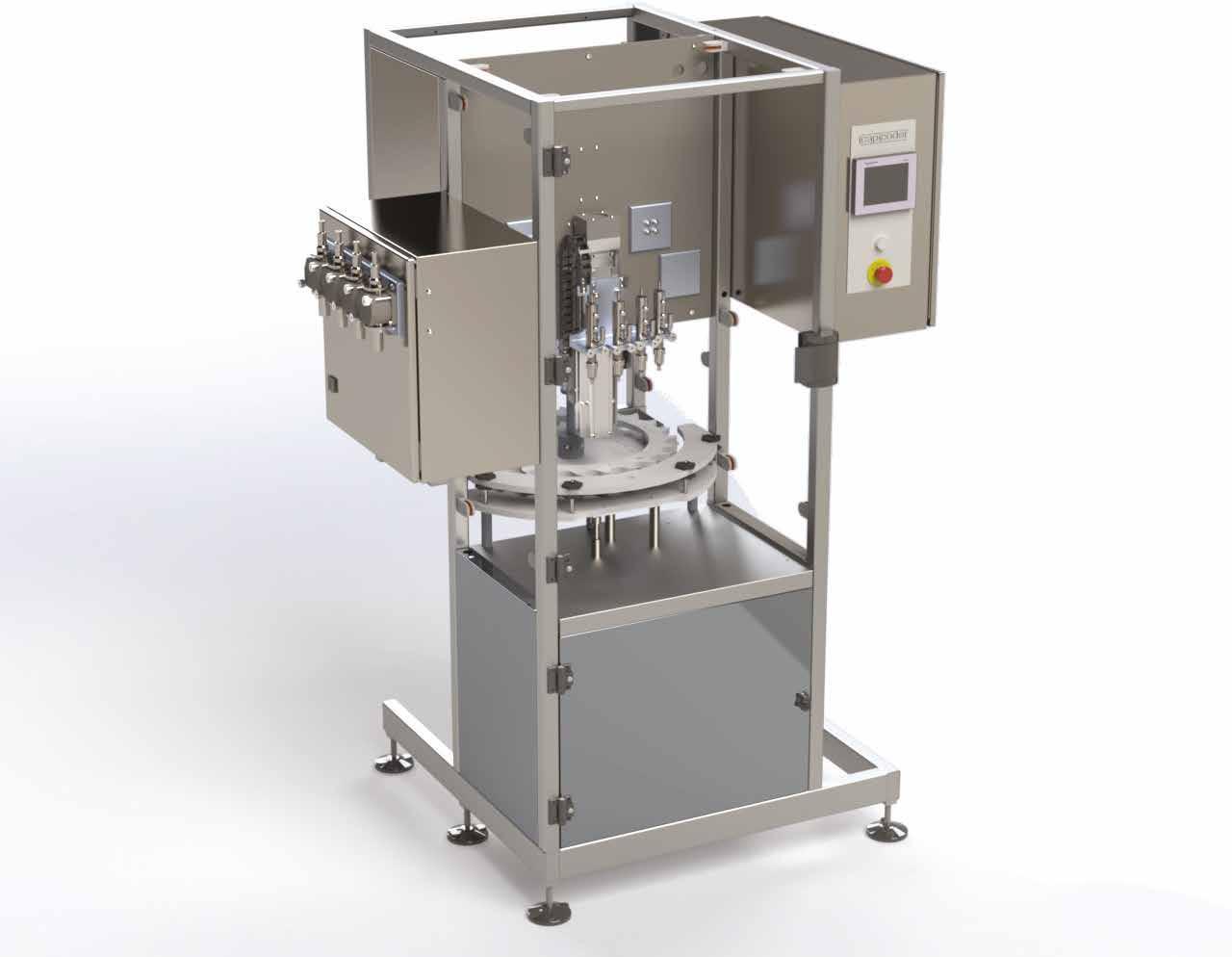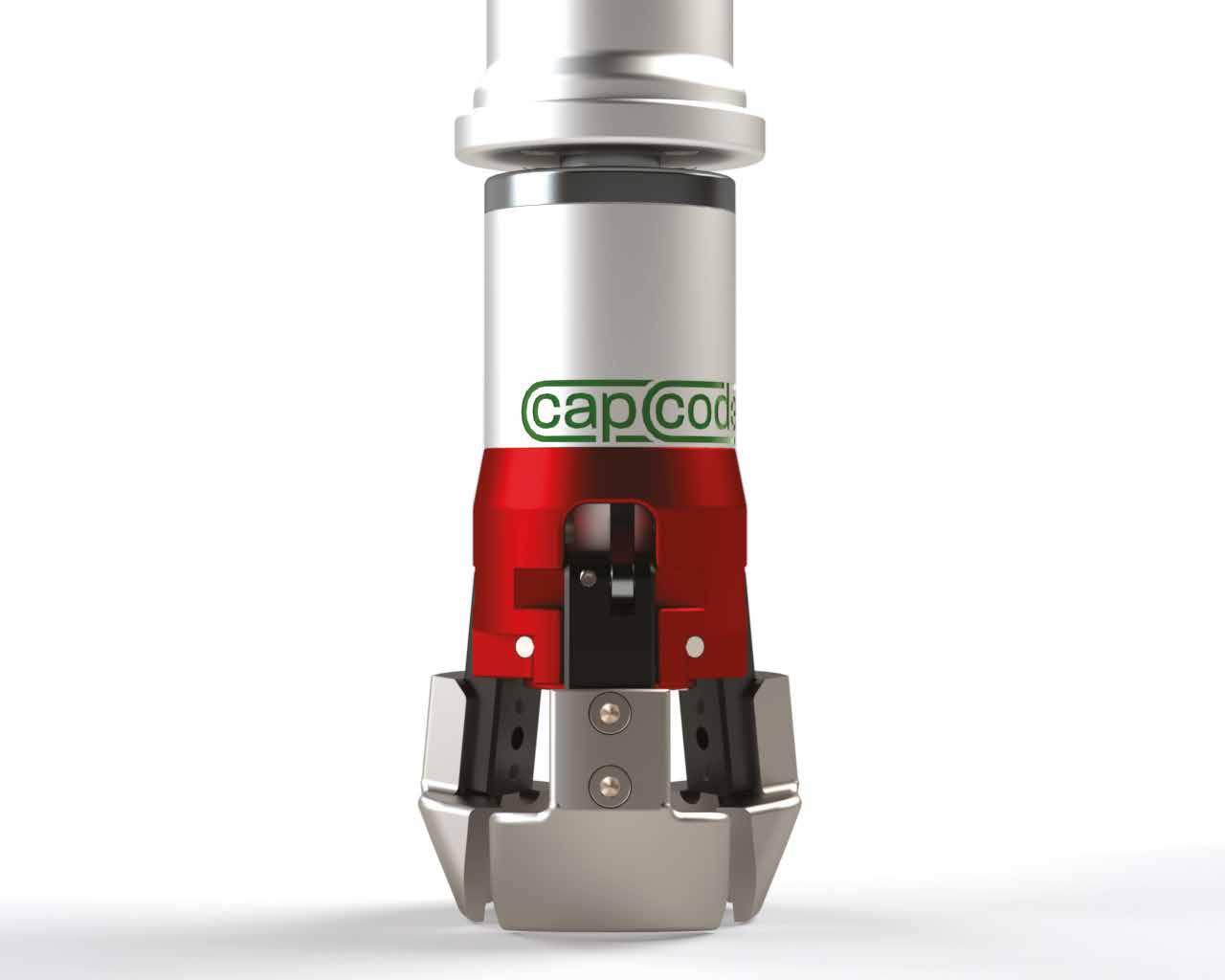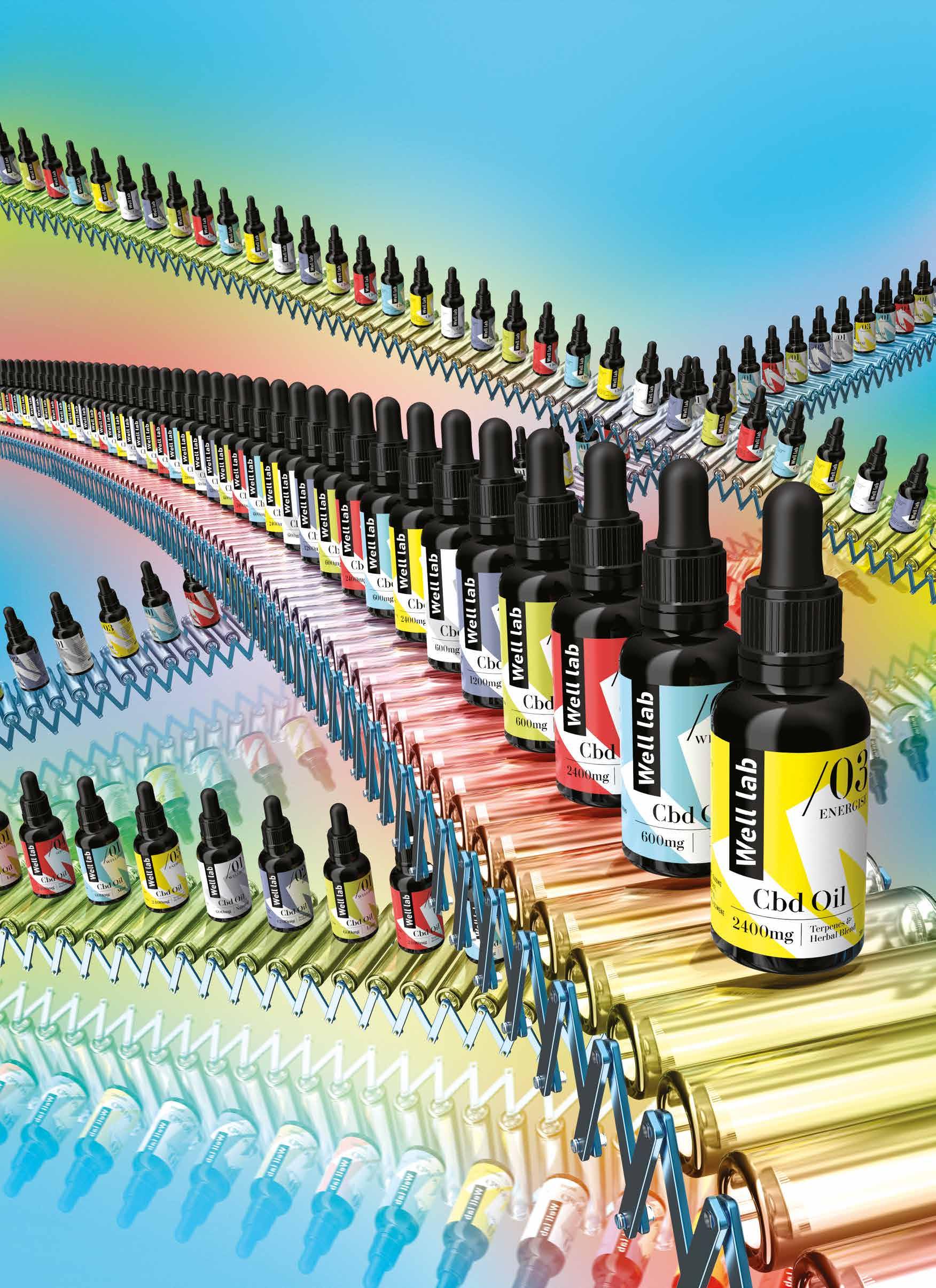






















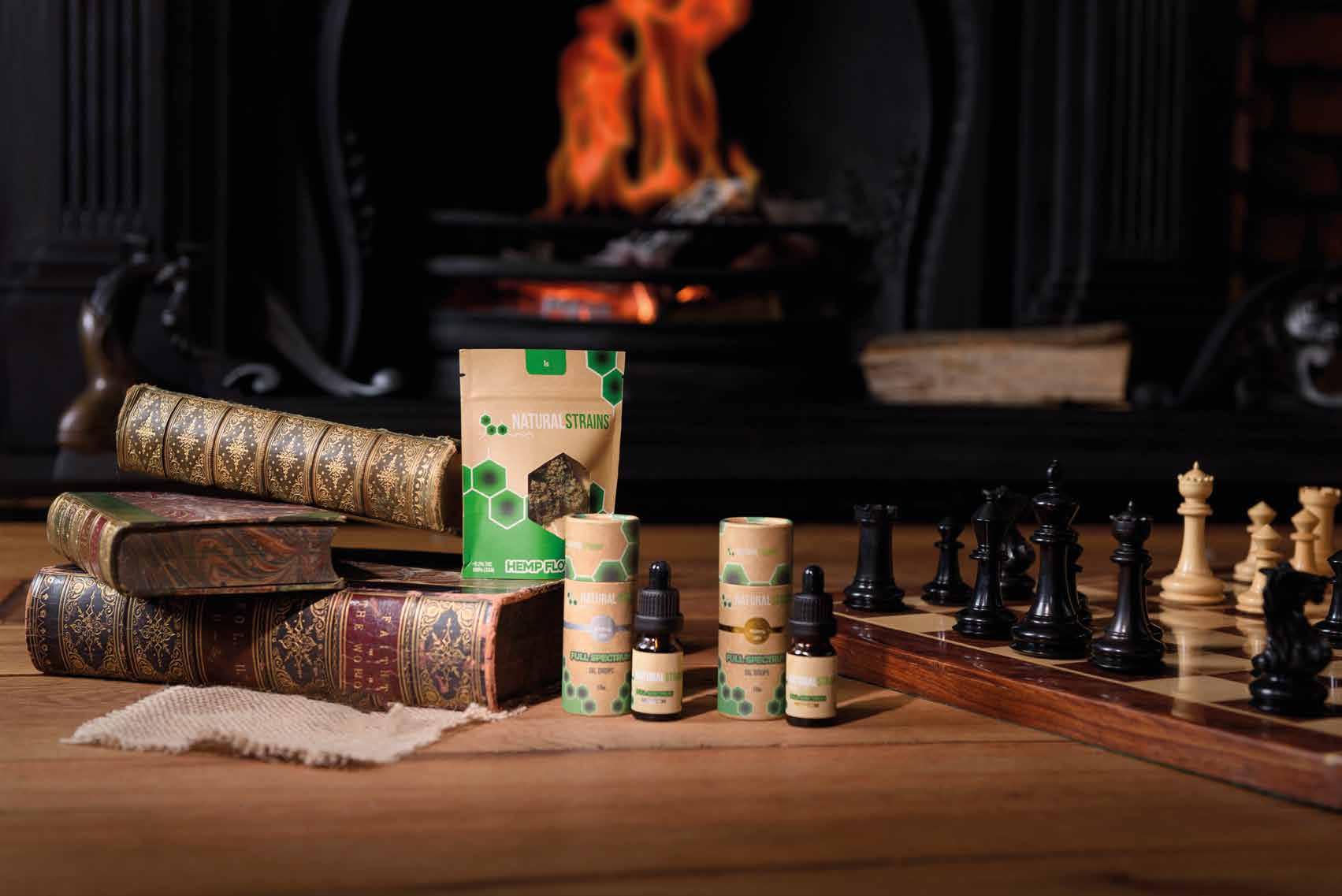
At Natural Strains, we’re committed to providing our customers with the very best CBD Oil for sale. We have strived to work towards a line of products that are natural, pure and free from chemicals or impurities. We also offer a diverse range of CBD strains such as sativa and indica. Crafted with care, our organic CBD oil comes from licensed and organic providers and is regularly tested to ensure that we sell only the highest quality CBD hemp oil in the UK.
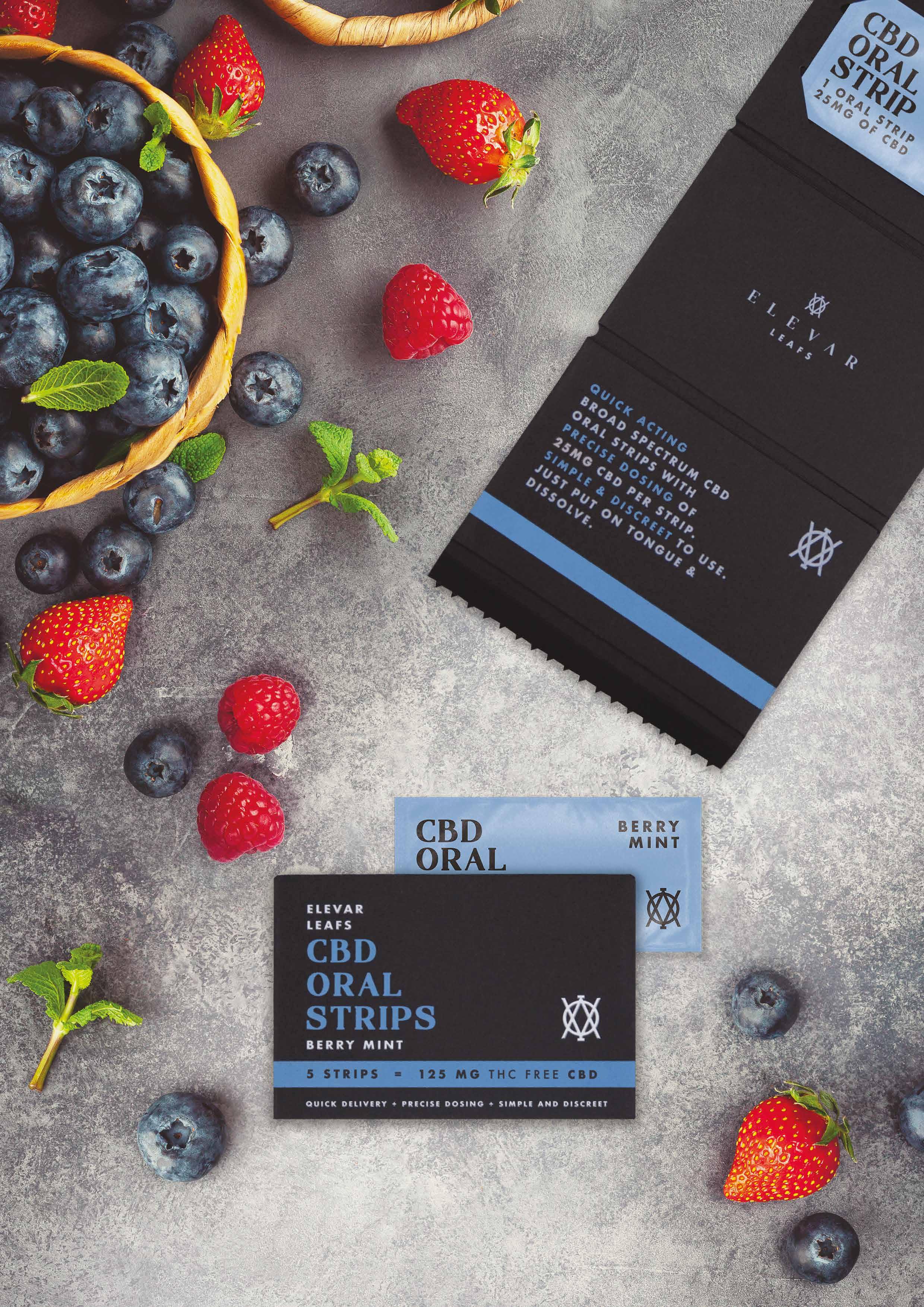
CBD-infused skincare created to help target areas of severely dry, irritated or in amed skin.





“We put this one to the test on extremely sore, broken, unhappy skin, and this butter was as gentle as could be.”
RE:SCUE


"Deeply nourishes and is ideal for very dry, irritated or inflamed skin.”








The Editor Róisín Delaney
Assistant Editor Gordon Stribling
Journalist Caroline Barry
Creative Director James Parnell
Head of Design Hayley Parker
Lead Designer Ayaz Arshad
Junior Designer Aaron Rana
Design Support Lucy Booth
Marketing Director Katie Loomes
Web Developer Kain Alden
Marketing Executive Carrie Strouther

Marketing Executive Jill Shah
Photographer Rob Rutley
Finance Director Kris Worton
Finance Executive Rochelle Warsop

Finance Executive Anna Difusco
CBD Sales Manager Jason Bacon
Client Partnerships Manager Stephen Culf
Sales Executive Baz Bassra Sales Executive Kirk Martin Sales Executive Peter Masters
Managing Director David Turner CEO Paul Caplin
For those who have received both doses of one of the Covid-19 vaccines, you must be feeling relieved. The speed at which the vaccines have been delivered and embraced the world over has been a saving grace in every sense. It has truly saved us all. But for many, with chronic physical and mental health concerns, there is no jab in the arm long-term solution.
Over the course of the pandemic, a lot has happened. At one time it may have seemed like the world was on pause, but behind the corona curtain, the cannabis chain was at work.
Privately held medical cannabis clinics opened up to virtual consultations, maintaining that doctor-patient rapport and ensuring patients didn’t have to go without medicine.
Retailers closed their doors and embraced e-commerce like never before.
Manufacturers revamped the way they make products, now living up to a standard of safety and quality imposed by the Food Standards Agency.
That brings us to this issue of The CANNAVIST. Issue 11 is your feelgood, educational source for all things CBD & medical cannabis and our sixth Covid-era publication.
As we emerge back into society (almost like an episode of Bridgerton) there’s bound to be some social anxiety in the works.
latest in skincare, to prep for your first public appearance in a long time (red carpet optional). Then on page 56 you can learn all about the cannabis companies making a mark on the London Stock Exchange for the first time. Also in this issue, you will find the words of the esteemed London pain specialist, Dr Anthony Ordman, who writes about the benefits of cannabis therapies for fibromyalgia patients. On we go...
This publication and the products shown herein are intended for an 18+ audience. The comments and opinions given by contributors to this publication are not the views of the editor or magazine, unless otherwise stated. The products featured in this magazine are not sponsored, were included at the decision of the editor / publisher and were not seen or altered by the suppliers in any way prior to publication. While every effort is made to respect editorial and advertising standards, The CANNAVIST cannot accept liability for issues raised or comments made by those featured in this magazine. Should you have a query about the content in this publication, email the editor: editorial@cannavistmag.com
Your sleep pattern might have changed due to working from home. Your skin might need a dose of TLC from wearing a face mask
The CANNAVIST is published by Orange Fox Media Ltd in Derby, United Kingdom.
The CANNAVIST is printed and distributed by Warners Group Publications in the UK.
The CANNAVIST is a member of the Independent Press Standards Organisation. We abide by the Editors’ Code of Practice and we are committed to upholding the highest standards of journalism.


If you think such a standard has not been met in this issue of the magazine, and you would like to make a complaint, email the editor at editorial@cannavistmag.com. We will endeavour to respond to your complaint as soon as possible, or within five working days. If we are unable to resolve your complaint, or if you would like more information about the IPSO Editors’ Code, go to ipso.co.uk. The CANNAVIST (print) ISSN: 2633-4097. The CANNAVIST is a registered trademark.
For all advertising enquiries email: advertising@cannavistmag.com. For event enquiries, email: events@cannavistmag.com. Got an editorial opportunity or work in PR? Email the editorial team: editorial@cannavistmag.com. For more information about this magazine, go to Cannavistmag.com or call the head office on 0044 (0) 1332 650 239. Office hours are Monday-Friday, 9am-5pm.
Our Founder, Vicky, started using CBD products a number of years ago to manage her own health and wellbeing. After realising the incredible impact these products had made to her life, she decided to start sharing her knowledge with everyone she knew and CBD Angel was born. Over the last few years the business has grown substantially, with an ever expanding range available.
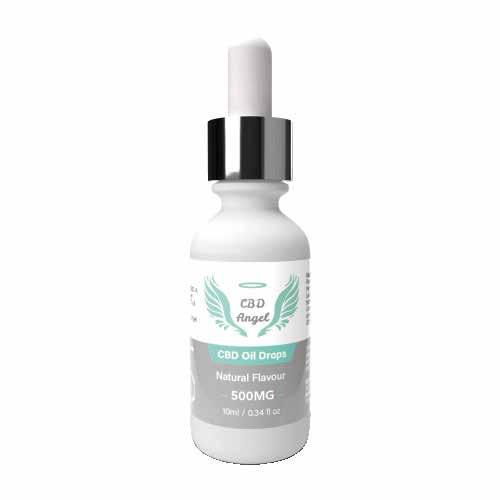

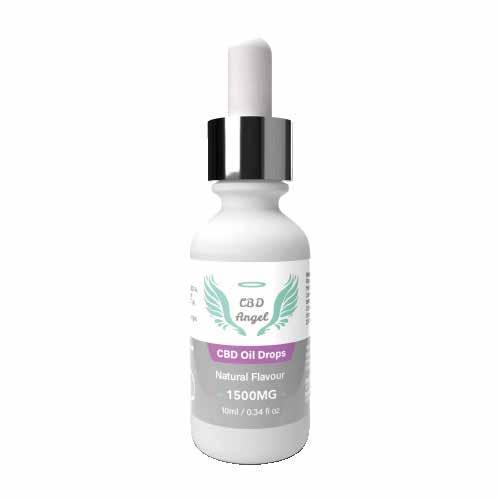
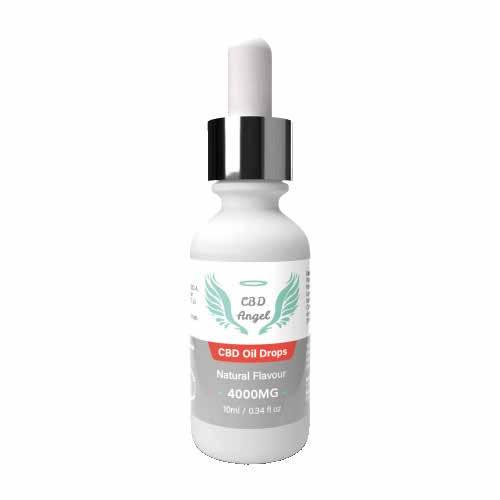


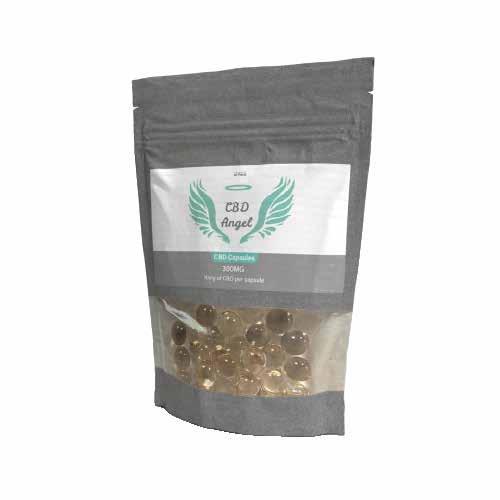
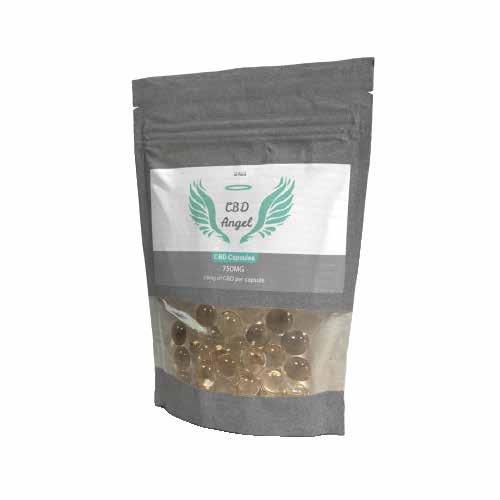





The Extract. News in brief Cancer-anorexia clinical trial begins in the UK Met Police to change stop and search rules?
Public support backs cannabis: YouGov poll. Alzheimer’s study shows promise
33
MILE HIGH LABS: We catch up with the world leading CBD manufacturer in Belfast as the US-UK operation prepares to dominate the growing CBD sector.
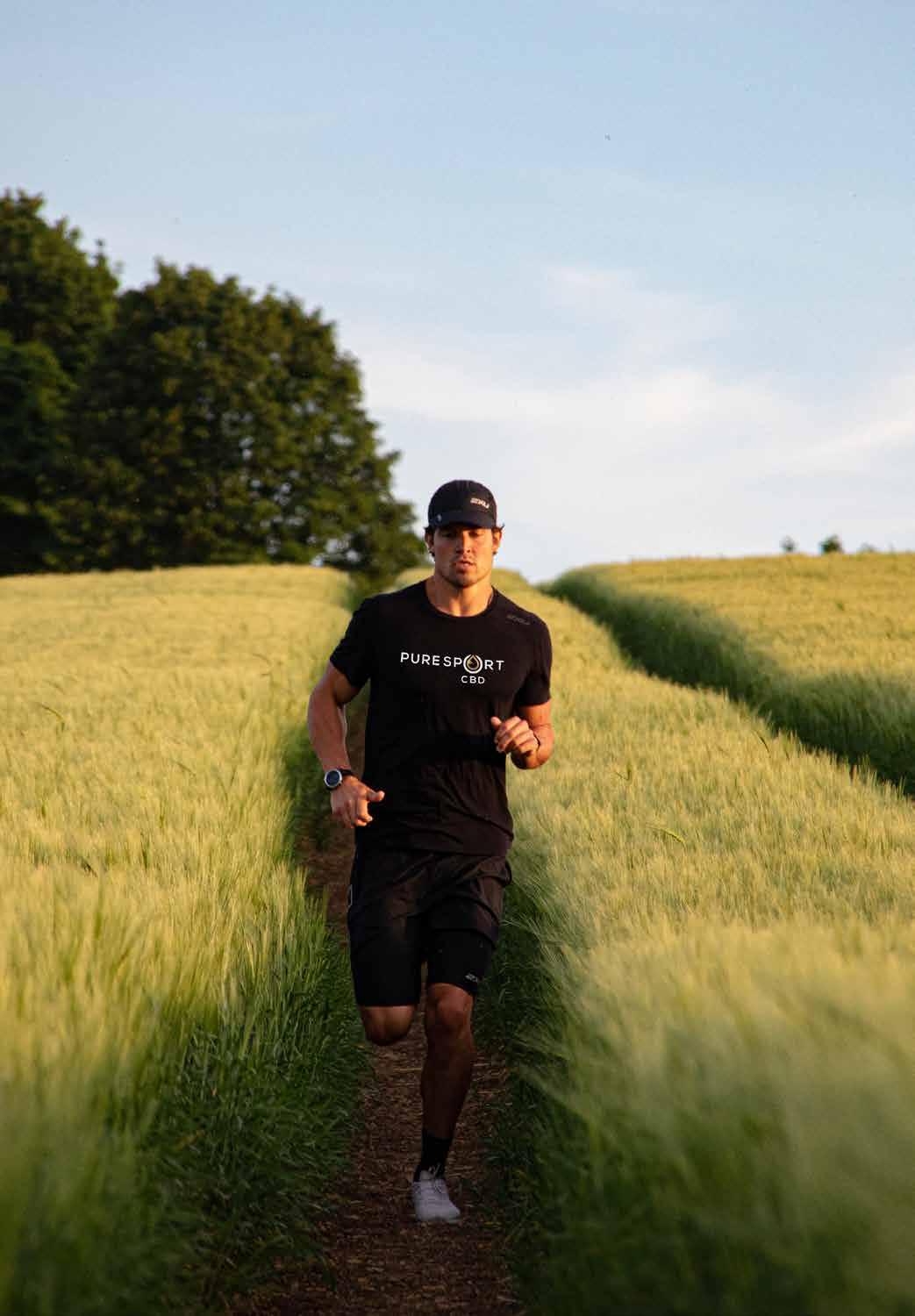

Which medical cannabis card is for me?
Couple share their story Irish medical cannabis

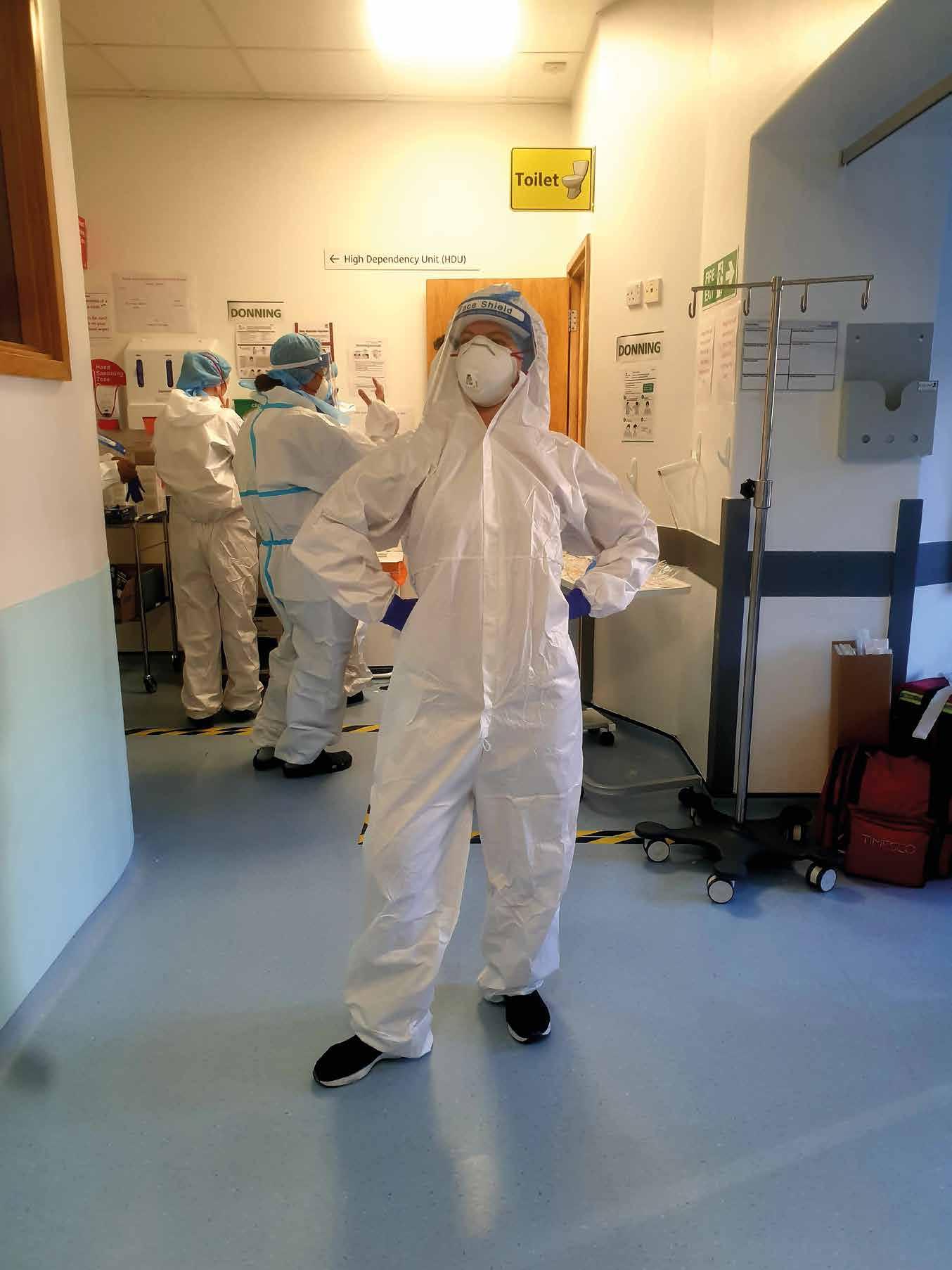
Backcare UK backs cannabis medicines


Long Covid & medical cannabis, is there a link? A story of chronic pain
Meet the nurse who wants to train the health system on cannabinoids!
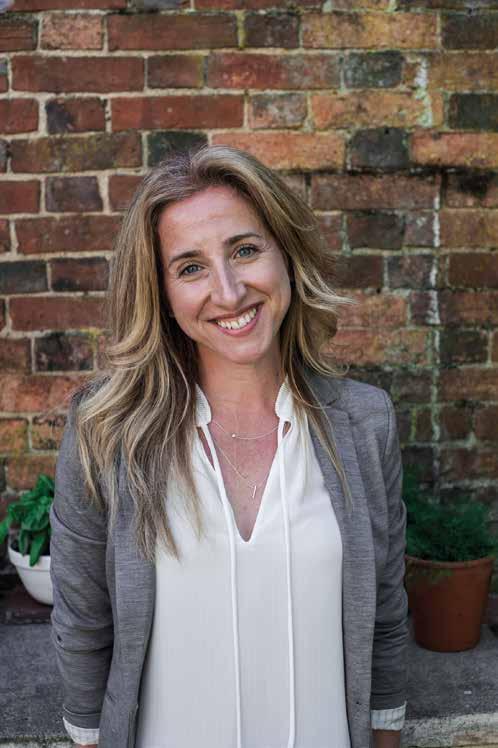
Brain support, fibromyalgia, the finance markets and more, all explored and explained by the experts.
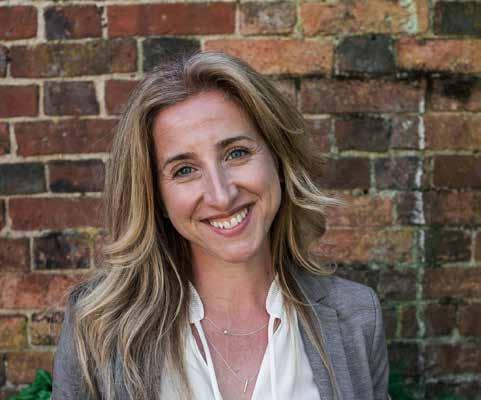
Dr Elisabeth is a clinical neuroscientist and runs a health consultancy specialising in nutritional neurology, the endocannabinoid system and phytocannabinoids, including CBD and medicinal cannabis. She has founded and runs a leading ECS clinic, as well as regularly presenting at conferences and events, providing expert opinion for the national press, specialist healthcare publications and health companies.
Founder of the highly respected Chronic Pain Clinic at London’s Royal Free Hospital, Dr Anthony Ordman is one of the UK’s most experienced specialists in the treatment of pain. For his contributions to Pain Medicine, Dr Ordman was awarded Fellowship of the Royal College of Physicians in 2005, and he is Immediate past President of the Pain Medicine Section of the Royal Society of Medicine. His expertise touches upon every area of pain; from spinal, musculoskeletal and nerve pain to post-surgical and trauma pain, and many areas of cancer-related pain. Dr Ordman is also involved in pain management for rehabilitation and functional restoration after injury or serious illness.

Katya Kowalski joined the Volteface team in October 2020 as Stakeholder Engagement Officer. Her passion for drug policy reform came from her interest in addictive behaviours. Katya holds a BSc and MSc in Psychology and also runs the European Cannabis Advocacy Network (ECAN). She is also responsible for European engagement, involved in strategic planning for thought leadership campaigns and writes the Volteface Global Cannabis Briefing.

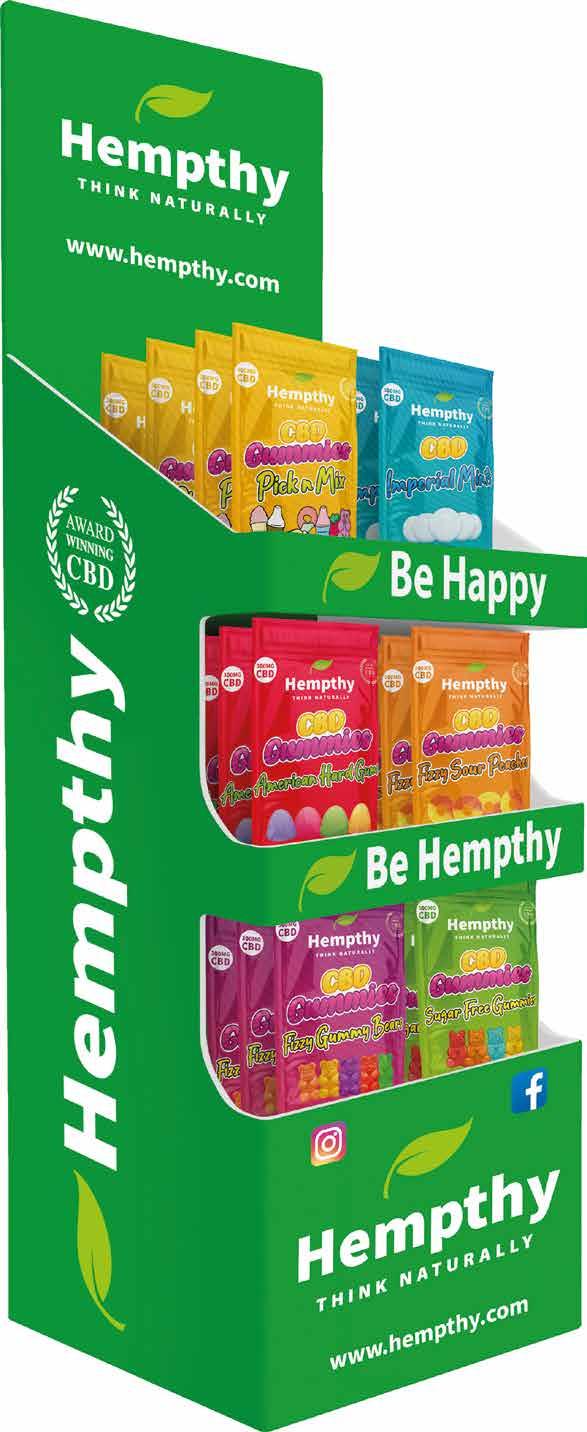
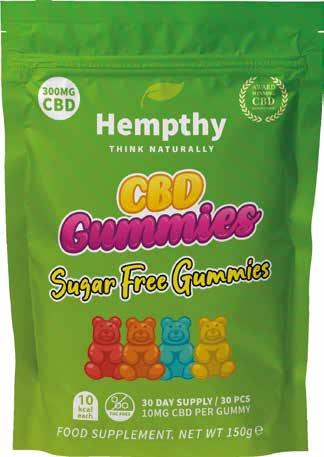
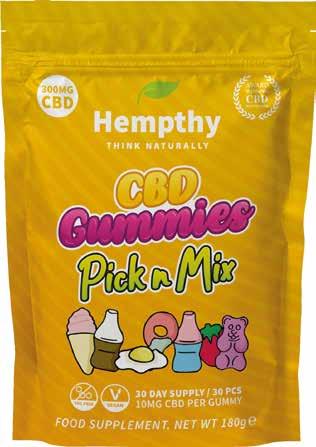

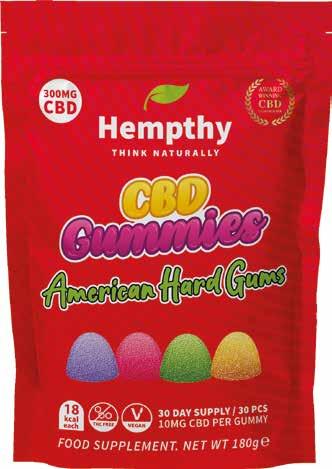
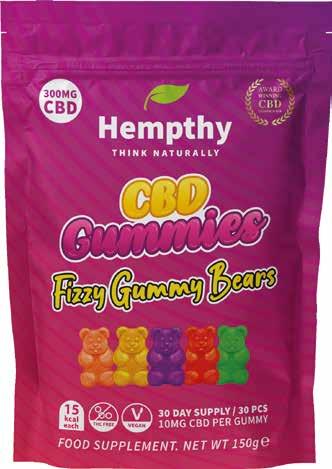
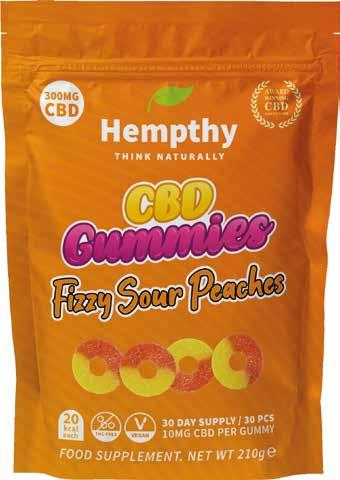


An Irish CBD brand co-founded by a Dragon’s Den contestant has received the green light from the UK’s Food Standards Agency and it’s European Union counterpart, EFSA. Pureis CBD, co-founded by Chanelle McCoy, is thought to be the first brand to have received dual validation under the novel food regulations. Pureis products are available from selected pharmacies, Boots and Holland & Barrett. The process is reported to have taken 18 months with an investment of £1.5 million and involved multiple studies carried out in the British and Irish markets.
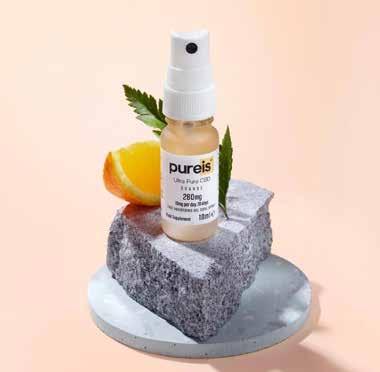
The wine capital of the world is now home to a crowdfunded cannabis-infused wine. A new red wine which contains CBD, is believed to be the first of its kind from France, retailing at €34 a bottle.

Produced using grapes from the famous vines of Bordeaux, Burdi W is available online.
Italy remains the second largest medical cannabis market in Europe, coming in behind Germany. According to new data published by Prohibition Partners, sales of medical cannabis in Italy grew by 30% in 2020, despite supply chain disruptions at the height of the pandemic. The medical cannabis patient population in Italy is thought to be 20,000, while Germany reports 120,000.
The British government’s Advisory Council on the Misuse of Drugs has opened a consultation seeking evidence about the additional cannabinoids present in some CBD formulations. Among the questions being asked, the ACMD is considering the psychoactive effects of some cannabinoids, such as CBN and THCV and whether there is evidence of any adverse effects to CBD. The consultation period is expected to end April 21 with a report to be published in due course.
In the US state of Maine you’ll find what we’re calling the world’s first cannabis ambulance service. If you happen to be in Maine while reading this, please don’t dial 911 (or 420!). An operator will not deliver cannabis by sirens to your house. The mobile unit is by appointment only in the greater Portland area and is driven by the Medical Marijuana Practitioners of Maine. According to the website, the ‘cannabis ambulance’ serves to visit dispensaries, farms and makes house calls to help educate the community on cannabis.

The state of New York has legalised cannabis after more than a year of promises to do so by the governor. According to the New York Times, the deal will allow for the delivery of cannabis and the opening of clubs or “consumption sites” and could be worth $4.2bn to the state’s purse by 2027.
The law reform under the Marijuana Regulation and Taxation Act is expected to create thousands of jobs and could see a legal cannabis supply entering the state from 2022. David Holland, Executive & Legal Director to advocacy organisation Empire State NORML said: “Under the MRTA, once persecuted and criminalised people, cultures, and communities will be prioritised through job creation and investment opportunity to rebuild that which was so tragically torn apart by the false and failed War on Drugs. Cannabis is not only a valid and viable medicine, but an industry built around it will help these people and communities heal as the State moves forward on a more equitable and enlightened path to progress.”
It’s official. There’s a CBD version of everything now. In Portsmouth, two friends have come together to open a kiosk on the pier. Rock up to the Rio Vitalise coast-side trailer on Clarence Pier and you can grab a CBDinfused ice cream, sorbet or smoothie. We hear summer calling…
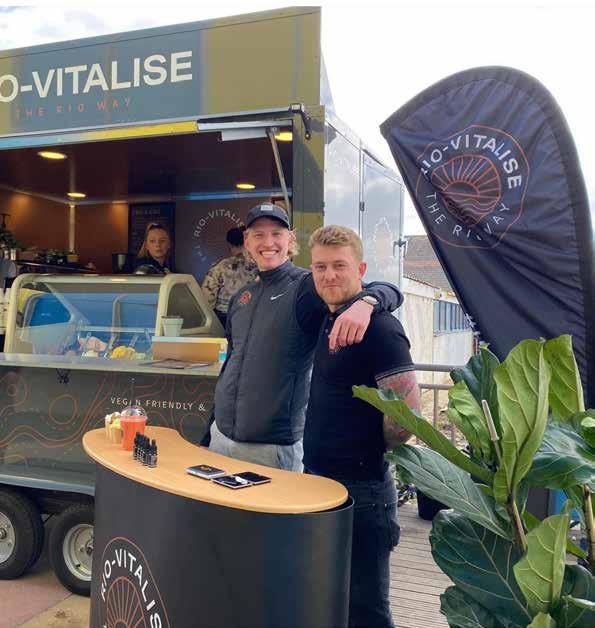
In Germany a court has acquitted sellers of hemp tea of drug trafficking charges in the region of Braunschweig following an earlier district court ruling. A court had sentenced the tea purveyors to prison time, which was later reduced to probation. That was until a federal court dismissed the narcotics charges altogether, with the judge saying there was no intent to intoxicate. The ruling has left some in the sector pondering their next move, as it remains to be seen if this decision will have any effect on removing hemp flower from the German Narcotics Act.
According to new data from Meticulous Market Research, the CBD product market is expected to reach a worth of $165.7 billion by 2027.



The world’s first potential cannabis medicine for cancer patients with anorexia is under development in the UK.
Words by Róisín DelaneyA cannabis pill made, packaged and distributed in the UK, is thought to be the first of its kind with the potential to help cancer patients at risk of anorexia to gain weight.
The drug, formerly researched by AstraZeneca, is being touted as a potential therapy for palliative care patients thought to suffer with serious weight loss issues which can affect patient outcomes.
Development of the drug is underway for clinical investigation by Artelo Biosciences. The first dose has been given to a UK-based patient as the company embarks on its Cancer Appetite Recovery Study (CAReS). It is hoped the results of the first phase involving human subjects will prove successful, with researchers estimating gains of up to 3kg possible in some patients.
The substance encapsulates synthetic, pharmaceutically made cannabinoids unlike the other cannabis-based medicines currently available in the UK, which are comprised of cannabis flower or oil. The pill is produced in the North East of England before being packaged in North Wales. It is then delivered to the clinical trial sites, the first of which is in Edinburgh.
The CAReS study will operate out of Western General Hospital in Edinburgh and The Royal Marsden NHS Foundation Trust in London. An estimated 60% of later-stage cancer patients are known to suffer from Anorexia associated with cancer. The initial phase of the trial will examine
the effects of the substance on 24 cancer patients. Data suggests some may be able to maintain or even gain weight with the use of a single pill. Male and female patients over the age of 18 with certain types of cancer who are either not on anti-cancer therapy or are on stable daily doses of certain treatments may qualify for this trial. Andy Yates, PhD, is Chief Scientific Officer for Artelo. He says the end game, pending a successful outcome of a phase three trial in the
years to come, would see this pill sit on pharmacy shelves.
“The problem with cannabis medicines today is, it's very hard to actually get them unless you're willing to get a private prescription or fight the NHS to have it approved. What we're trying to do by taking it down this pathway, doing the right clinical studies, is that we want to take all that away. “At the end of it, just like any other medicine, it will sit on the shelf, hopefully waiting for a doctor to write a prescription as though they were writing a prescription for paracetamol or an antibiotic.”
Dr Yates believes if successful, this kind of therapy could help cancer patients live a better quality of life. “Now we live in a world where we can ask, how can we help patients live better with cancer? This type of therapy is exactly what these patients and their families are looking for.”
Dr Yates named the drug ART27.13, it features his daughter’s date of birth. “We hit a very important milestone of dosing a synthetic cannabinoid, originally developed by my colleagues at AstraZeneca, into our first patient suffering from anorexia associated with cancer.
“The compound under its new name ART27.13 has begun its new life with new intellectual property filed to protect it, evaluating its new role in helping cancer patients suffering from significant weight loss and reduced quality of life."

“ “
Anorexia is defined as the lack or loss of appetite. In cancer patients, it may result from the cancer as an effect of radiation or chemotherapy treatments. Experts say it is common for patients with cancer to lose weight. Research shows that up to 39% of chemotherapy patients report appetite loss. Weight loss can affect a patient’s health, often weakening their immune system and causing discomfort and dehydration.
A weight loss of more than 5% can predict a poor outcome for cancer patients and a lower response to chemotherapy, according to Artelo Biosciences.

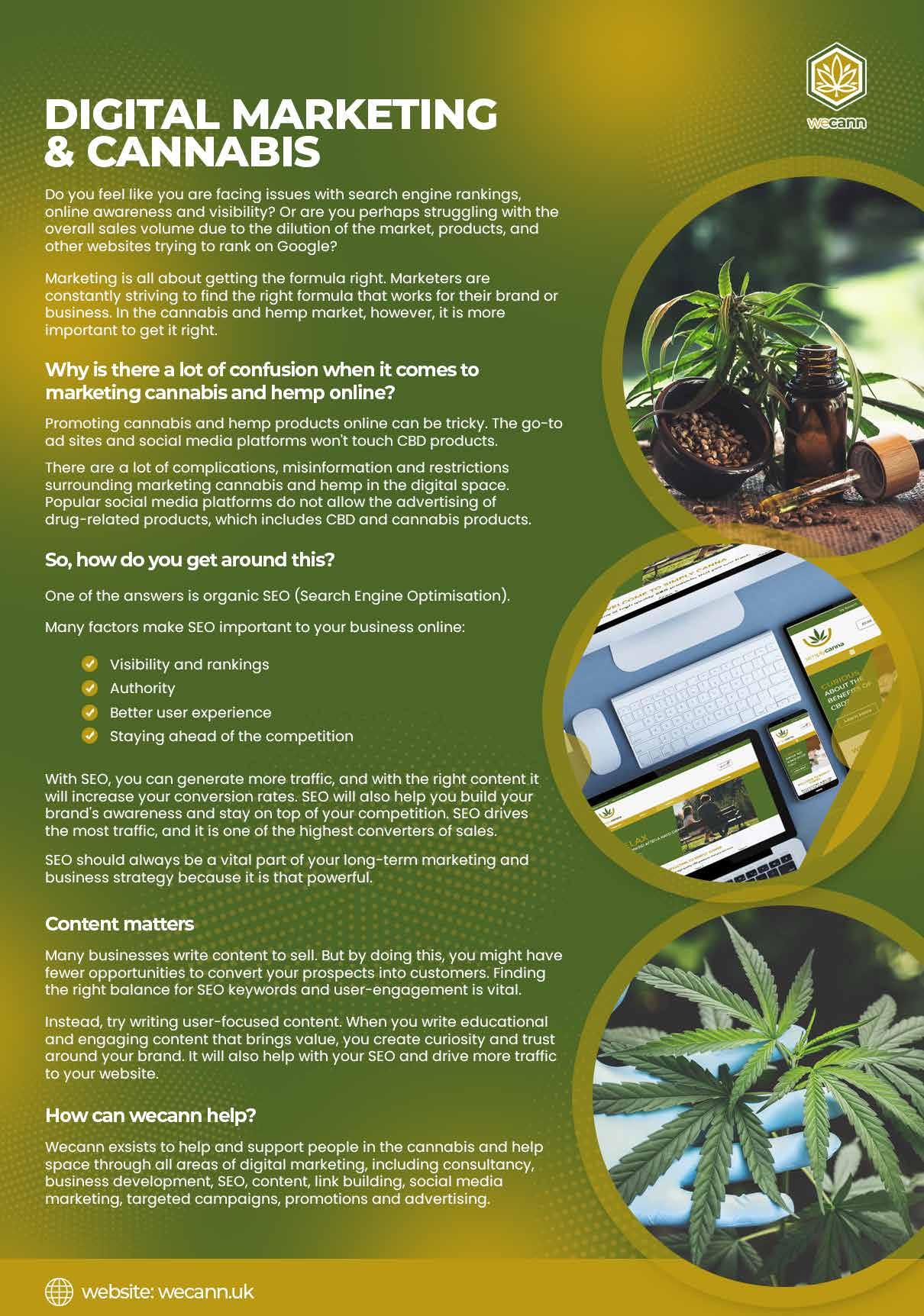

The Mayor of London and rival election candidate hint at cannabis reform in the capital, as Met police are accused of targeting black people ‘disproportionally’
Words by Gordon StriblingThe Metropolitan police may cease stop and search of people suspected of possessing cannabis in the capital amid concerns the practice does little to stem drug use and that black people are being ‘disproportionately’ targeted. The new approach is part of the current Mayor of London, Sadiq Khan’s plans to improve race relations between the public and the police in the capital. Khan, who is seeking re-election, has set up a community group to reassess the practice to ensure that police do not just stop people because they detect cannabis odour.
Meanwhile, research is underway to examine whether targeting those to have committed minor cannabis offences has any impact on reducing violent crime.

Suspicion of drug possession is the most common reason police use to justify stop and search, and black people are more than twice as likely to be targeted. However, according to research, nothing is found in four or five of these searches, and young black people feel it is a harassment tactic.
Mr Khan said: “It is clear after listening to black Londoners and community organisations that more needs to be done to address their concerns.
“The action plan sets out to respond to those concerns and a key part of that work is ensuring black Londoners and communities have a voice in scrutinising the Met's use of stop and search, taser and (other) use of force.”
Asked whether the Met approved of Mr Khan’s proposal, a spokesperson told The CANNAVIST: “We are unable to comment on claims
that are made during an election campaign.”
Almost half of all police stop and searches in England and Wales are conducted by the Met, according to a report published in February by Her Majesty’s Inspectorate of Constabulary.
The report found that drug searches on black people were often carried out without intelligence.
While cannabis possession is illegal, the inspectorate questioned why the Met was committing so many resources to a relatively minor offence compared with the supply of harder drugs.
In January, London Mayoral candidate Sian Berry (pictured left) announced her plans to end stop and search of suspected cannabis users in the capital.
The Green Party co-leader said that rethinking the enforcement of cannabis laws would ‘fix the heart of a lot of the disproportionality of policing.’
At the time, she added: “The experience of young black men on the streets of London is they are constantly suspected of drug
offences when in actual fact they’re even less likely to be taking drugs than white young men. It’s just utterly disproportionate.”
She said that that the measure would ‘move problematic drug use from a criminal issue to a public health issue in the capital.’
Other harm reduction policies have been suggested, among them is exploring safe drug consumption
rooms and working with the health sector and charities to provide heroin prescribing and free safety testing.
Luisa Porritt, Liberal Democrat candidate for Mayor of London, also chimed in on the issue, saying: “While we welcome the Mayor’s words, we’d much rather see action. He has been in office for five years and policing in the capital has got worse on his watch.

“Liberal Democrats have been campaigning for a proper end to the criminalisation of cannabis for a long time. These reports suggest that the Mayor may finally be coming around to the idea. But with a track record of all talk and no action, we doubt he can be trusted to deliver on this pre-election promise.”
A 2019 poll by the Evening Standard found that 63% of Londoners supported legalising cannabis for recreational use.
Orange County CBD is a brand you can trust.











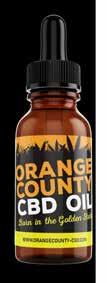




From our roots in Northern California to our customer base in the UK, we are committed to manufacturing the highest quality CBD on the market. Produced in certified state-of-the-art facilities, the results are nothing less than exceptional.

From tinctures and body care to edibles and E-liquids, we proudly offer a range of premium CBD products. It doesn’t just stop here either, as we’ve always got more innovations cooking away in Research and Development.




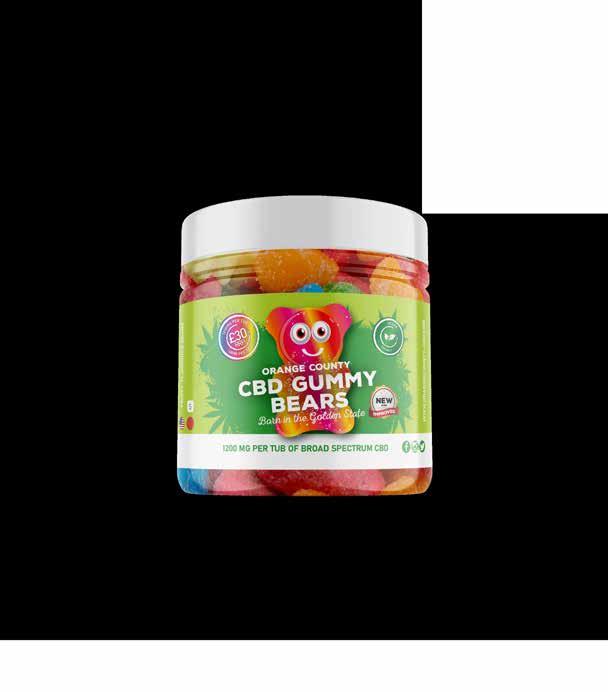


Our products are made with scientific thoroughness and homegrown pride. All of our CBD is sourced from our farms in the United States, needing to pass the most stringent tests before they make it anywhere near our multi-award winning products.


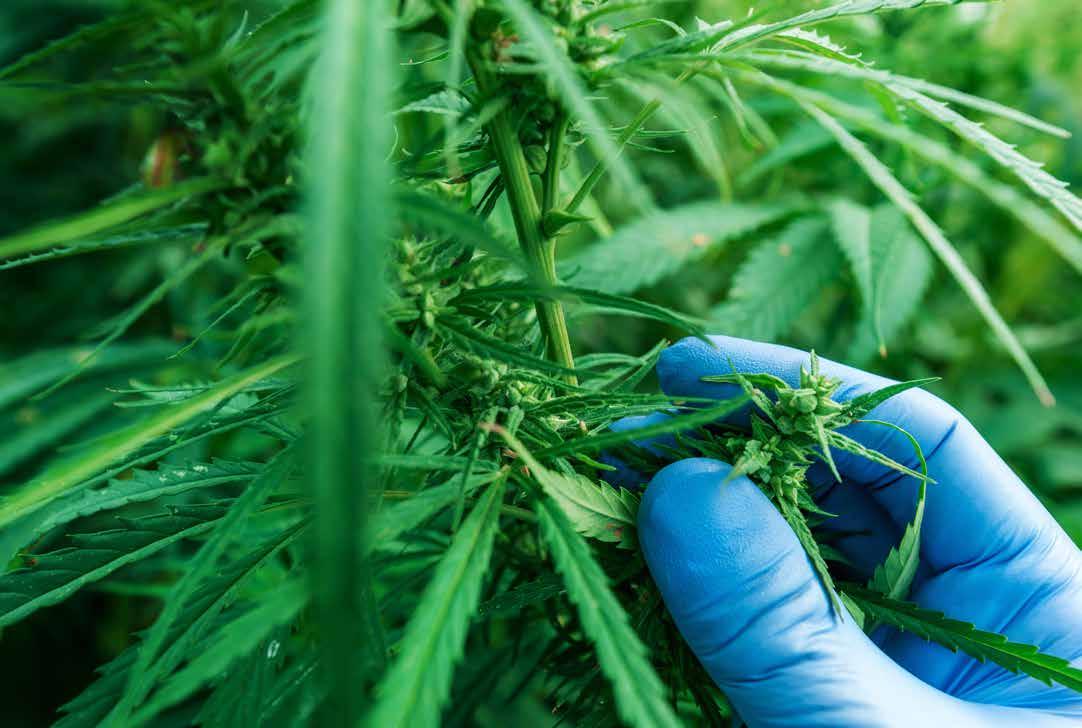










has been created through a passion of wanting to help people through the use of CBD. Built with love and care we believe that will benefit not only women but men too who are looking for balance in their lives.






mummy_gummies_canax Mummy Gummies mummy_gummies
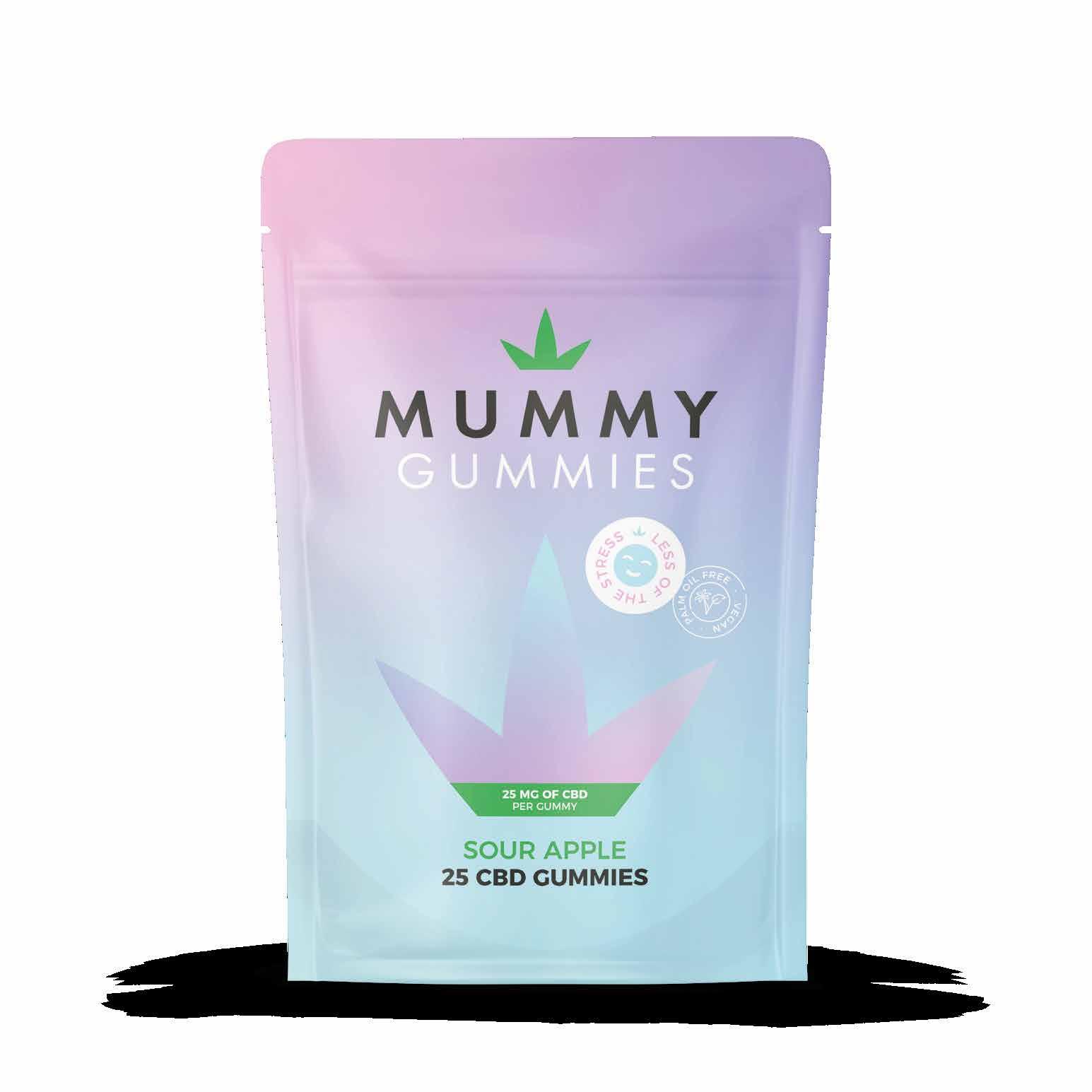

Most British adults would support cannabis being legalised in the UK, according to a new YouGov survey. The poll was commissioned after London mayor Sadiq Khan announced his plans to review decriminalisation in the capital.
 Words by Gordon Stribling
Words by Gordon Stribling
The majority of adults in the UK would support cannabis legalisation, according to a new poll from YouGov. Of the 3,300 Britons polled, 52% showed their support for cannabis law reform. The survey was published after London mayor Sadiq Khan announced his intent to launch a review into decriminalising the drug. The strongest support for the move was in Scotland, followed by London itself, while the Midlands and
Wales had the most opposition. Support for reform is highly divided according to political affiliation, with two-thirds of Labour voters for legalisation and almost half of Conservative voters against. However, Labour leader Keir Starmer said in February that he ‘never subscribed to [the] view’ that the party should pursue a liberalisation of drug laws.
The former director of public prosecutions said that he ‘prosecuted many, many cases involving drugs
and drug gangs and the criminality that sits behind, and it causes huge issues to vulnerable people across the country.’
This is a view shared by the Prime Minister, Boris Johnson. The greatest gulf in opinion from this latest poll can be seen at the two ends of the age spectrum.
A total of 66% of 18-24-year-old voters supported legalisation, compared to 40% of those aged 65 and above.
Meanwhile, 20% in the youngest age group were opposed with 44% in the oldest group also opposed.
The survey results reflect a small increase in public support for cannabis legalisation over the past two years, since the law was changed with respect to medicinal cannabis in November 2018.
In July 2019 another YouGov poll found that 48% of adults supported legalisation while 24% opposed it.
In the US, New York’s law makers have signed off on cannabis reform to create a legal adult use market.
In Europe, Luxembourg plans to become the first nation to roll out recreational cannabis.
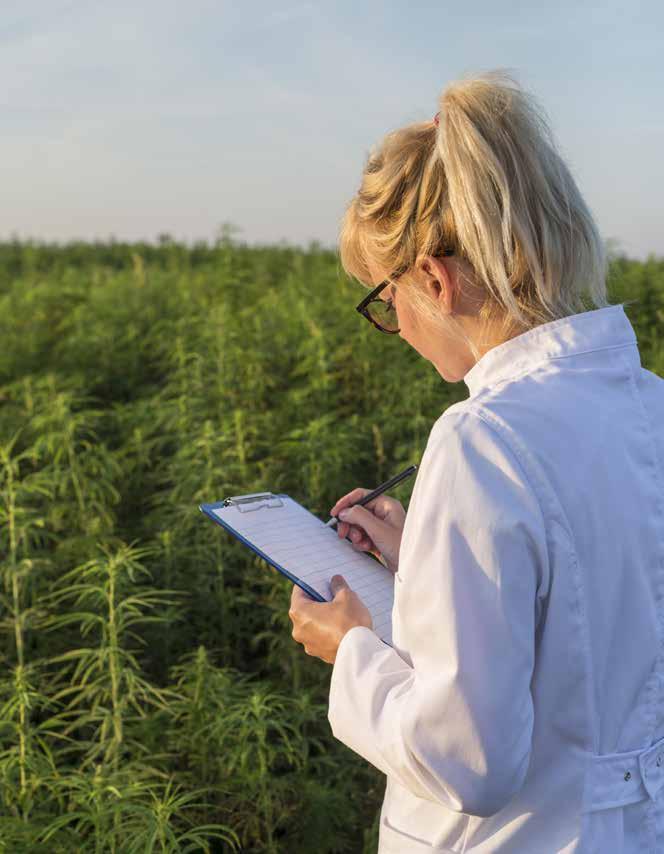

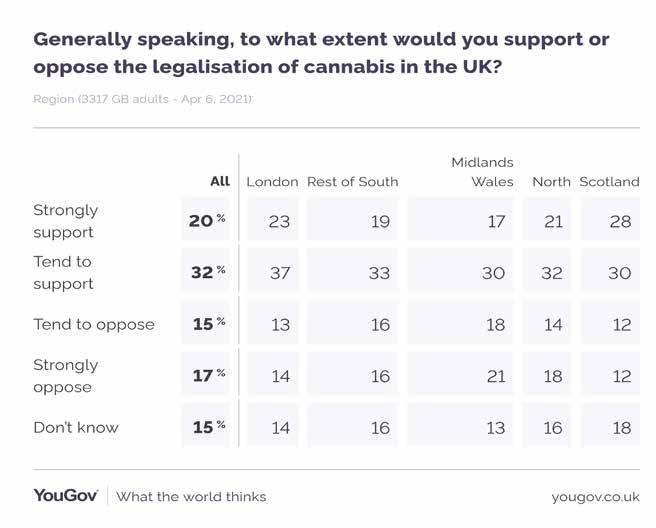
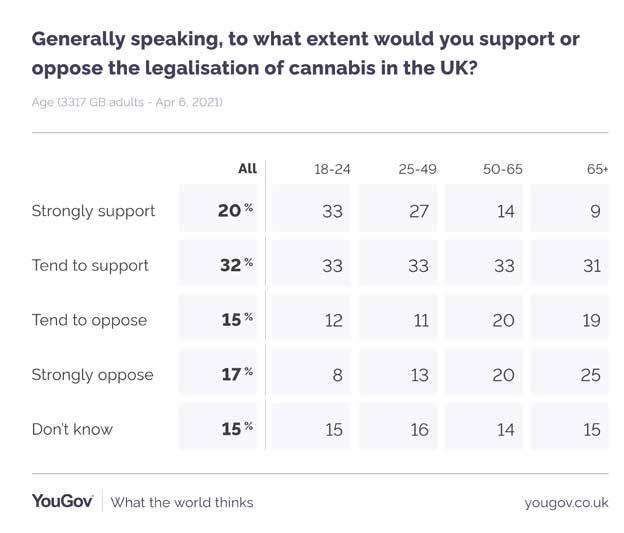
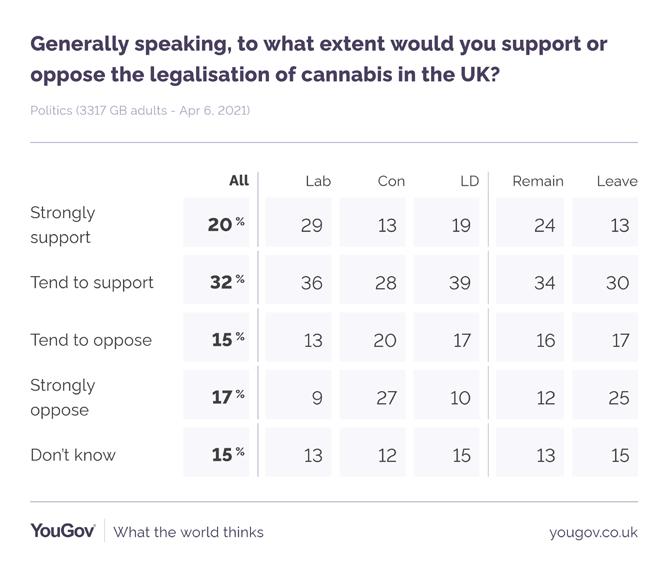

One of the main benefits consumers see in hemp and CBD is the fact that they are natural alternatives to synthesised, lab-produced anti-inflammatories and pain relievers. Cannabis has the ability to grow in most climates, whilst requiring minimal resources and replenishing the earth, maki ing it an environmental wünderkind. It is rich in not only phyto-cannabinoids but also a wide variety of monoterpenes unique to each strain, which boost the plant’s therapeutic abilities.
In my time in the cannabis industry, I have learnt that there is a strong preference for full-spectrum CBD products. The unique combinations of minor cannabinoids and terpenes display anecdotal efficacy far surpassing isolated hempderived cannabidiol or “synthetic CBD” alone. Such a shame then, that the legislators don’t seem to agree with this preference for what mother nature provides us.


Formulating for Cannafull, I am always striving to provide plant-based formulas that meet our customers’ desire for natural CBD skincare and topicals whilst putting the benefits of full-spectrum CBD on a pedestal. Finding CBD extracts that have “complete” terpene profiles can be complicated, however, the synergistic effects seen from the entourage effect are highly desirable, especially in highly-targeted topical products.
Scientific studies have shown that Linalool drastically increases the anti-spasmodic effects of CBD, and that β-caryophyllene improves CBD’s analgesic properties.
So how to supplement natural hemp extracts using natural ingredients that still meet the UK and European cosmetic regulation standards? The answer lies in traditional aromatherapy.
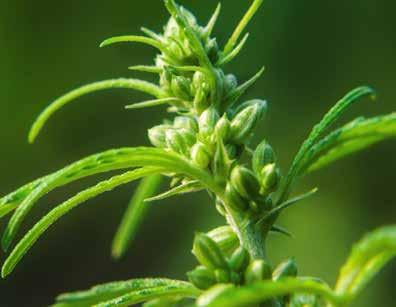
Cornerstone cannabis terpenes can be found in abundance in essential oils that have been safely used in topical application for centuries by aromatherapists. Linalool, the antispasmodic terpene, constitutes up to 98% of lavender essential oil. Myrcene, another pain-relieving terpene is present in bay leaf extracts and black pepper oil. Geraniol which boosts CBD’s sebum-regulating properties is present in a variety of flower essential oils such as rose, ylang-ylang and, of course, geranium.
New regulations around full-spectrum CBD have been a disappointment for many, but I’ve chosen to see it as an opportunity for cannabis enthusiasts to rediscover the abundance of therapeutic terpenes that nature has to offer us. If you’re interested in learning more about bridging the full-spectrum gap, I invite you to read my blog on the subject available online at www.cannafull.co.uk
" The therapeutic benefits of plant-derived terpenes are no mystery to professional aromatherapists "






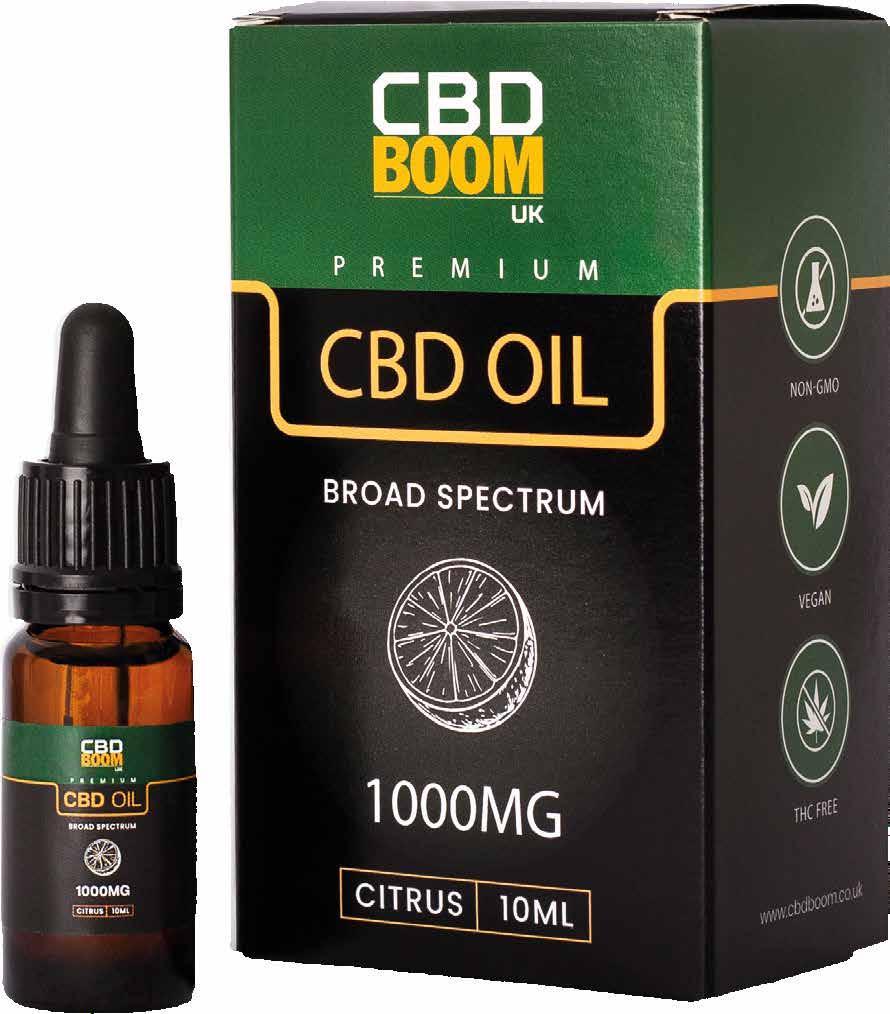
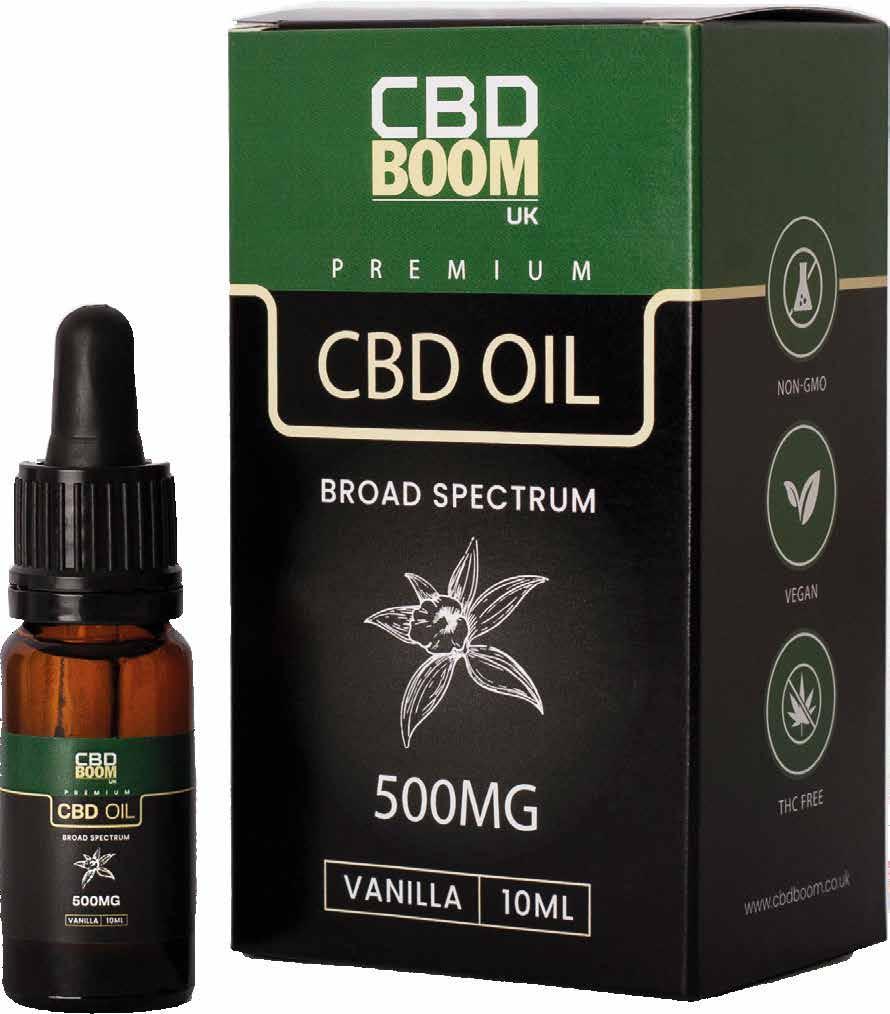



The Home Office has said it plans to ‘strengthen and clarify’ the law on consumer CBD products. A spokesperson for the government arm responsible for policy on controlled substances said it has asked an independent panel to advise on the position of CBD in the UK, two years after the first CBD product landed on the shelves of popular high street retailers. During this consultation period, the Home Office has received recommendations from key industry stakeholders.

A joint report from the Centre for Medicinal Cannabis (CMC), Association for the Cannabinoid Industry (ACI) and The Conservative Drug Policy Reform Group recommends introducing a THC cap of 0.03% to clear up market confusion and make CBD regulations easier to enforce.
There is a common misconception that CBD products can contain up to 0.2% THC.However, this figure applies to industrial hemp from which CBD is extracted and not the finished product. The report has been sent to the Home Office and Food Standards Agency (FSA).
As it stands, the Home Office considers all CBD products to be
controlled, regardless of their THC content.
The CMC and ACI believe that this ‘presumption is incompatible with scientific convention and is likely to be incompatible with case law.’ Regulatory and Compliance Associate, Dr Parveen Bhatarah, said:

“We fully understand that tackling drug misuse, and the harm it causes, is a top priority for the UK Government.
“CBD is not a controlled drug, but any plant-derived CBD has potential to contain controlled cannabinoids. However, the Misuse of Drugs Regulations 2001 for CBD products demands that it contains no more than a defined trace percentage of controlled cannabinoids as an impurity.”
“This paper has taken into account the analytical challenges, testing methodology challenges and existing scientific evidence base data to propose the safe limit for controlled cannabinoids.”
The paper also makes six proposals for further research, including: further animal toxicology studies on the effects of purified CBD, THC and other cannabinoids and randomised, placebo-controlled trials in humans.
ACI toxicology associate, Dr Paul Duffy, said:
“In modern society, evidence-based decisions, underpinned by sound robust scientific data should be at the heart of safety for the consumer and we consider that the report adheres to that.
“In my opinion, the proposed levels of THC are reasonable and manageable from a safety and legal perspective.”

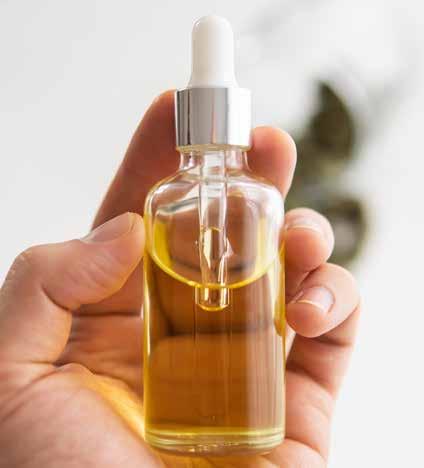 Words by Caroline Barry
Words by Caroline Barry
New research has revealed that CBD might have an effect on the development of Alzheimer’s Disease. The preliminary animal study was conducted over a period of two weeks and involved regular doses of 10mg of CBD. The investigation was a collaboration between the Dental College of Georgia and Medical College of Georgia in the US, but the findings have created excitement as far away as the UK.
The pre-clinical results show CBD could hold the potential to stop the triggers for the disease.
In Alzheimer’s Disease, the brain cells that process, store and retrieve information start to degenerate and die. Although scientists do not know why this happens, they suspect that plaque is a reason. It is believed that the sticky compound accumulates in the brain affecting communication from cells before killing them. Certain protein levels in the brain
are lower in Alzheimer’s patients, according to experts. This research reports that CBD could help to normalise the levels and function of these proteins and improve cognition. It has also been suggested that CBD may lower the levels of one particular protein which is associated with inflammation of the brain. Professor at the Dental College of Georgia and author of the study, Dr Babak Baban, PhD, MPH, MBA, and FAHA explained that CBD could be a potential treatment option for the future. “Numerous studies and scientific data have provided clear evidence for an activation and involvement of inflammatory pathways in Alzheimer’s disease.
“Our previous studies, as well as others, have suggested that Cannabidiol is a capable and potent regulator of excessive inflammation. Therefore, it is very plausible to use CBD in the treatment of Alzheimer’s Disease, considering the lack of a definite treatment and a limited effectiveness of current therapies.”
Dr Baban explains the results further: “CBD was able to ameliorate the adverse effects of Alzheimer’s Disease evidenced by improved cognitive function and lower inflammatory indices in a mouse model. In addition, our findings showed that CBD was able to increase two specific proteins including Interleukin 33 (IL-33) as well as TREM2. These two proteins have been shown to have beneficial effects in Alzheimer’s.”
New research has revealed that CBD may be helpful in stopping the development of Alzheimer’s Disease.
Due to the success of the trial, the next stage could be human studies. “We are applying for Institutional Review Board approval for a small human trial under the supervision of neurologist, Dr John Morgan. The study is currently using inhalers as a delivery method - instead of injections - for CBD in Alzheimer’s studies in mice. The inhaler is called ApelinDxtm, designed and produced by TM Global Bioscience, USA. “We are planning to use the same inhaler in a human trial when it starts. We also have nasal spray designed and produced, to be used in both animal models and human subjects.”
This study focuses on CBD and not THC. The research team have no plans to test medical cannabis for Alzheimer’s due to complexities that come from the psychoactive component.
Dr Baban explains: “Using THC in any therapeutic regiment is super complex. The main reason is the fact that THC is a psychotropic compound affecting mind, emotions, and behaviour in a profound way, with potential unpredictable outcomes variable from an individual to individual. Although the entourage effect of all cannabinoids together have shown a level of encouragement, however, there is still a huge knowledge gap to be filled before including THC in a wide use for the treatment of Alzheimer’s Disease.
“In addition to the requirement for further scientific evidence regarding use of THC, the legal and social issues add to the complexity of THC usage.”
Like in the US, Alzheimer’s has long been a growing health concern in the UK. Research from the Alzheimer’s Society shows that there were over
- Dr Babak Baban, PhD, MPH,
850,000 people with dementia in 2019. This equates to 1 in every 14 people over the age of 65 suffering with the disease. It is also estimated that if this rate keeps increasing there will be over 1.5 million people with dementia in the UK by 2040.

The Alzheimer’s Society points out on its website that it may be open to research applications.
“We have not received any highquality applications from researchers intending to investigate these issues. If we received a high-quality application into cannabis and dementia from a researcher based at a UK university, research institute or NHS trust, then we would certainly consider this for funding.”
“It is very plausible to use CBD in the treatment of Alzheimer’s Disease, considering the lack of a definite treatment and a limited effectiveness of current therapies.”
MBA, and FAHA

Mile High Labs has expanded operations to offer third-party logistics to clients in the UK, US and Europe. Now a one-stop shop, the company is helping CBD brands grow in an increasingly regulated marketplace.
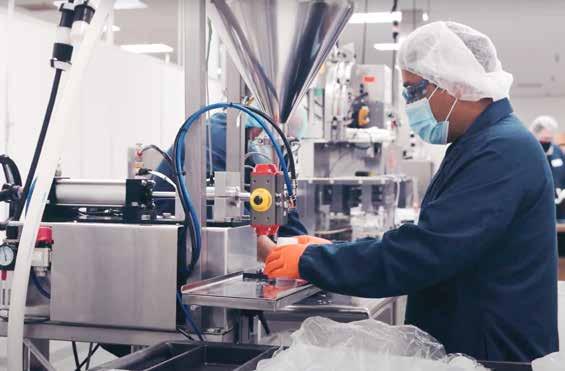
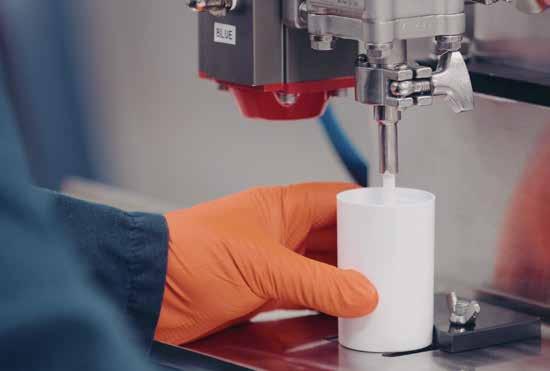
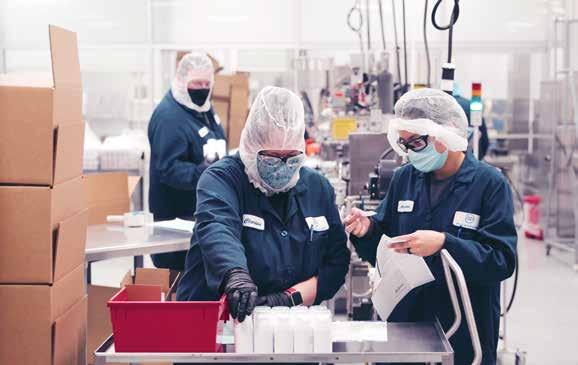
 Words by Gordon Stribling
Words by Gordon Stribling
There is little doubt that CBD is a now a huge global enterprise. Its market size is expected to grow by $10 billion over the next decade as cannabidiol becomes a staple of food, health and beauty and shakes off the ‘fad’ label for good. Mile High Labs is headquartered at the global CBD epicenter of Colorado. The company, which provides raw ingredients, finished products and white labelling services to clients around the globe, has now stepped up to provide third party logistics (3PL).
John Wallace is UK and EU managing director, based at the Belfast site. He’s been overseeing the 3PL rollout which launched in January.
“We knew that the industry was changing. Novel foods was coming and Brexit was a factor in how the industry would evolve, specifically with the Rule of Origin whereby products manufactured outside of the EU or the UK would involve extra shipping costs and VAT,” John explains.
“We’re exploring the opportunities of 3PL with our European customers to ship product into the UK and vice versa, given the unique position we are in with the Northern Ireland protocol and being able to set with one foot on either side of the economic borders.
“We can offer the same for some of the larger UK and European brands that want to go to the States.”
It’s about a year since we last spoke with Mile High Labs. At the end of April 2020, the Prime Minister had declared that the country was ‘past the peak of the disease’ and we started to ready ourselves for the
return of the old normal.
Obviously, things didn’t quite work out as the PM had anticipated. But the CBD industry has shown remarkable resilience during lockdown times, with customers reaching for CBD more than ever before. But product development has taken a back seat for some.

Frederik Hendriksen, VP of international sales and business development, explains:
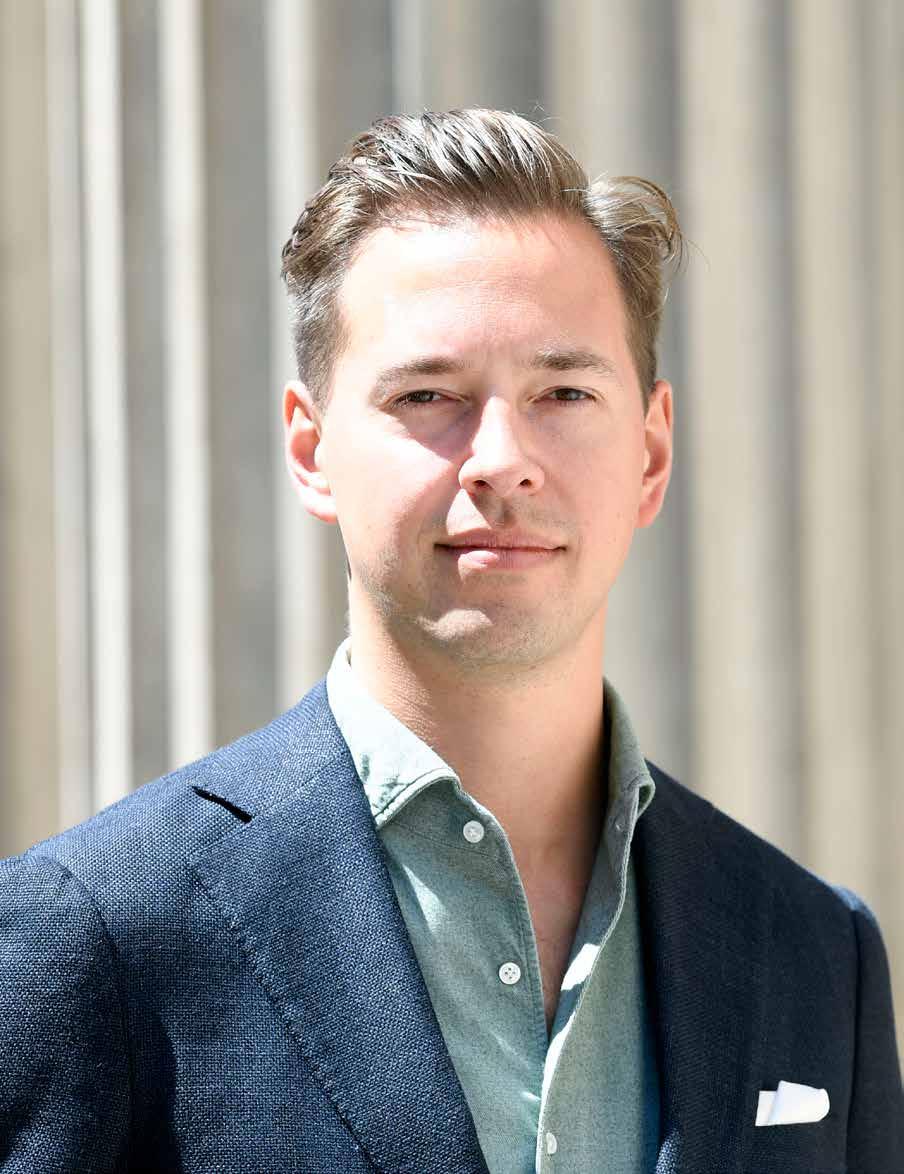
“I think a lot of brands have wanted to launch new things, but it hasn’t been the ideal time to do so. So, we’ve
seen a little bit of a standstill in terms of product innovation and bringing new products to market. It’s forced CBD brands to focus on their core offering.” The humble gummy sweet is a staple of any CBD brand’s product line up and you might be forgiven for thinking that there’s not much room for innovation there. But Frederik considers the category to be among the most interesting right now.
Mile High Labs has acquired a gummy manufacturer and brought all that capability in house. At the core of this is testing, which has
“We can be your compliant supply partner and we can really handle the full operational chain”
enabled the team to ensure a consistent dose throughout each gummy. They also have experience of working with secondary ingredients, which is one are they intend to explore in the near future.
“We’re looking at ingredients that people might take as a multivitamin, for example. We can deliver that,” Frederik says. “We’ve also had a couple of enquiries for gummies without CBD from outside of this space, just because everyone’s looking for a quality gummy manufacturer.”
The UK’s novel foods submission deadline is barely a week away at the time of our interview. Mile High Labs submitted its application to the FSA in April last year. Exactly what will happen in the months ahead remains to be seen, but Europe is an even greater unknown, albeit now with the legal assurance that CBD is not a narcotic.
The novel foods regulation looks set to reshape the CBD industry in the UK and EU and have a significant impact further down the supply chain. The end result, Frederik hopes, is a more credible marketplace, a path which Mile High Labs is well-placed to help its global partners navigate.
“We can be your compliant supply partner, whether you want to buy ingredients, finished goods or label the product, and we can really handle the full operational chain,” Frederik adds.
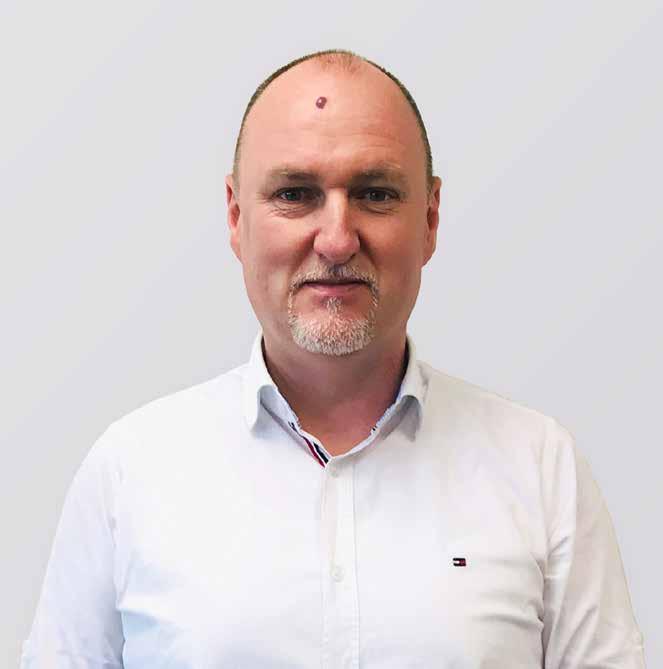
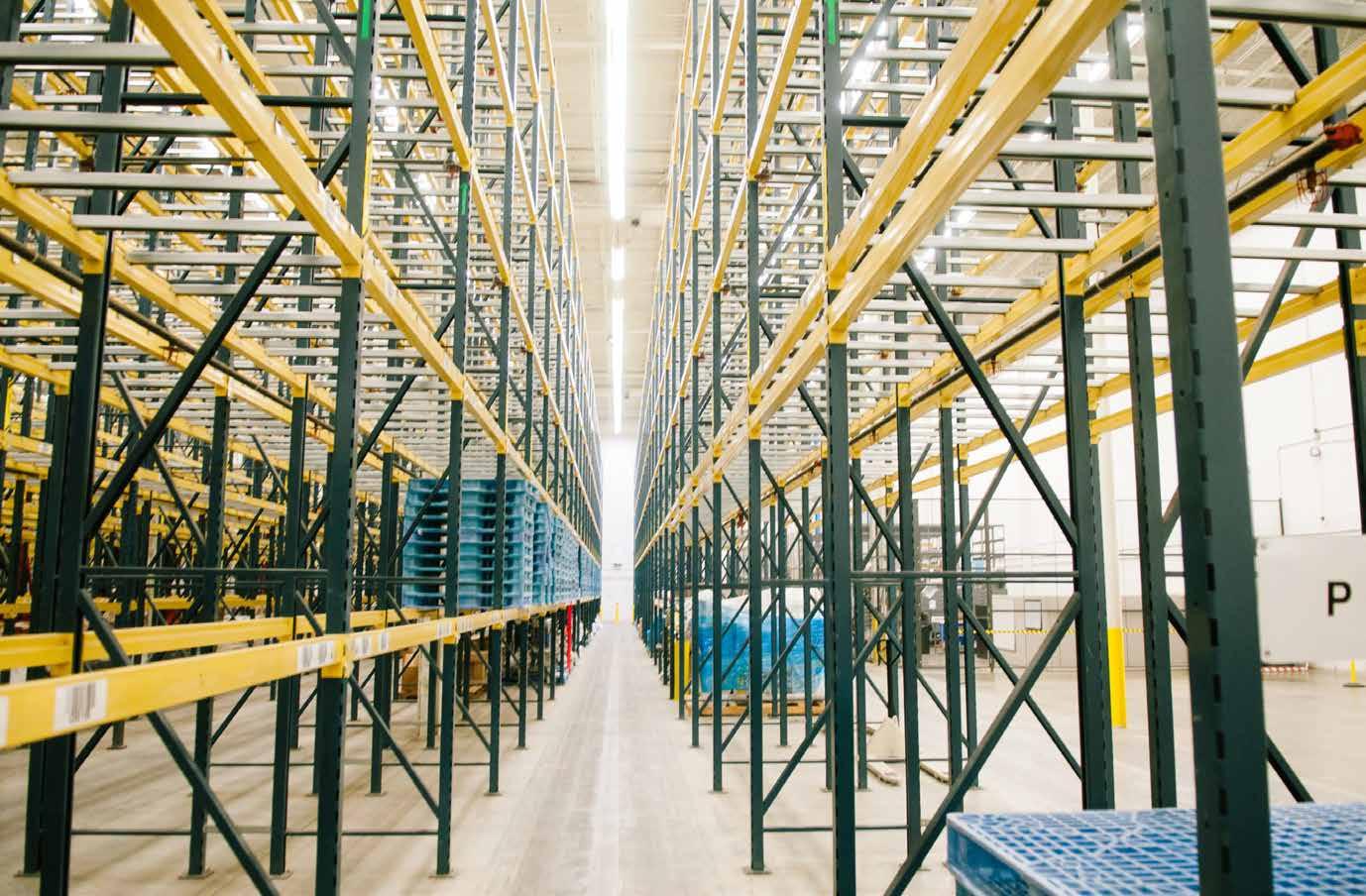
“Whatever we’re going to learn from the FSA over the next months is very much going to drive how we continue to expand as well. But from what we are seeing, we are feeling optimistic.
“With the UK reopening and hopefully some regulatory clarity, this could really be the kick-starter for CBD going mainstream in the UK on a large scale.”
Web: milehighlabs.com
Email: saleseu@milehighlabs.com
Phone : +44 (0) 28 9099 5253
“The Mile High Labs team welcomes any interested business who wish to enter or expand their offerings in the CBD market to contact us directly”.

Each issue, we ask an expert in the medical or science field, with a special interest in cannabis, to break down its evidence-based potential. Here, Dr Anthony Ordman, Senior Clinical Adviser to Integro Medical Clinics, looks at fibromyalgia and explains why medical cannabis may be an option worth considering.
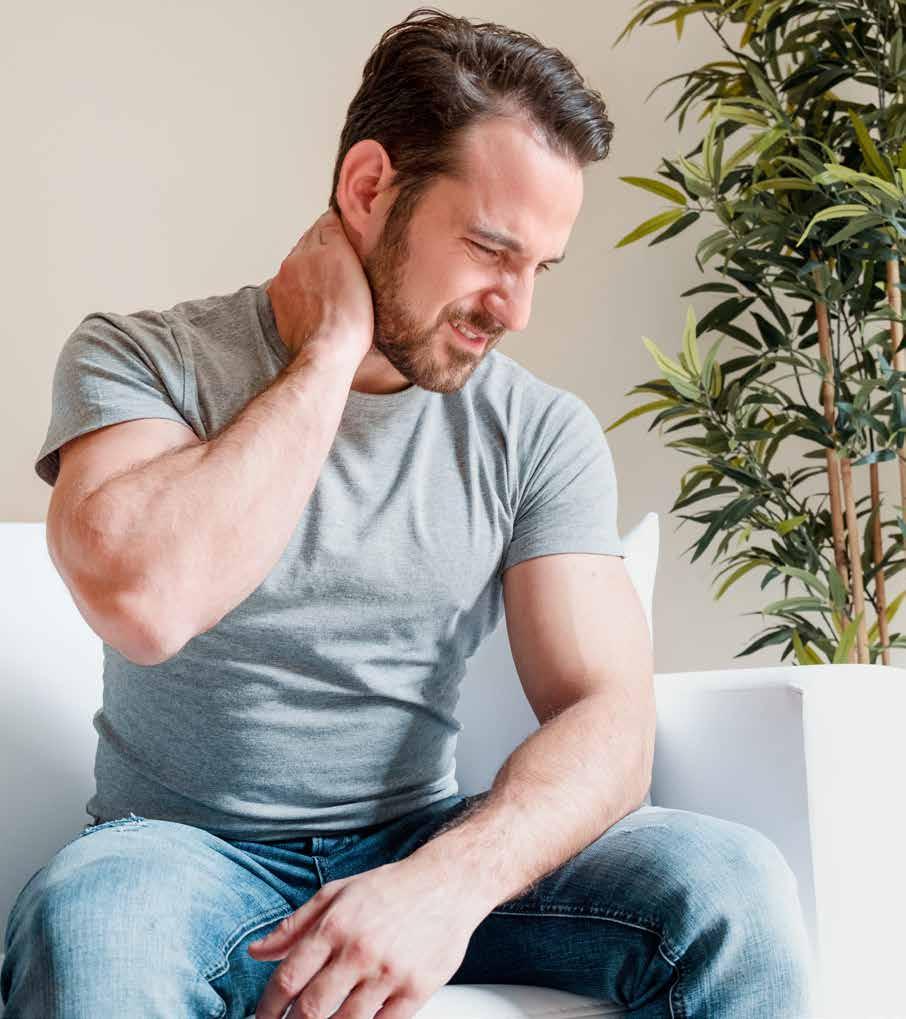
On November 1, 2018, medical cannabis was the subject of a landmark moment in law reform in this country, when a campaign led by advocates, patients and their families saw cannabis on prescription emerge as a prospect. Medical cannabis became legal, but as an unlicensed medicine, it was, for the most part, impossible to obtain.
Over two years later, medical cannabis has been approved for prescription for limited conditions on the NHS. As a result, a network of private medical cannabis clinics have opened their doors to patients who have exhausted conventional routes. Pain management specialist Dr Anthony Ordman is excited to see the impact of medical cannabis on his patients’ lives.
Hopes that cannabis-based medicinal products (CBMPs) would become easily accessible for those suffering from a myriad of conditions, ranging from the chronic pain of fibromyalgia to Crohn’s disease, Parkinson’s, ADHD and depression and anxiety, have yet not been widely realised, and certainly not in the NHS. Most medics still feel they just don’t know enough about cannabis medicines to advise patients, leaving only a small percentage of sufferers able to access them, mostly through the private sector.
The Department of Health and Social Care says more research is needed before CBMPs can be routinely be prescribed which, not surprisingly, makes it virtually unobtainable in the NHS. This is unfortunate, because there are many reports in the medical literature of significant improvements in pain with CBMPs, and this is particularly so for fibromyalgia.
Thinking of my 20 years working in an NHS pain clinic, we did manage to help many of our patients with the various conventional resources at our disposal. But I also came to realise that for many other patients with long-term conditions, our conventional medicines, physio and CBT had little to offer. Standard pain medicines didn’t generally work for long-term pain, and they all tended to have side effects which would make people’s lives worse, not better. This was especially true for fibromyalgia, where no drugs are available specifically to treat this condition.
Fibro, or FM, is a common, chronic widespread pain disorder. It is an extremely troublesome and debilitating condition that can cause severe chronic pain all over their body. People often feel as if the pain is coming deep from within their bones and joints, and they can experience tactile allodynia, where innocuous light touches on the skin can feel like an unpleasant raw or burning sensation.
Those who live with fibromyalgia also commonly experience extreme fatigue, and ‘brain-fog’ or ‘fibrofog’, where clear thought and memory become difficult. Irritable Bowel Syndrome (IBS) is also a frequent symptom associated with fibromyalgia.
Fibromyalgia can be difficult to pinpoint and diagnose, and up to 75% of sufferers may go undiagnosed. Many patients are seen initially in rheumatology clinics, because fibromyalgia produces disabling tight muscle spasms, which patients often feel must be coming from their joints or bones.
Our understanding of FM has increased substantially in recent years, with research showing a cause from within the body’s central nervous system; that is the brain and the spinal cord.
tried. These sometimes do help, but more often add their own side effects to the patient’s difficulties. Most conventional pain medicines such as morphine, amitriptyline and gabapentin/pregabalin, which are available for long-term pain, do not really work effectively for pain in the body’s spinal cord and central nervous system. By contrast, cannabis medicines have their main effect there. And, as I am now seeing, cannabis medicines can offer effective treatment for fibromyalgia, as they seem to rebalance and regulate the human body’s endocannabinoid system, to reduce pain and spasm, and restore more normal sleep patterns.
If you are really struggling with you Fibromyalgia symptoms at the moment and feel that none of the conventional medicines your doctor has given you are any longer bringing any relief, I would suggest you consider trying medical cannabis. I am increasingly of the view that we are just at the beginning of understanding the potential of what the cannabis plant can offer in terms of pain relief and new medicines - all without those horrible side-effects.
There is no one conventional medicine to treat fibromyalgia. Nerve pain medicines and anti depressant medicines are often
Cannabis was used for medicinal purposes throughout history but was made to be regarded as ‘undesirable’ in the mid 1900s, and then outlawed in America, the UK and many other countries. However, in the 1990s, medical research began to show that the body has a complex cell-signalling system of cannabinoid molecules and receptor molecules named
‘the endocannabinoid system’. This system not only regulates pain but normalises other bodily functions including mood, sleep, appetite, metabolism, memory and inflammation. Cannabis medicines, derived from the cannabis plant, were shown to influence the endocannabinoid system’s functions by binding to the natural endocannabinoid receptors in the body and the brain, and rebalance the system.
We can use the plant cannabis molecules to rebalance the nervous system to reduce the unhelpful amplification of pain signals in long-term pains.
Through modulating the system and rebalancing its activity with cannabis-based medicines.
in 2005, and he is Immediate Past President of the Pain Medicine

upon every area of pain; from spinal, musculoskeletal and nerve pain to post-surgical
trauma
areas of cancer related pain. Dr Ordman is also involved in pain management for rehabilitation and functional
or serious illness. His belief in a patientcentred approach, sensitive to the individual needs of each person has had a strong influence on the Integro patient experience.
Can medical cannabis help?
Why is cannabis only being used as a medicine now?Dr Anthony Ordman | Senior Clinical Adviser and Hon. Medical Director Founder of the highly respected Chronic Pain Clinic at London’s Royal Free Hospital, Dr Anthony Ordman is one of the UK’s most experienced specialists in the treatment of pain. For his contributions to Pain Medicine Dr Ordman was awarded Fellowship of the Royal College of Physicians Section of the Royal Society of Medicine. His expertise touches and pain, and many restoration after injury





We asked clinical neuroscientist Dr Elisabeth Philipps to break down the science on the relationship between the brain and the endocannabinoid system
Being healthy doesn’t just mean being physically fit.
A good measure of our biological age is how well each of the organs in the body function; and having a good memory, the ability to focus and concentrate and maintain a clear mind is a great sign that our brains are healthy.
Lifestyle plays a significant role in influencing how quickly the brain ages, regardless of the adult calendar years we celebrate. This means how well you sleep, what you eat and how you handle stress is all very important.
There’s no doubt it’s tough times right now for both our physical and mental health and whilst there’s no single “miracle cure” there are some things we can actively do to support brain health.
The brain’s immune system is key in keeping our brain fit. In a healthy brain, certain immune cells (microglia) keep up a patrol to seek out and remove any toxins or
mediators that may damage brain cells.
However, in conditions like dementias, anxiety and depression, the brain’s immune system becomes overactive, and a chain reaction of inflammation is set in
progress. This process of chronic neuroinflammation underpins a whole host of diseases including Alzheimer’s and Parkinson’s disease. But even before these illnesses are diagnosed, neuroinflammation is creating havoc for brain function.
Anti-inflammatory diets, rich in vegetables and avoiding high sugar and processed foods, play an important role in reducing inflammation throughout the body.
We should also look at exposure to environmental toxins, as well as how we manage stress.
But one of the most exciting areas of research currently investigating how to reduce neuroinflammation involves phytocannabinoids, including CBD.
Research in animal models and humans has shown numerous therapeutic applications of CBD for brain function and protection, both by its direct effects on the endocannabinoid system and by influencing endogenous cannabinoids.
Specifically, CBD reduces neuroinflammation, but also concurrently strengthens the brain’s immune system response, improves brain cell growth (neuroplasticity) and increases blood flow.
This has been shown in studies that mimic the loss of oxygen and blood supply in stroke, (ischemia), as well as in neurodegeneration studies like Alzheimer’s disease.
CBD has also been shown to reduce anxiety, improve depressive states and improve sleep – all crucial factors for preserving brain health.
So, whilst there’s no single “miracle cure” for keeping our brains healthy we can practice a combination of stress management, healthy habits and plant medicine like CBD that – taken together – can help us preserve and protect our brain’s function.

What can we do about neuroinflammation?
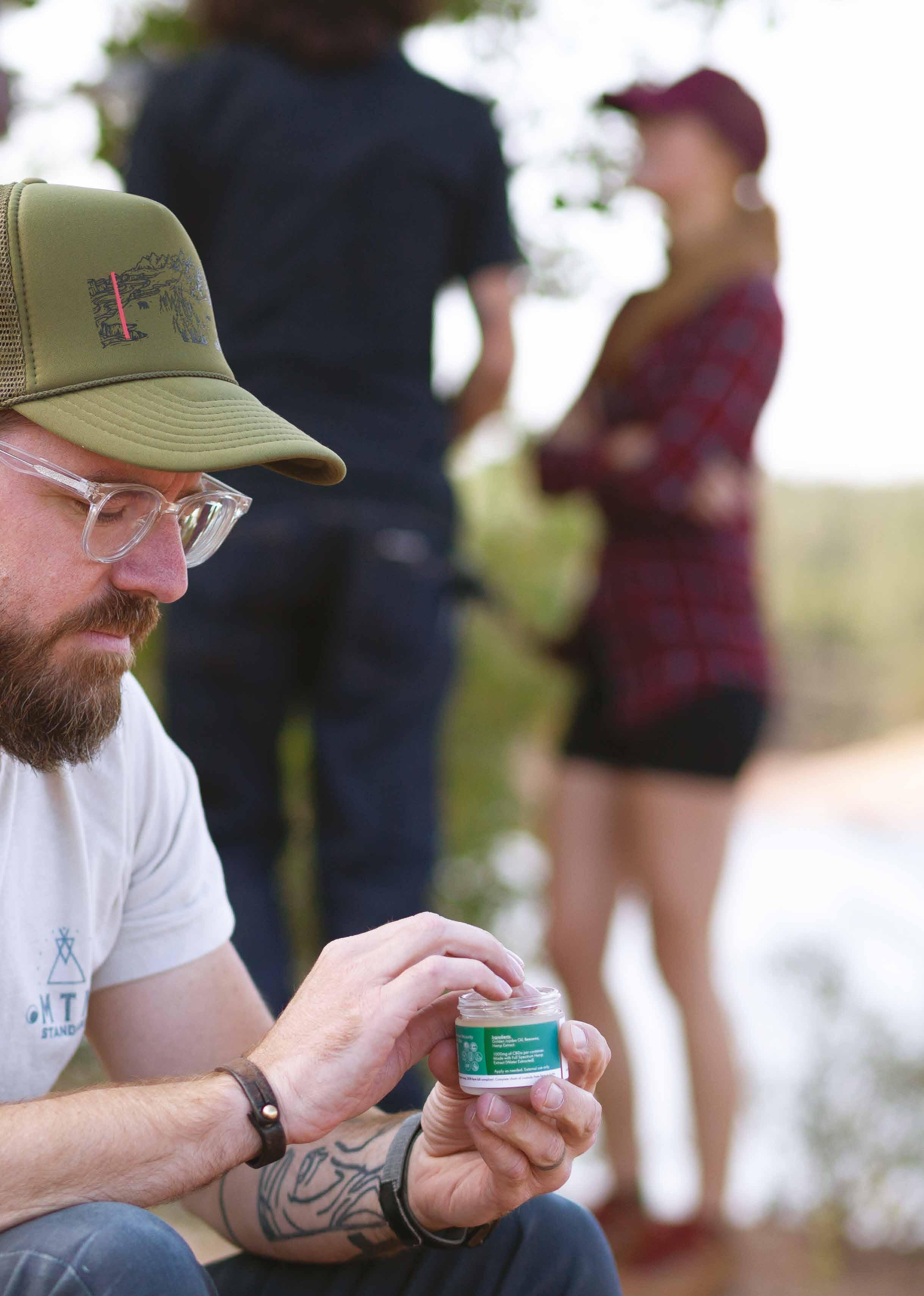









As lockdown restrictions lift in time for summer, there is no time like the present to start getting your skin ready for the return to society. We asked these CBD skincare experts for advice on getting our glow on before we emerge from the lockdown and a long winter season.
Words by Caroline BarryLockdown 3.0 has been a tough one, not just on our mental health, but our physical health too. One area where you can start to see the effects of the ‘new normal’ is in our skin. Dark circles, a tired looking complexion and mask-acne are just some of the problems we’ve faced this year.
For this issue, we asked Grassroots Skincare co-founders, Jo Minchin and Lindsey Price how CBD could help us all to glow up! as we get back out there this summer.

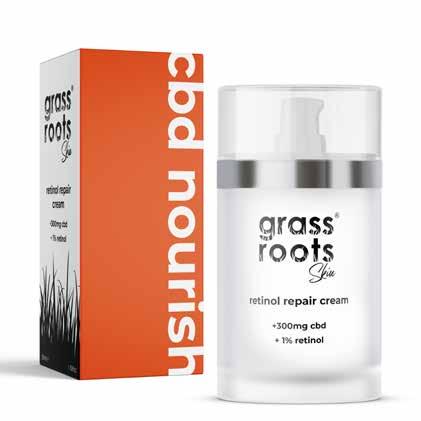
What are the benefits of adding CBD to your skincare routine?
Lindsey: “We know that we have cannabinoid receptors in our skin that respond to CBD and the main benefits are that it is antiinflammatory, anti-bacterial and anti-ageing. CBD is really calming for the skin. It’s really great for
conditions such as acne or anything that is caused by inflammation. It can help the skin in many ways.”
What’s the best way to start incorporating CBD into your skincare routine?
Lindsey: “Just use your products that you would normally use, then you can easily add one product into your skincare routine, be it a cleansing wash or an oil. Your skin doesn’t need to adjust like it would with a retinol and it doesn’t cause reactions the same way other cosmeceutical products might.”
Jo: “It’s not like if you were to buy retinol where you need to start cautiously. If you were starting on retinol then you would maybe start with a low percentage, use it just two or three times a week or add something with it. CBD isn’t like that and there are no restrictions
on it. CBD is secondary, so if you were going to look at a CBD skincare range then you would look at what the product is for. If it’s a retinol then look at that before the CBD.”
Lindsey: “If you are into using retinol then CBD could really help with that as it could help to calm the skin afterwards.”
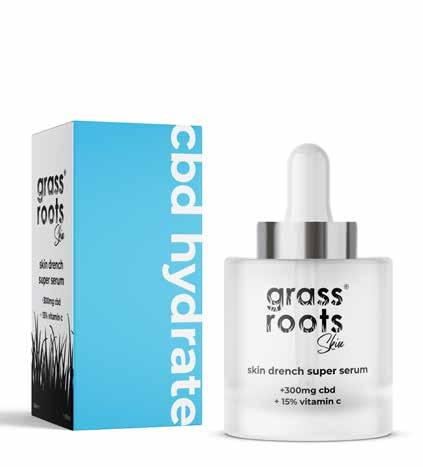
Coming out of lockdown life, how could CBD skincare help boost our tired skin?
Jo: “It’s anti-inflammatory and has antioxidants so all of that can help. I think that all of these properties are going to be really helpful for us especially when it comes to wearing masks.”
What can we do to prevent the breakouts caused by masks and acne?
Jo: “CBD is great for acne because it aids some of the issues that actually make it worse, especially as it’s anti-inflammatory. If you have acne, then the worst part about it is that your skin is inflamed.
“If you have active breakouts, then Alpha Hydroxy Acid (AHA) cleansers can help keep the skin clean, which is so important. You need to clear out the pores. We added essential oils to our AHA cleansers like fennel seed or clementine with the CBD, all of that can aid acne along with retinol. When you have acne, you can feel like your skin is dirty. So, the fact you know you are using anti-inflammatory and antibacterial products can help you, mentally, to feel you are doing the
best for your skin.” What about other difficult conditions like Rosacea?
Jo: “Rosacea is about the long haul where you can’t just treat it with skincare to eradicate it. Depending on the level of your rosacea you
may need to examine skin peels or laser options while looking at the whole situation. However, you can look at products that are going to be calming for the skin to help.”
Lindsey: “What you need to do is only put things on the skin that are going to be calming. You don’t want the skin to feel inflamed. AHAs can be irritating to people with rosacea but with CBD you can get the same beneficial effects without the irritation.”
What can we do to combat dark circles or under eye bags?
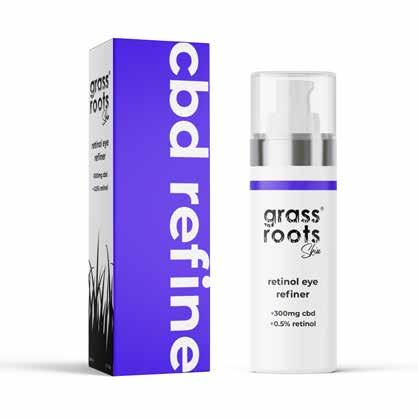
Jo: “Sleep and drink more water. It’s a tough one because there are no products that can ‘cure’ it. Vitamin C would help to brighten the skin so using serums with this
ingredient and just lightly tapping it under your eyes can help circles. Our eye cream has hyaluronic acid in it and retinol to prevent dryness.”
As skincare creators who have access to everything, what are your favourite products to use?

Jo : “I’m going to struggle between the Skin Drench Super Serum and the Super Glow Miracle Oil.”
Lindsey: “I go through stages of having favourite products. I’m loving our Super Shield SPF50 at the moment. It sort of sits on the skin and can be used as a primer before makeup.”
“CBD is really calming for the skin. It can help the skin in many ways.”
The Association for the Cannabinoid Industry (ACI) recently published a scientific paper in conjunction with the Centre for Medicinal Cannabis. The joint report calls on the Home Office and the FSA to increase the allowed amount of THC in CBD products sold over the counter and to clarify exactly what these limits are to the CBD industry, retailers and consumers.

Current advice given by the Home Office is open to interpretation and has led to a lot of confusion in the market. Due to the fact that THC is a controlled substance then it is not allowed in CBD products. However, this stance and other rules create great problems for the UK CBD industry.
Our study looked at existing scientific literature on this topic and guided us to make our recommendations to overcome the challenges the CBD industry is currently facing, which is important for the sustainability of the industry.
“We fully understand that tackling drug misuse, and the harm it causes, is a top priority for the UK Government,” explains Dr Parveen Bhatarah, Regulatory and Compliance Associate, ACI. “CBD is not a controlled drug but any plantderived CBD has potential to contain controlled cannabinoids. However, the Misuse of Drugs Regulations 2001 for CBD products demands that it contains no more than a defined trace percentage of controlled cannabinoids as an impurity. This paper has taken into account the analytical challenges, testing methodology challenges and existing scientific evidence base data to propose the safe limit for controlled cannabinoids.”
We identified that there are gaps in scientific knowledge surrounding cannabinoids and more research is required to allow regulators to make informed decisions. Therefore, the ACI recommends that more studies are undertaken
to demonstrate the toxicity and the effects of purified cannabinoids, such as CBD, Δ9-THC, Δ8-THC, and CBN. This could be done through animal testing and dose-dependent studies on these isolated cannabinoids in humans. Another useful study would be to discover how cannabinoids affect humans when combined.
This could be achieved through randomized, placebo-controlled trials of combined cannabinoids on humans. We also recommend that there should be further observational studies into CBD consumer behavior. “Underpinning any recommendations on the levels of controlled cannabinoids in consumer products, is the principle of protection of the consumer from harm and compliance with the law,” says Dr Paul Duffy, ACI Toxicology Associate. “We considered that to be the primary objective of our scientific review and evaluation of the advances in analytical detection chemistry for human and animal toxicological data on THC.”
Beyond our recommendations for further research we make the following recommendations to the Home Office and the FSA based on the findings of our research. In modern society, evidence-based decisions, underpinned by sound robust scientific data should be at the heart of safety for the consumer. The proposed levels of THC are reasonable and manageable from a safety and legal perspective.
Anything below 0.03% controlled cannabinoids in CBD products should count as “zero”.
It should be legal to sell CBD products containing up to 0.2% controlled cannabinoids (THC, CBN, THCV, THCA etc).
The Home Office should consider exempting dried hemp leaves and flowers from drug controls where the hemp has been lawfully grown or imported into the UK.
“This evidence-based initiative is important to allow a threshold for THC to be set in consumer CBD products that is safe for consumers and society, is enforceable by regulators and can be adopted by manufacturers,” says Dr Andy Yates, Scientific Associate for ACI and CMC. “By adopting these recommendations, the UK can establish itself as a leading jurisdiction in setting unambiguous, enforceable, evidence-based standards for CBD products, which the industry and the consumer has been calling for over the last few years.”

We provide other recommendations relating to labelling, monitoring of any health risks, public guidance to clarify the legal controls on the manufacture and possession of products containing CBD (and other cannabinoids) and to provide guidance to the CBD industry regarding the regulations and requirements for the transport, manufacture, and supply of CBDbased food products.
The paper was jointly published by the ACI, the Centre for Medicinal Cannabis (CMC) and Conservative Drug Policy Reform Group (CDPRG). It was written by Dr Parveen Bhatarah (Regulatory and Compliance Associate, CMC & ACI), Dr Paul Duffy (Toxicology Associate, ACI), Dr Andy Yates (Scientific Associate, CMC & ACI), Dave King (CDPRG), and peer reviewed by Professor Saoirse Elizabeth O’Sullivan. The paper will be further peer-reviewed and published as an academic paper. It can be downloaded from theaci.co.uk

.
VOXPO has created an expo in a box.



It is a criminal offence to drive while impaired by cannabis. But does the presence of THC in the bloodstream automatically mean that a driver is impaired and should be penalised? A meta-analysis from the University of Sydney suggests not.
Words by Gordon StriblingDriving under the influence of drugs is considered a serious offence in most parts of the world. And in the case of cannabis, it is the presence of the intoxicating THC that the authorities are concerned about.
But new research from Australia could have implications on how policing authorities treat cannabis users across the world.
Researchers conducted a metaanalysis of 80 studies into THCinduced impairment from the past 20 years. The team, from the Lambert Initiative for Cannabinoid Therapeutics at the University of Sydney, found that there was a lot more at play than just the levels of THC in the blood or urine.
Lead author Dr Danielle McCartney said: “Legal cannabis use, both medical and non-medical, is increasingly common across the world.
“THC is known to acutely impair driving and cognitive performance but many users are unsure how long this impairment lasts and when they can resume safetysensitive tasks, such as driving, after cannabis consumption.”
The analysis found that the duration of impairment varied considerably depending on the type of cannabis product consumed. For example, a high dose of a THC edible could last
up to 10 hours. But a more typical duration would be four hours after a small dose is vaped or smoked and a simple cognitive task is undertaken.
This level of intoxication could impair driving for as long as seven hours after a high dose is vaped or smoked.
Study co-author Dr Thomas Arkell said: “We found that impairment is much more predictable in occasional cannabis users than regular cannabis users.
“Heavy users show significant tolerance to the effects of cannabis on driving and cognitive function, while typically displaying some impairment.”
Previous research by Arkell and colleagues found that CBD does not impair driving. With cannabis patients consuming their medicine in many different forms including vaping, edibles and oils, the findings may force authorities to rethink how they approach drug testing.
Lambert Initiative academic director Professor Iain McGregor called for a rethink and stated that prosecution based solely on THC in the system is ‘manifestly unjust.’
He said:
“THC can be detected in the body weeks after cannabis consumption while it is clear that impairment lasts for a much shorter period of time.
“Our legal frameworks probably
need to catch up with that and, as with alcohol, focus on the interval when users are more of a risk to themselves and others.
“Laws should be about safety on the roads, not arbitrary punishment. Given that cannabis is legal in an increasing number of jurisdictions, we need an evidencebased approach to drug driving laws.”
In the UK, a new section of the Road Traffic Act 1998 was introduced in 2015, outlawing drug driving in England and Wales. This addition gives police the power to test and arrest drivers suspected of driving while having excessive levels of controlled drugs in their system.
However, the legislation provides a statutory ‘medical defence’ which applies if the drug was lawfully prescribed, supplied, or purchased over-the-counter, for medical or dental purposes. Or if and the drug was taken in accordance with advice given by the person who prescribed or supplied the drug, and in accordance with any accompanying written instructions (so far as the latter are consistent with any advice of the prescriber. It is the driver’s responsibility to ensure that they feel safe to drive after consuming their cannabis medicine. To err on the side of caution, always speak to your doctor about your concerns.

Brexit and COVID-19 have brought substantial economic insecurity to the UK. Despite the economic impact of 2020, cannabis was one of the few industries to end the year on a high.
This year holds promising opportunities ahead with the wheels in motion for the UK to become a financial hub for the cannabis sector. The last few months have been filled with breakthroughs for global cannabis reform. We have seen landmark decisions like the European Court of Justice ruling on CBD, and the UN rescheduling medical cannabis. The world is clearly warming to the idea of cannabis in 2021.
Reform is occuring in the UK at such a speed that many haven’t realised just how monumental such recent developments are. Cannabis has come of age and is ready for business in the UK.
The domino effect began with the UK Financial Conduct Authority authorising medical cannabis companies to list on the London Stock Exchange in September 2020. In a time of economic turmoil,
this was a symbolic opening to a profitable sector.
Six months later, this has snowballed into something much larger. The recent listings, acquisitions and novel food regulations set the stage for the UK to be a major player in cannabis.
Kanabo, MGC Pharma and Cellular Goods listing last month were a milestone for the industry. These listings are only the beginning of an investment wave, with few realising the sheer significance this has for the British sector. These listings will be beneficial for the expansion and diversification of the industry, ensuring patients and consumers have access to appropriate products.
Historically, cannabis has invoked strong emotional reactions from the public with polarised opinions. The opening of the UK market has dramatically changed the landscape for cannabis reform discussions.
Cannabis reform is indeed happening right in front of our eyes and in mainstream society. Investment has blended cannabis into a normal and legitimate
business. As this trend continues, it is only a matter of time until we see wider reform.
Recent acquisitions are having a similar impact. Jazz Pharmaceuticals acquiring GW Pharmaceuticals highlights the rapid medicalisation of cannabis. This will increase potential in cannabis medicines, along with expanding access. Curaleaf’s acquisition of EMMAC highlights Europe's rapid business growth, ready to cater to a large cannabis market. Avihu Tamir, CEO of Kanabo, says: "The current medical cannabis industry in the UK and Europe is still in its initial phase, but the recent acquisitions by Canadian and American companies emphasise the incredible potential of this market. I believe that now is the time for the leading companies in the industry to work together and promote safe and accessible cannabis programmes."
This business expansion we are seeing is an important step toward expanding accessibility for cannabis medicines. With a booming CBD industry, the UK sits in a unique and promising position for
regulatory clarity. Clear compliance with novel foods authorisation will ensure the UK is an attractive jurisdiction for future investment. Clifton Flack, CEO CiiTECH, says everything appears to be going in the ‘right direction.’ “The acceptance and subsequent enforcement of CBD’s novel food classification by the UK FSA is a bold step in the right direction. “There has been widespread pushback in the industry, however we at CiiTECH prescribe to the consensus that to embrace existing regulatory frameworks is the best pathway to expedite industry growth. Novel Food guidelines fundamentally ensure product and consumer safety, meaning UK brands can now leverage the opportunity of becoming compliant under the worlds first gold standard for CBD products.”
A pragmatic approach for regulatory clarity gives the UK an advantage. This is another means by which the industry is being legitimised with the highest standard for food quality and safety. With clarity paving the way, this makes the UK an excellent place for innovation and investment. Robert Jappie, Partner at Ince Legal Firm agrees and says compliance is welcomed in the British sector. “All of these legal and compliance developments are welcome as they bring clarity to the regulatory environment. This clarity encourages further investment and innovation in the sector. There is still more work to be done, but everything is heading in the right direction. As further regulation is introduced, market stability, growth and consumer/patient confidence increases. This all leads to a very big year ahead for cannabis.”
These developments feed into positive industry expansion, leading to widespread job creation. As an interdisciplinary field requiring a wide-range of job roles, industry expansion is something to be welcomed given the unprecedented double-dip recession we are on the cusp of. The booming CBD industry is a

particularly exciting example of the impact that cannabis can have on the economy, and provides ample credible evidence for making the UK a central jurisdiction for companies.
Currently standing at 6 million, the number of CBD users in the UK continues to grow. CBD has been an effective means of rebranding the cannabis industry, attracting a large and varied consumer base. Survey data indicates that more women are using these products and although use remains lower among older adults, it is increasing.
CBD has removed a significant amount of stigma that some attach to cannabis, into a product that is
now associated with health and wellness. This makes CBD one of the greatest things to happen to the cannabis industry, by making it more vibrant and dynamic.
The domino effect we are currently witnessing with UK cannabis investment will continue to snowball and break down stigma. Investment is a vessel for innovation, a means of improving product quality, patient access and advancing knowledge of the cannabis plant. If we accept this, it will lead to a more vibrant industry.
The UK is set to be a cannabis investment hub, so let’s view this positively and embrace it!
As cannabis makes an entrance onto the London Stock Exchange, we take a look at why this is significant.
Words by Róisín DelaneyThree cannabis companies launched onto the London Stock Exchange in the first quarter of 2021.
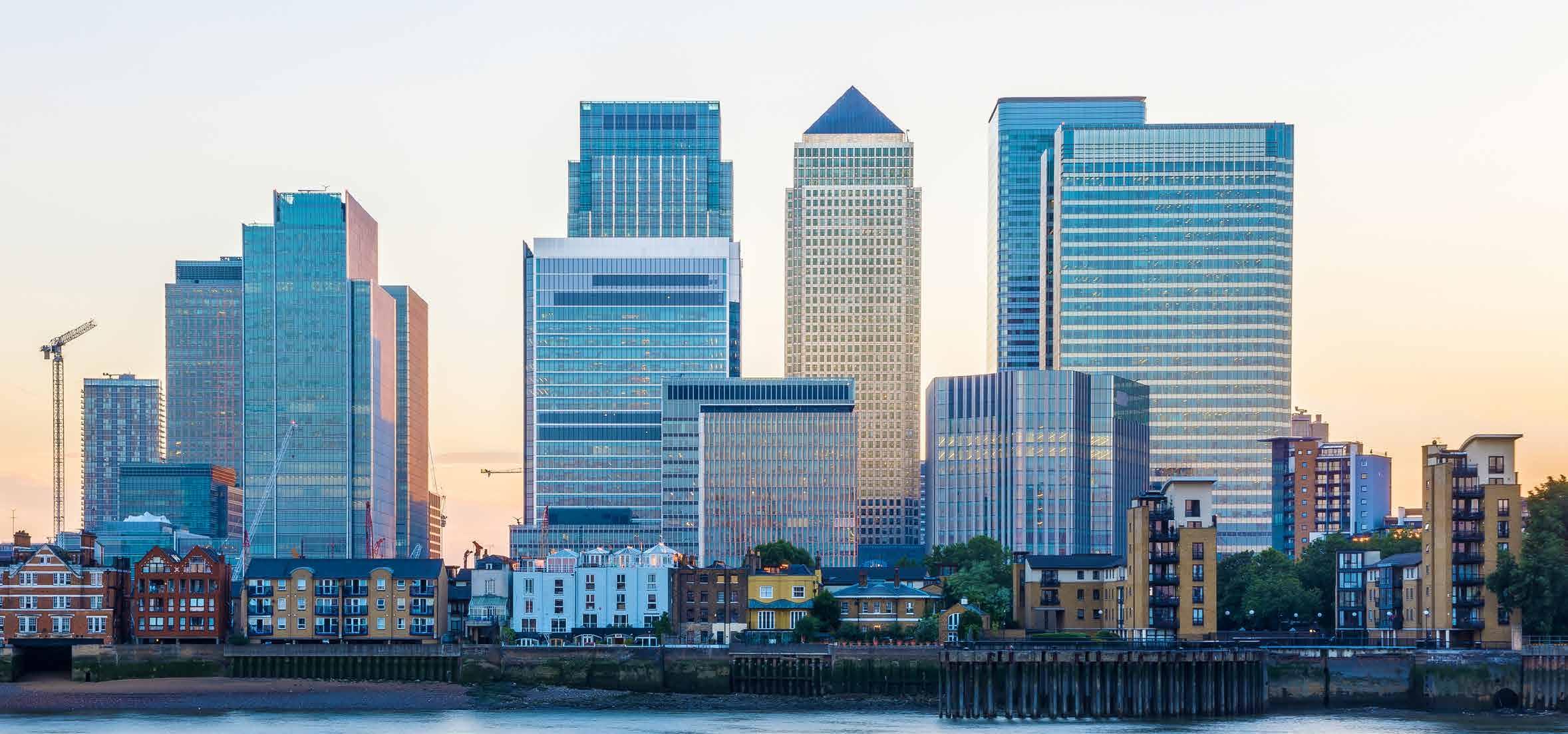
Why is this news? Let’s break it down.
The London Stock Exchange is the largest exchange in Europe, with a combined pool of capital worth roughly £3 trillion. In February, Kanabo, MGC Pharmacuticals, and Cellular Goods – the latter with links to David Beckham – became the first cannabis companies to publicly list on the LSE.
In September 2020, the Financial Conduct Authority (FCA) earmarked a review of its guidelines in order to
allow cannabis-themed companies to list. It was subsequently announced that CBD and medical cannabis companies with Home Office licenses would soon be able to do so.
The guidelines are precise, saying that only those who are considered to be legal in the eyes of British law with the right licenses are permitted to list.
So, let’s say you have a Canadian medical cannabis manufacturing company, but you also produce recreational cannabis for the legalised adult-use market there, this would likely mean your company could not list on the LSE.
The FCA issued a statement in September, explaining why foreign companies, while legitimate in their operations in other nations, may not be admitted.
“The proceeds from recreational cannabis companies, even when they are located in those jurisdictions
that have legalised it, are proceeds of crime under Proceeds of Crime Act. We would therefore not admit the securities of such a company to the Official List.”
In April, we asked the FCA if they could provide more detail on the kind of response it has received from cannabis firms since the reform last year, but a spokesperson said no further information will be made known until a period of consultation is held.
In brief, this means there is more interest in cannabis investments in this part of the world now than ever before. Opening up the legal cannabis space as a larger market with big numbers may lead to greater legitimacy from the mainstream.
Alex Arkentis CEO & co-founder of CanXchange, believes the change is a credibility boost for the industry.

“It is incredibly exciting to see cannabis companies on the LSE. Not only does it benefit the company being listed but it also increases the credibility and exposure of the wider industry. IPOs provide an opportunity for companies to raise a large amount of capital, ultimately allowing it to
further grow and expand. This is exactly what our industry is currently lacking – the tools and resources to scale and grow – and we fully support the current IPO trend.”
“It is significant because seeing these players on the LSE illustrates the legitimacy of the sector and undeniable demand across Europe. I am confident that this is only just the beginning in terms of cannabis company IPOs and as regulation and standardisation improve, they will become more and more common.”

Lily Temperton is a consultant at London-based Hanway Associates. The company provides commercial strategy and operational support to the cannabis sector. Lily says this is a new opportunity for investors to explore. “Until now, investors have had limited options to invest in European cannabis companies aside from those listed on Scandinavian
exchanges. This pent-up demand was evidenced by the multiple oversubscribed cannabis listings we saw in February.
“The ability to raise capital through financial institutions will allow medical cannabis operators to enter new markets, roll out doctor education at scale, and develop new product formats like tablets and inhalers – ultimately expanding access for patients across Europe.”
Among the giants of the PLC world are household names Unilever, HSBC, AstraZeneca, GlaxoSmithKline and more. Who knows, perhaps we’ll see a cannabis firm make the FTSE 100 in the years to come. With the wider business and finance community gradually embracing cannabis, anything seems possible from here.


Our mission is to reduce the nancial barriers of access to medical cannabis.
We were founded to aid in the nancial di culties that can a ect individuals who are unable to a ord the costs associated with medical cannabis prescriptions.
It is thanks to our incredible supporters and donors that we are able to provide life-changing support for patients through cannabis-based medical products.
We rely on the generous donations and fundraising of our supporters to enable us to provide nancial assistance to those with greatest need.
sapphirefoundation.co.uk/donations/make-a-donation
Volunteer
Get in touch and volunteer to help fundraise for Sapphire Medical Foundation
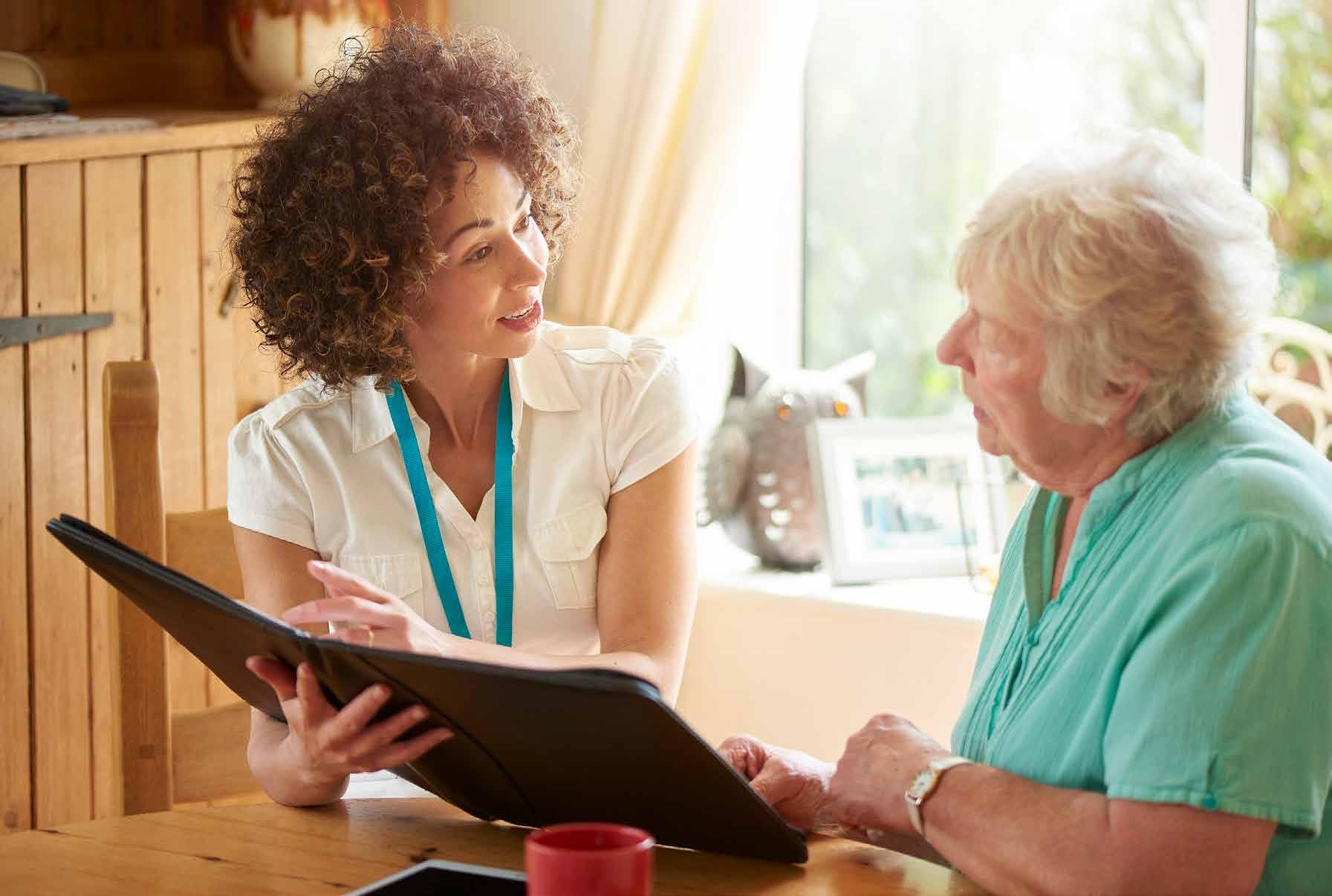
Sapphire Medical Foundation is supported by The Centre for Medicinal Cannabis
Find out more sapphirefoundation.co.uk




























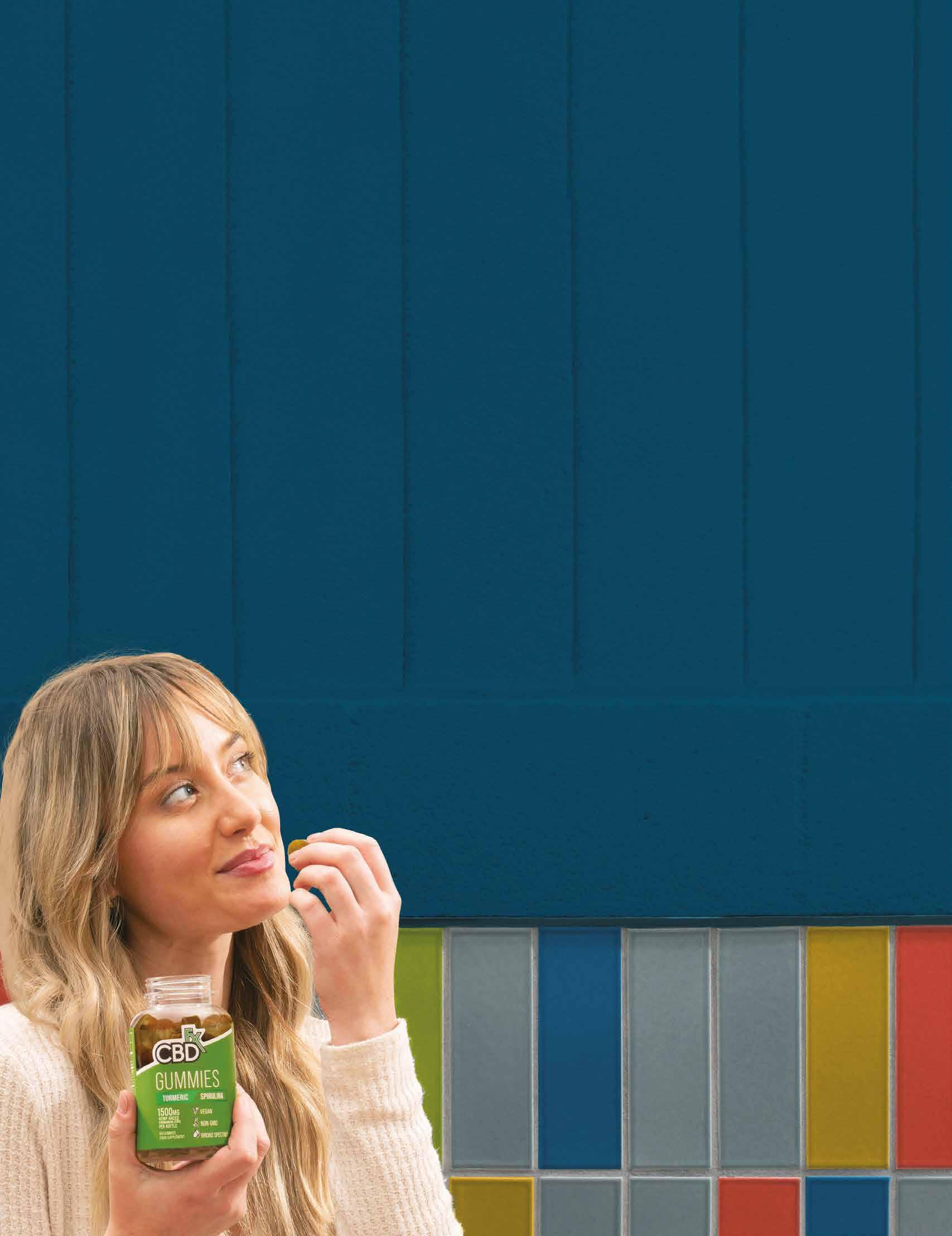

Kanabo Group specialises in THC-free solution-driven products and has developed the world’s first medical cannabis vaping device set for human trials
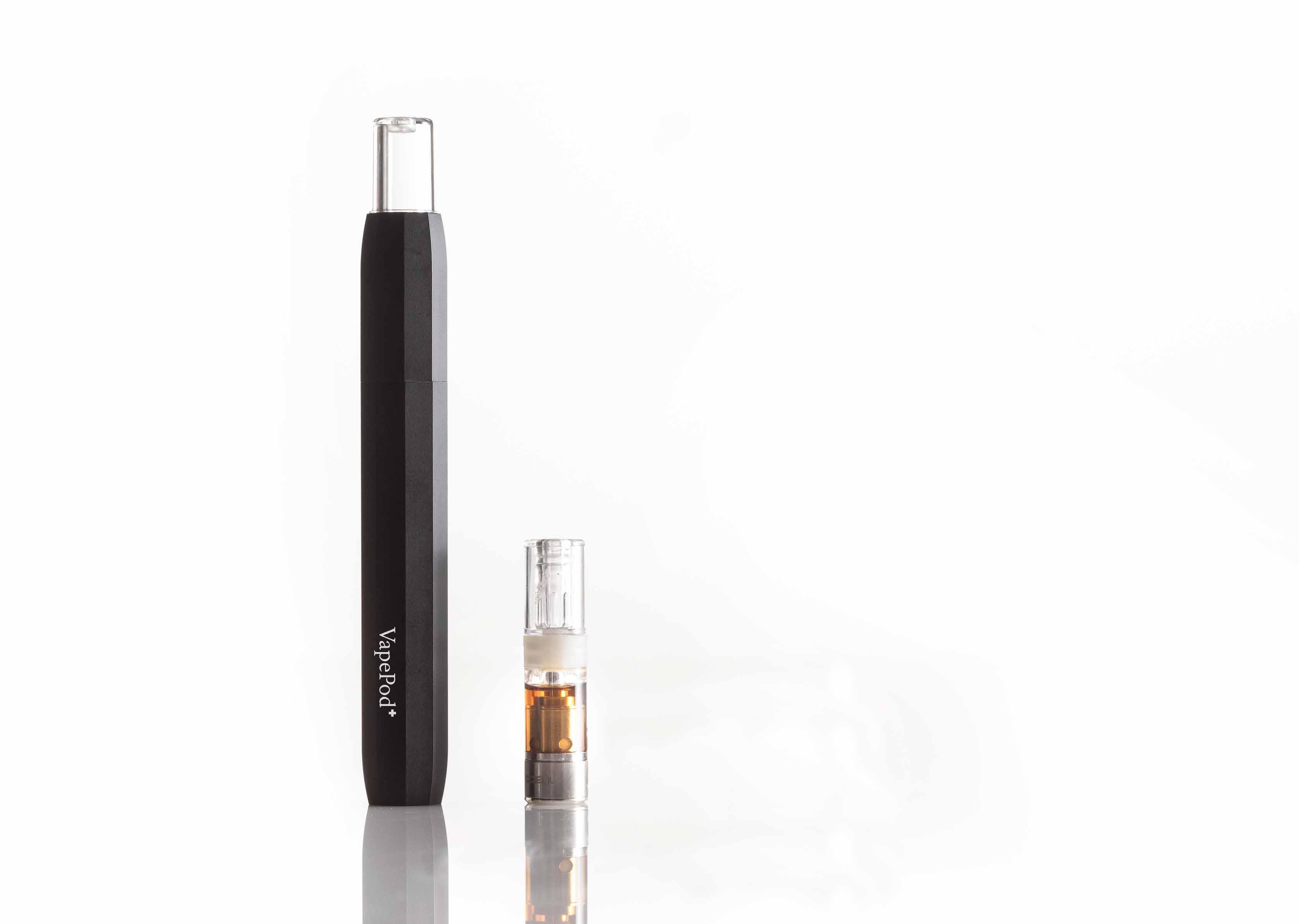 Words by Róisín Delaney
Words by Róisín Delaney
An Israel-based medical cannabis company has developed the world’s first medical grade cannabis vaping device which offers peace of mind when it comes to dosage.
Approvals for the device are in the final stages and plans are underway for a VapePod pilot programme in the UK. The device has taken three-tofour years to develop, backed by research.
Kanabo, the first cannabis company to IPO in the UK, has created the vaporising device which ensures the controlled application of EU GMP pharma-grade cannabis formulation.
This means that following a successful roll out, millions of patients can look forward to being prescribed a measured, consistent and safe form of medical cannabis which can be inhaled.
It is hoped that GPs will be able to prescribe targeted dosages using the device for patients with numerous health conditions, including insomnia and other sleep disorders, pain management and PTSD.
The scientific and medical evidence supporting the prescription of medicinal cannabis to relieve numerous conditions is ‘unquestionable,’ according to Kanabo founder Avihu Tamir, who is behind the development.
The European medicinal cannabis market is expected to be worth €2.3 billion by 2025.
Up to now, many patients have been medicating with cannabis flower, which gives a different dose
on every inhale, creating a barrier for physicians. Others have chosen to self-medicate with illicit cannabis, which is smoked. Many in the healthcare community who endorse medical cannabis as a therapy cannot accept smoking as a medicinal delivery method.
Joining me for this interview from Tel Aviv via Zoom, Avihu told me the physician and patient communities can both benefit from this device, because it provides a precise dose per inhale, and it gets to work faster than a pill or edible.
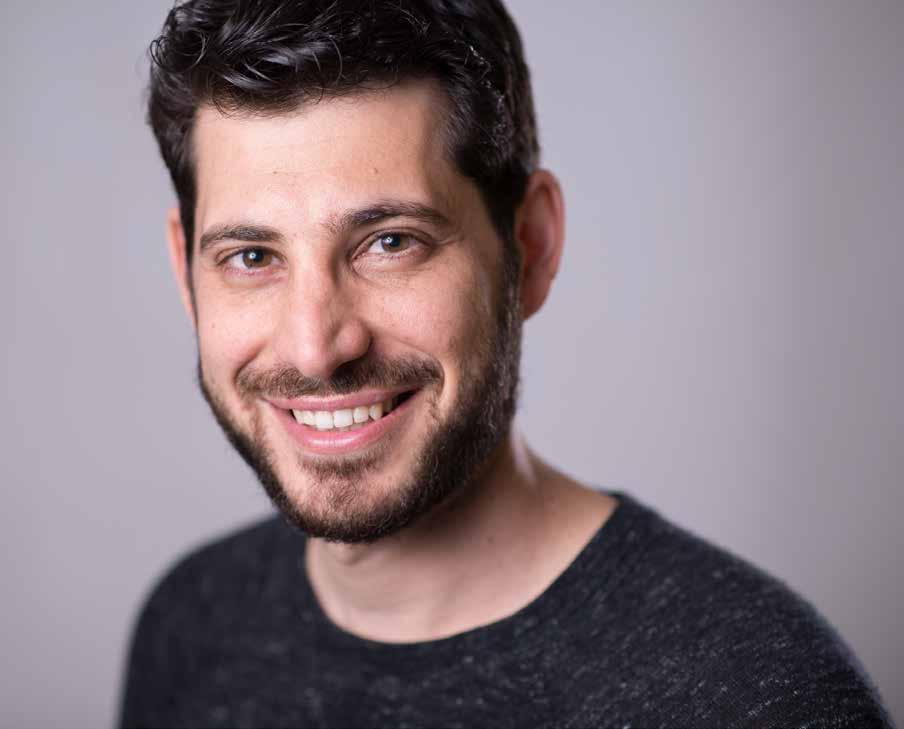
“With oral consumption, that can take anywhere between an hour to sometimes three hours for effect. If you have pain, you’re not going to wait for two or three-hours. If you have been taking the medicine for mental health, it’s the same. PTSD patients do not want to wait this amount of time when they have a panic attack with stress.”
The VapePod is a simple looking device with no buttons and can be charged via a USB cable. Avihu says it is ‘much simpler than an e-cigarette.’ From the research and development which went into the VapePod, the Kanabo team know that the psychoactive element of cannabis medicines is a problem for many patients who need fast action to manage their symptoms. He adds that the problem with other delivery methods is the wait time patients often face to see if they took a high enough dose, with some resorting to taking too much, ‘just in case’ the first dose wasn’t enough.

“In cannabis, I would say the number one problem or side effect is when people are taking a high dose and feel this bad feeling of the psychoactive. When you are taking cannabis orally, it’s a bit like playing roulette. You don’t know how quickly it will affect you and for how long? And the worst thing is you don’t know how strongly it will affect you.”
In the cannabis sector, phrases like ‘lack of evidence, not enough clinical data…’ are uttered by policy makers around the world. As with any new course of treatment, those who write
the rules around healthcare across various jurisdictions, including here in the UK, are slow to embrace medical cannabis.
Meanwhile in Israel, companies like Kanabo have pushed through that wall study by study since the 2000s. “It’s not correct…” according to the VapePod creator. “There is enough [research] already. There’s probably close to 50,000 types of research on cannabis, if you are looking. There’s still a lot to be done. What we’re doing today is in the level of safety first and bioavailability.”
“And don’t forget that we’re bringing to the market, not only the innovation of cannabis, but bringing innovation of vaporisation of cannabis, in a medical form. That is something that is non-existent out there.”
Kanabo has examined minor cannabinoids, including Cannabinol (CBN) for its purported benefits in cases of insomnia and other sleep disorders.
Avihu says the data is promising, with one preclinical study showing top marks. Researchers examined the effects of CBN against Diazepam, also known as Valium. Diazepam is commonly used to treat anxiety, seizures, alcohol withdrawal syndrome, benzodiazepine
withdrawal syndrome and sleep disorders.
“The patent is based on a minor cannabinoid called CBN. We tested it to compare with Diazepam, and we got almost a 100% longer sleep duration. This is a preclinical study so it’s an animal model, but with crazy results. And what is even more interesting is that we had results without THC, just CBN and CBD. This is an over-the-counter product that performs similar to an addictive drug.”
With a listing on the London Stock Exchange, Kanabo, under Avihu’s leadership, has already achieved significant milestones and now plans to run human trials on its high-quality non-THC medicinal products.
Avihu says that from his perspective, the UK faces a unique opportunity since its withdrawal from the EU. “You see the position that the UK has right now with Brexit, with the supporting environment of businesses. I do believe that we’re going to see a big shift in cannabis in the UK very, very soon. I hope that the NHS will be more active in this and that it will come out from just being under these private clinics to be something that is much more accessible.”


















The Pure Sport CBD virtual Run Club has helped more than 800 people stay active over lockdown while readying Will Goodge for an epic ultra-running challenge.
 Words by Gordon Stribling
Words by Gordon Stribling
The intermittent lockdowns of the past year have led millions of people to dramatically change their exercise routine or take one on for the first time.
Among the legions to have relied upon running for their physical and mental health during lockdown is 26-year-old model and head of Running Relations at Pure Sport CBD, Will Goodge. After his mother Amanda sadly passed away in 2018, running helped him cope.
“I could have gone on a very different path. But fortunately, I found running-based therapy,” Will says.
“Any time I was feeling angry, sad, depressed, day or night, I'd go out for a run. And while it wouldn't fix my problems, I would feel better about things afterwards. And I felt a bigger sense of connection to Mum when I was out there.”
Every year, Will sets himself gruelling challenges to honour his Mum and raise money for Macmillan Cancer Support. He also competes in brutal running competitions, such as the Ultra X World Championships.
In June, he’s set to fly out to Slovenia to take on the 250km mountain course. CBD will be helping him along the way. It was
on an 850-mile run from Land’s End to John O’Groats that he saw what it could do.
“I was taking codeine at the time which was a terrible idea. I redefined ‘runner's high.’ I started hallucinating, not sleeping at night and seeing a lot of things that weren't there. Swapping from codeine to CBD saved my entire challenge.”
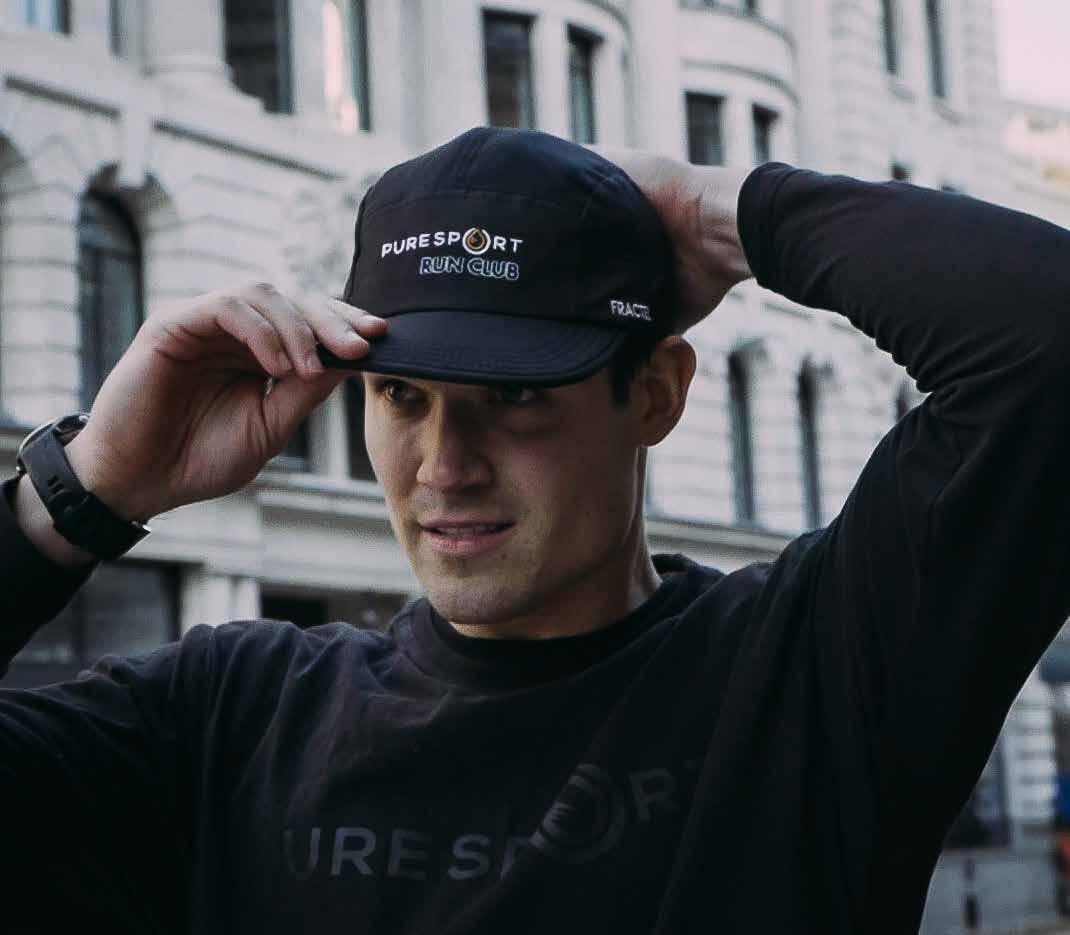
On day nine, he was told that he couldn’t take the codeine anymore. Then he woke up the next morning after having taken CBD after his first deep, refreshing sleep of the challenge.
“From that point on, I ran 60 plus miles a day, which was more than I had been running other than the first day. And I did my best day, which was 72 miles, so I decided to get up at 2am to do another 12.”
The months leading up to an event like Ultra X involve serious, intense training.
To help him prepare, Will created the virtual Pure Sport Run Club. The club has helped more than 800 people keep fit and motivated though lockdown as they take on challenges and track their progress using the popular Strava app. “I used to be the lonely runner and I never had anyone to look up to for guidance and I know how much more it would help if I had a shared common goal. But now there's something we created that I'm super proud of. Even if it's just a little goal like a 5K, you might find it easy, but if you didn't have that community there, you might not have done it. So as much of a big push that could be for someone, it could also be a real micro-push.”
With little experience of training others, Will brought running coach Lloyd Kempson on board. Lloyd was inspired by his own experiences in a commercial run club environment.

Running was the absolute key to keeping myself on a good path .
“
He found the club-based system could foster a sense of elitism while the commercial world was a lot more accepting. All you need to is get there, leave your ego at the door and have a good time, however hard you go or fast you are.
“When anyone is welcome, you gain benefits in physical, mental and social areas, it unlocks doors to so many parts of your life that you may never have come across before. So social health improvement, you may meet friends that you would have never met before. Mentally, you may find so much more confidence in your ability to apply yourself to an activity that you never thought you couldn't before. And then physically, you may find yourself getting fitter becoming healthier, improving your weight.”
CBD has become a holistic treatment for an increasing number of athletes, Will explains. From treating aches and pains with a balm post-race, to drops in the morning or at night to aid recovery or encourage sleep.
“We work with people across the board and not just in the running world,” Will says. “Harry AikinesAryeetey uses it, triathletes like the Brownlee Brothers, too. So, the diversity it has is insane. And to be able to sleep and recover well is good for anyone.”
The Run Club is bringing out people who haven’t run in a long time. There are various reasons for this, Lloyd says. Some were bored of running, others got injured or pushed themselves too hard and some didn’t train properly. But the Run Club welcomes all newcomers.
“We realise that it doesn't actually matter how terrible we are, that we're all doing the same common thing and getting the same benefits from it. That's all that is important. We want you to be able to leave this session and say, ‘I really enjoyed that. And I can't wait for next week.’”
Now the country is starting to open up, Run Club is on track to go to the next level while keeping that spirit of inclusivity and giving new runners the social experience that Lloyd has found so valuable.
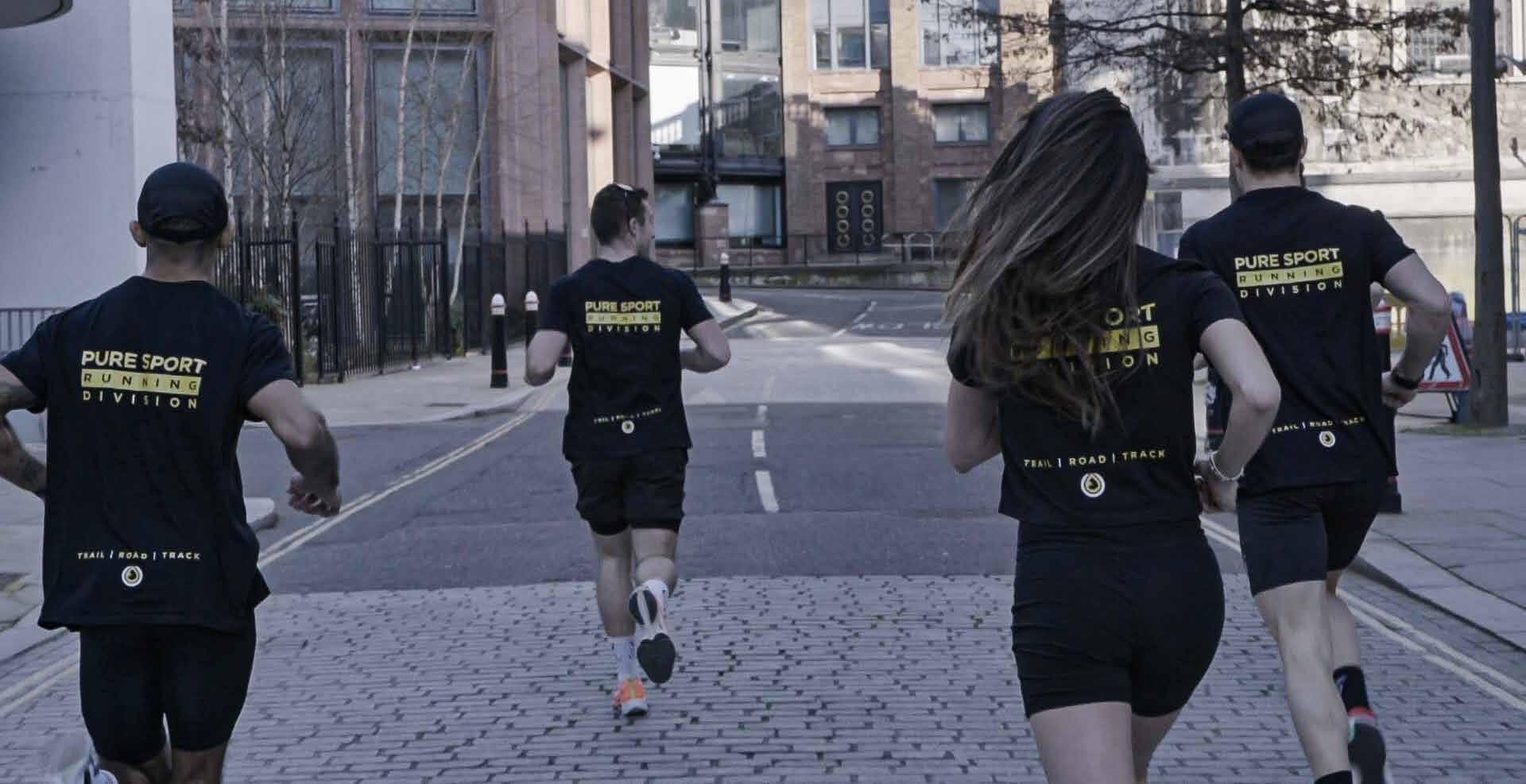
“A lot of them may never have had this social side of the sport before and I know how amazing it is,” he
says. “To have that opportunity to bring it to their doorsteps is a really exciting thing for me. I genuinely think just from seeing how quickly this has grown online that this will be the biggest run club in London by the end of the year.

“I'm excited about bringing it outside,” Will says.
“To be honest, I'm sick of virtual races, but I still get excited when I see other people running on Strava and you see the outline of their map. To do it in person around a park or something… I'm going to be on top of the world.”

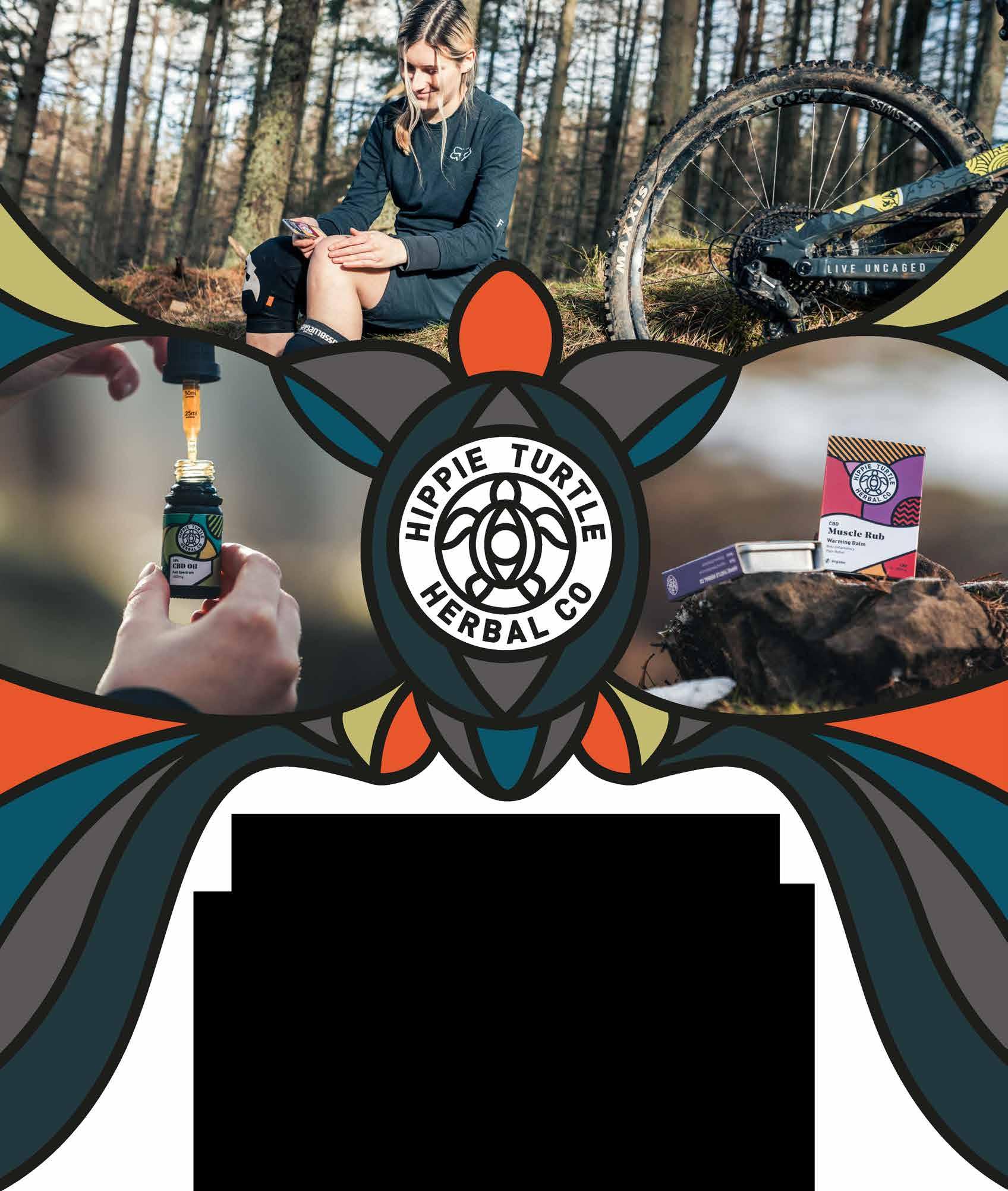

The Kentucky-based producer of hemp-derived CBD and other cannabinoids is a world leader in the THC-free CBD market.
Taylor Mammon, situated in Hertfordshire, specialises in white label manufacturing and brand distribution.
According to a joint statement, the takeover positions the company as ‘a fullservice, vertically integrated, worldwide CBD gateway’.
Both organisations agree that the union will continue what has been a successful three-year relationship between the two companies, ‘in which GenCanna served, and will continue to serve,’ as Taylor Mammon’s primary source of CBD.
Commenting on the news, Nathan Wogman, co-founder and Managing Director of Taylor Mammon said:
“We are delighted with the opportunity this acquisition affords us.GenCanna’s acquisition of Taylor Mammon positions us for significant international growth and to be a global leader in the CBD arena. Our partnership provides us with the financial and intellectual capital and discipline to accelerate our growth through product innovation, contract manufacturing, fulfilment, and distribution services.”
GenCanna CEO, Andrew Barnett, added: “This alliance — which we understand is the first of its kind for a UK-based CBD company — drives unique and mutually beneficial operational and marketing synergies that will catapult product development, sales, and revenue opportunities within our respective geographies.”
The acquisition comes on the heels of an 18-month initiative at Taylor Mammon to prepare for its Novel Foods Application at a UK and EU level.
It’s been a tough year for us all, including the British economy. With millions of people on furlough, severe job losses across the nation and sluggish growth, we ask if hemp can help the UK recover financially from the pandemic.
Words by Caroline BarryIn the US, a report from Leafly has revealed that there are now 321,000 full time jobs supported by the cannabis industry. It is estimated that there are now more cannabis workers than there are electrical engineers in America. The biggest jobs boost for the sector came in 2020, when cannabis-related employment doubled, according to the report.
In the UK, the unemployment rate is currently at about 5%, which amounts to approximately 1.72 million people being out of work. Endorsing cannabis could help to create an industry which could in turn help get people back to work. From hemp agriculture to adjacent industries like packaging and distribution services, the US has shown there are multiple facets to the hemp sector.
For example, cannabis dispensaries, widely available across many US states, could also provide a boost for the British high street. Many
CBD and cannabis retailers in Canada and the US have provided a delivery service or curb-side pickup during the pandemic and the demand for product continues to grow. Americans purchased $18.3 billion worth of cannabis products last year, a 71% increase on 2019.
Plastic pollution is a massive problem which is set to get bigger after a year of COVID-19 related waste. This includes single use plastics in the form masks, tests, vials and hand sanitiser bottles. Hemp-made plastic can be used to create a number of different materials including those of a biodegradable nature.
Once the fibres have been removed from the stems, what remains is 77% cellulose, which is a light source that could replace petrochemical plastics. It can also help clean the air.
Hemp plastic can be made into a number of different items. Sam
Whitten is the Managing Director of Hemp Eyewear. He creates bespoke sunglasses from hemp.
“I discovered the great pacific plastic garbage patch online which is 12 times the size of the UK. This led me to research sustainable materials and industrial hemp was hands down the most renewable, eco-friendly and diverse materials on earth.”
Although the economy is more focused on jobs, the UK has committed to dropping its carbon emissions by 2050. One of hemp’s most beneficial attributes is its ability to absorb carbon dioxide, which is one of the key causes of climate change.
Hemp can absorb up to 15 tonnes of CO 2 per hectare which makes it an extremely fast converter. It absorbs more of the compound per hectare than any other crop or commercial forestry.
The plant consumes four times
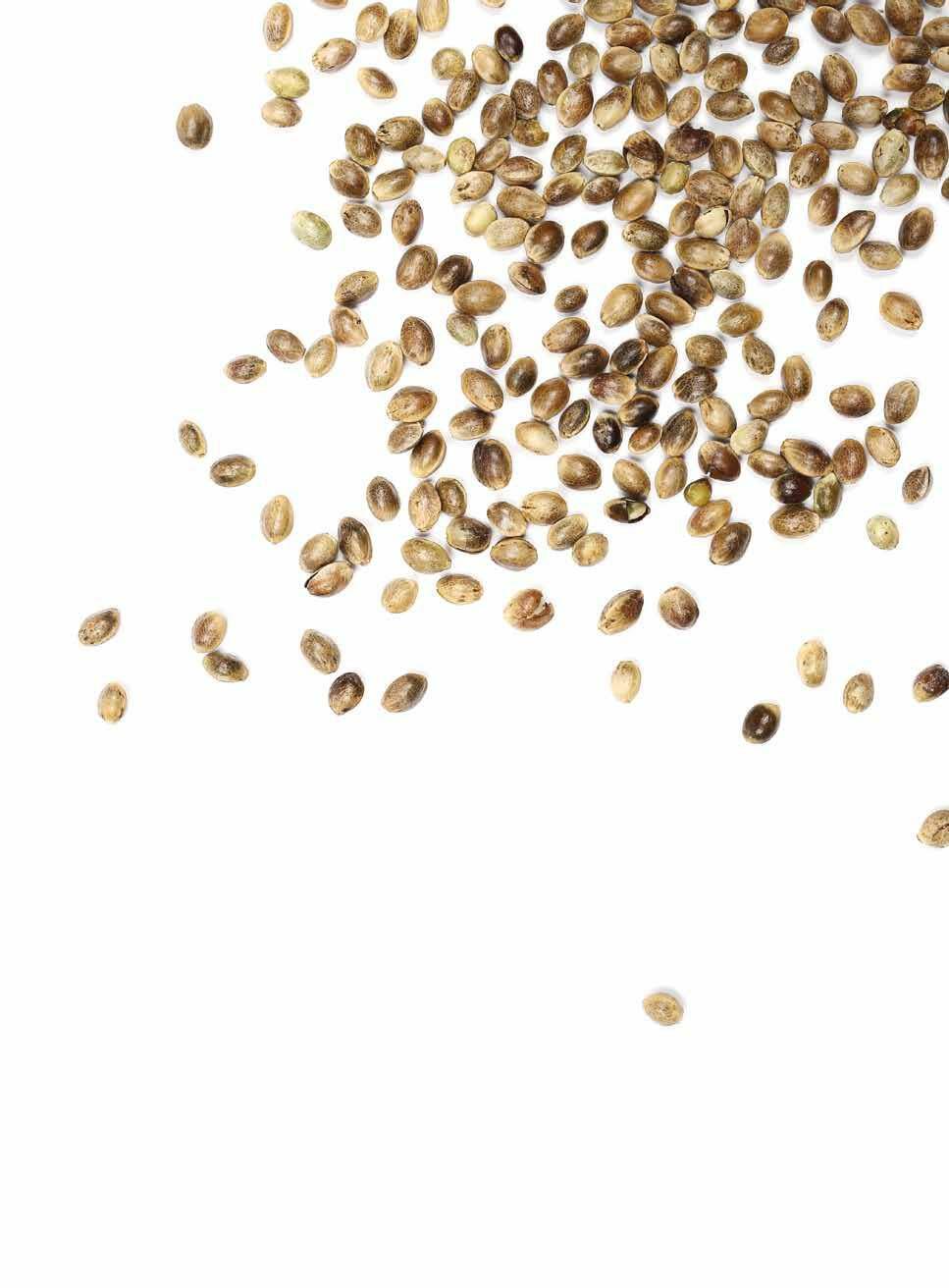
more CO 2 than trees do and has a shorter growing cycle of just 12-to14 weeks.
Hemp also consumes radioactive pollution and toxins. This is one of the reasons why hemp plants were used to clean the soil after the Chernobyl disaster.
Hempcrete is a mix of natural materials, lime and hemp, which some say could replace concrete. It requires very little water in comparison to concrete
It is also much more lightweight, with excellent thermal properties. Hempcrete can be used to build, restore or renovate any type of building, making it an extremely versatile material.
There are many nutrients found in hemp. It’s an excellent form of vegan plant-based protein that contains a large amount of essential amino acids that we do not produce ourselves.
The seeds can be added to yoghurts, soups or salads but there are also hemp milks, oils and cooking pastes on the market, some of which also contain CBD for an extra health benefit.

Biomass fuel is an alternative for coal, oil and gas. The plant is rich in cellulose and fibre that can be used in the production of fuel and energy. The novel auto fuel is derived from the biomass and
can be converted in methanol or ethanol. Hemp seed oil can be used in the manufacturing of petrol. Experts say embracing hemp biomass fuel would reduce our dependency on fossil fuels while also releasing less CO2 into the atmosphere.
Denim and cotton are two of our most loved fashion fabrics. From production to washing, both use a lot of water. The fashion industry is responsible for the largest amount of water wastage accounting for 20% of all industrial water pollution.
It is estimated that 1.3 trillion gallons of water is spent during the dying process alone. Like cotton, hemp can be made into fabric too, but it requires 50% less water.

It is estimated that this means there are now more cannabis workers then electrical engineers. The biggest jobs boost came in 2020 when cannabis related work doubled.




If yo ur j ob involves CBD o r me di ca l cannab i s, yo u’ l l be e ligibl e to j o in Th e CA NN AVIST Bu si n es s Ne twork for FRE E .





With the easing of lockdown restrictions, on location events are gradually making a comeback in some parts. In the meantime, there is a plethora of online events to help further our CBD & medical cannabis learning. Here is our guide to some of the events on the cards for this spring.
Entering Cannabis Online April 20 | enteringcannabis.com
A live weekly summit series which offers a deep dive into the trends and developments within the cannabis industry. It offers you the chance to learn, connect, and network with professionals, investors, consumers, patients, physicians, and entrepreneurs.
Presented by The CANNAVIST Online April 28-30 | voxpo.vfairs.com
Following the success of both UK and US events last year, this virtual exhibition and online conference takes place over three days with talks, panel discussions and workshops on CBD and medical cannabis. Featuring more than 40 experts from across the European cannabis community, CBD Live Europe has something for everyone. Day one will suit professionals, day two will feature advocacy and patients, while day three is all about wellness.
LCG Talks: E-Commerce Online May 18 | Londoncannagroup.co.uk
London Canna Group (LCG) Talks E-Commerce takes place online in May. A virtual conference that aims to equip CBD and legal cannabis brands with all the information needed to enter the new retail reality.

Prohibition Partners Live Online May 18-20 | Prohibitionpartners.live
Prohibition Partners LIVE returns in May with their global cannabis conference. The three day event includes networking opportunities for those working in canna industries along with debates, talks and panel discussions.
Natural Products Expo West Online May 24-27 | expowest.com
The event will showcase the best brands in the natural product market including CBD. It also combines educational talks, activities and panel events.
Discussing Cannabis Based Medicine for Back Pain Online May 25 | Integroclinics.com/events
A collaborative webinar focused on the use of medical cannabis for back pain. The discussion will feature the potential benefits for different back pain conditions from experienced healthcare professionals and the nation’s longest serving back pain charity, Backcare UK.
GCI Virtual Summit Online June 8-10 | summit.gcintelligence.com
The GCI virtual Summit provides an online global platform for leaders in the cannabis and psychedelic industries. Some of the highlights include discussions on consumer branding and retail, psychedelic therapeutic compounds and cultivation techniques.
Cannabis Marketing Summit Online June 8-10 | thecannabismarketingassociation.com
The second annual Cannabis Marketing Summit will be held over two days in June. In association with Marijuana Business Daily, the event will combine panel discussions with workshops and networking events.

USA CBD EXPO Georgia World Congress Centre On Location June 11-13 | usacbdexpo.com/atlanta
One of the largest CBD and hemp events in the US, combining innovative brands, products and over 40 speakers. Perfect for anyone with an interest in or a business that sells CBD.
Cannabis Business Europe 2021, Frankfurt On Location June 22-23 | worldclassbusinessleaders.com/events
A comprehensive line up of European speakers on all areas of hemp, medical cannabis and CBD. The event will see a special focus on Italy and Poland with a thorough exploration of both markets from a business and pharmaceutical view.
With the number of those living as homeless on the rise, we speak to Amy Weiss of the Saint Francis Homeless Challenge about how CBD and hemp is helping to heal.
 Words by Caroline Barry
Words by Caroline Barry
The past year of financial difficulties caused by the pandemic has meant a rise in the number of people finding themselves on the street. Housing charity Shelter estimates that there are 280,000 homeless people in the UK and that one in three renters are borrowing money to pay their rent.
Homelessness brings an increased risk of physical and mental health concerns which make access to natural medicines crucial. However, the cost of healthcare can mean it comes second or third to immediate needs like housing or food.
In the US, the Saint Francis Homeless Challenge (SFHC) is using hemp to enact change with a pioneering programme of offering free CBD to the homeless community. SFHC was founded by Amy Weiss in 2015 in a bid to end the crisis
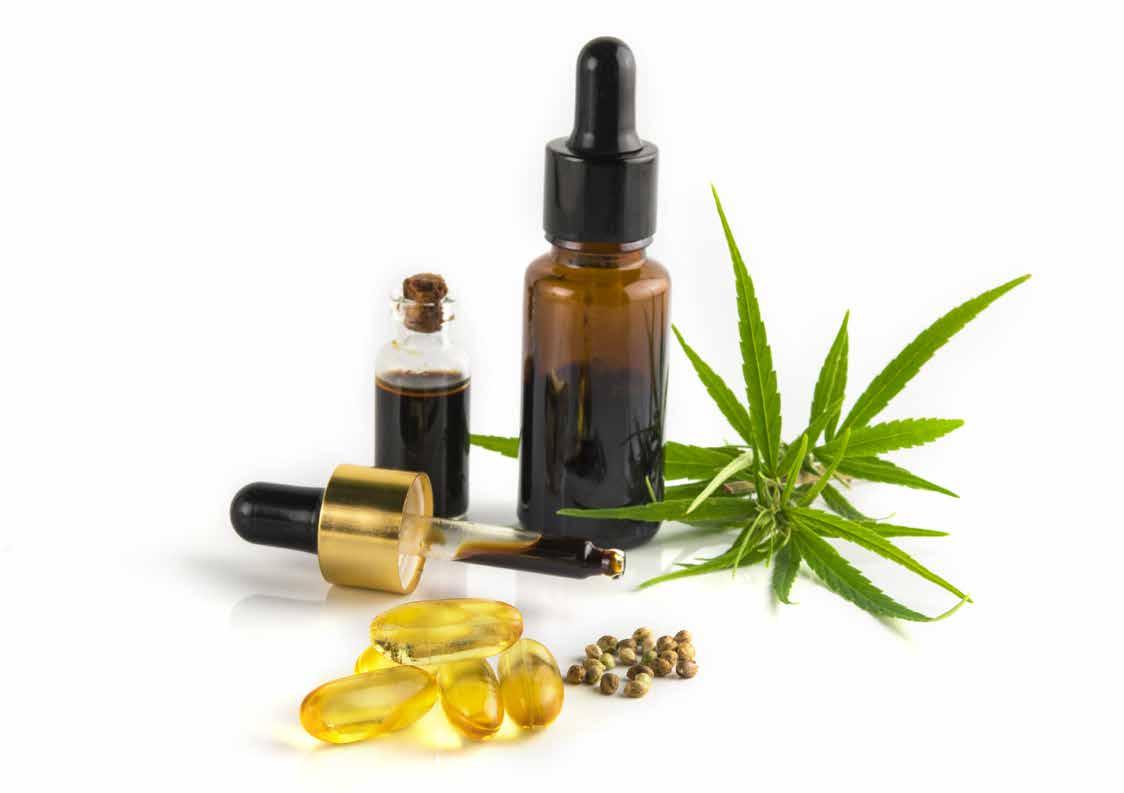

of street homelessness. Amy has a long history of activism and cannabis involvement from working in dispensaries, women’s shelters and a run for mayor of San Francisco. She has been using her expertise to design projects like free CBD handouts and utilising hempcrete for sleeper cabins. “If you are experiencing homelessness, it’s really important to have some moments where you get to belong in your own body and feel at ease because you are just under constant trauma,” Amy tells.
“A guy that we helped to get a cabin had been on the streets for over 10 years. He actually helped to build the cabin. He had lost an eye in a stabbing through a tent. When he slept in his cabin, he said it was the first time he could think at night because his mind was having to always be alert.”
She adds, “It was the first time that he got to relax. Imagine carrying that tension with you? Imagine going through that trauma and then having access to something that is healing that someone offers you for free.”
Amy works with American CBD brands that choose to donate products to the project. SFHC recently received thousands of bottles from Hot Leaves after the brand
changed their packaging. While she sees CBD as powerful, she stresses that it is important to address the barriers to access.
“People really appreciate it. I’m not just an advocate for isolated CBD but for the whole plant. It’s easier to deal with CBD distribution at this juncture. It really does help people, but we really need free access to CBD. Let’s start with free access as part of Medicare or Medicaid so that it can be reimbursed over the counter… and people can get access when they need it and treat it like medicine.”

Access to tinctures has also been great for curbing COVID infections according to the activist. COVID-19 meant thinking about how the products were distributed to prevent people from sharing things like pre-rolls. Individually wrapped items or bottles can belong to just one person. “Individually wrapped pre-rolls were key. I was able to give away one per person stressing that this is just for you, don’t share it. People tend to share and that’s part of the culture. That’s why it was nice to have these tinctures too because of the emphasis on individual bottles.”
The hemp-made sleeper cabins are another side to SFHC. There were a number of regulations regarding the cabins which meant hempcrete was a perfect solution. Hempcrete is nontoxic and fire-resistant, something that the local authorities in California were convinced by. It is available in the UK too, but is not yet widely used here.
“One of the issues we kept coming up against with local government was the need for a fire resistant solution, and another goal for us was to identify a non-toxic form of insulation. And that’s where hempcrete came in. It was always a dream for me personally to connect the dots of hemp as a building source and providing stability in housing. The hemp installation is really going to get us to a place where we have these fire-resistant structures.”
Amy is excited by the plans for the year and expects to be able to show and tell with the first hemp-based sleeper cabins ready by summer. All the while she continues to advocate for free access to CBD products, saying, “We are working on building a case that there needs to be access through Medicare or Medicaid.”
Shelter UK estimates that 280,000 people were homeless in 2019

At least 1 in every 52 people in London are without accommodation. Rough sleeper counts show that over 4,000 people sleep rough on any given night.
1 in 3 low-earning renters are having to borrow money to pay their rent. 800,000 people who are renting in the UK can’t afford to save just £10 a month.

“It really does help people, but we really need free access to CBD. Let’s start with free access so that it can be reimbursed over the counter.”

It’s a tough time for farmers in the UK and Ireland. We ask if hemp could offer some hope for farmers in the coming seasons.
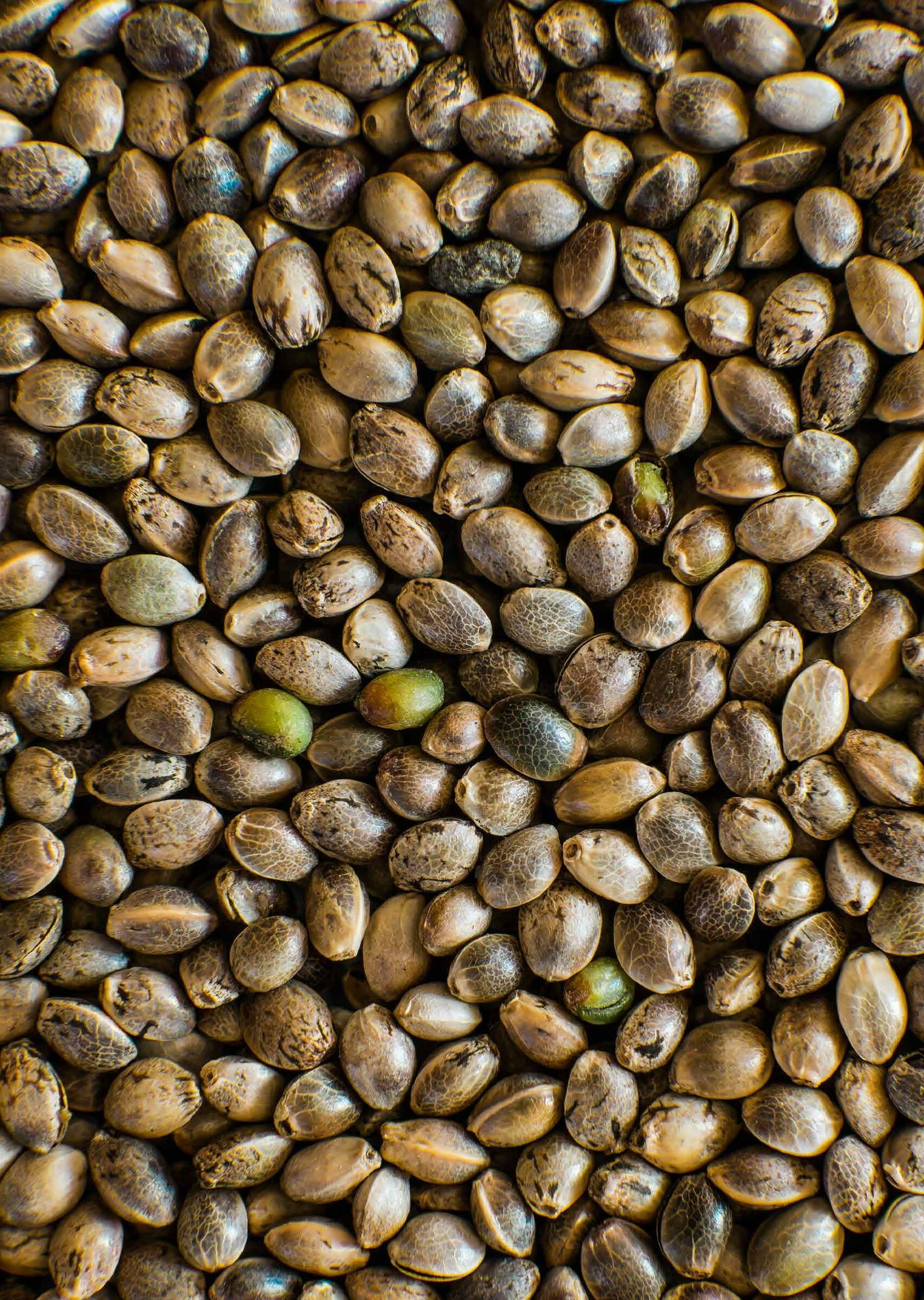 Words by Caroline Barry
Words by Caroline Barry
Paul Walsh, co-founder of Irish brand Greenheart CBD, has been helping farmers all over the world get into the hemp game. He explains the difficulties the agricultural sector faces, but says Irish farmers are ready for a new market. “We are still in lockdown here and growing last season wasn’t great across the board, so the industry is uncertain at the moment. A lot of crops didn’t do well due to the weather as the seeds failed to germinate. However, there is still a lot of hope in Irish farmers as the industry growing fast.”
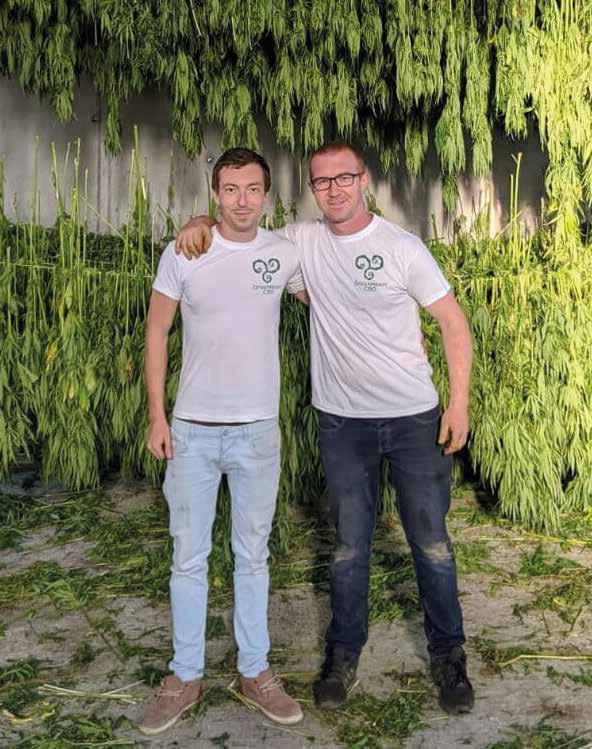
COVID has forced many to consider other forms of farming now more than ever.
“With COVID, a lot of farmers have it tough, so they have to move into different industries to make new income. I believe a lot of farmers are going to move into hemp.”
Although Irish farming is more associated with cattle and dairy, Paul says farmers are open to hemp despite stigma. “Farmers are definitely more open. After we appeared on TV, thousands of farmers contacted us looking to get into the industry as they can
see it’s a cash crop. The thing is, the infrastructure needs to be built first because there is no point in farmers jumping into hemp, trying to sell a crop where there is no market or infrastructure established.”
In Ireland, farms need to be organic before moving into CBD. The low numbers of organic farming establishments could mean that CBD production remains low for now. “There are very few organic farms in Ireland, it’s only 1% at the moment,” Paul explains. “We are one of the lowest in Europe, which I couldn’t believe. That’s because a lot of farmers went into wheat production and used chemicals back in the day. This destroyed a lot of Irish farms. There are incentives to get farmers to go back to organic. I think we will start to see farmers begin to transition back because organic is where the prices are holding.”
While there are incentives to return to organic farming in place, there is nothing to encourage hemp cultivation. The Irish government considered planting in boglands to reduce traditional turf cutting and help lower carbon emissions, but this was abandoned after a feasibility study.
Instead, it was decided to re-wet the bogs to save hundreds of jobs. Although hemp enthusiasts will say that cannabis farming could have also created more jobs. In contrast to this, across the Atlantic the US Farm Bill has led to the creation of thousands of jobs and the repurposing of tobacco fields
With COVID, a lot of farmers have it tough, so they have to move into different industries to make new income. I believe a lot of farmers are going to move into hemp
“ “
It’s been a difficult time for farmers in the UK and Ireland between produce prices, Brexit and the pandemic. Far from giving up, some are turning to hemp for a little bit of hope.
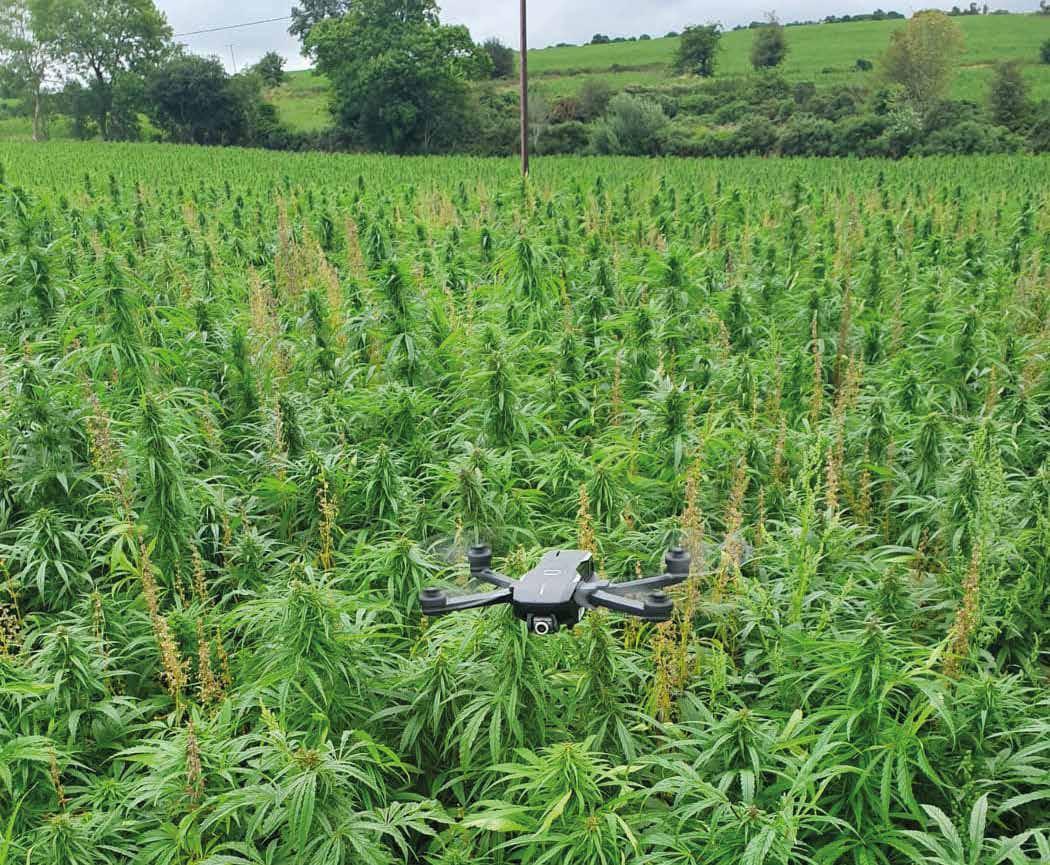
It is legal to grow hemp in Ireland once you have a license from the Health Products Regulatory Authority (HPRA). However, the seeds must be EU-certified and contain less than 0.02% THC.
Special licenses are reserved by the Minister for Health, currently Stephen Donnelly, for medical cannabis.
to cannabis farms. According to a recent report by Leafly, at least 321,000 full time jobs are currently supported by the cannabis industry.
The key to inciting farmers to grow hemp could lie in encouraging the production of environmentally conscious plastics, hempcrete, biofuels and animal feed alternatives. With Irish construction due to increase 15% in 2021, Paul thinks hemp building materials have potential.
Karl Pattemore has been involved in the hemp and CBD space for five years. He is partnering with Greenheart CBD to make products in the UK. He says there are few hemp farms still because of the law. “There isn’t much hemp farming happening in the UK because it's illegal to grow hemp here for things like CBD. You can only grow it for things like rope and there are few licenses here. I live in Somerset and anyone here who has attempted to farm hemp has had to destroy their crops.”
Karl says he envisages the Home Office laws changing where hemp is concerned. “It will change as the market is opening up worldwide, not just with CBD but THC too. It’s a matter of time for us as long as it's controlled and taxed. It could be within the next five years. When it comes to cultivation, if you look at the bare economics of it then it's extraordinary. It’s much better than any current crop a farmer could grow. The margins are astonishing.”
“There are lots of companies looking at hempcrete. It’s fireproof, carbon neutral, soil safe and can be mass produced. It could be a major competitor on the market. I see a major industry boom when it comes to building materials. Farmers are used to growing barley or wheat that needs bailing and selling. This is a more normalised world to them and hemp insulation is a similar process.”
Karl mentions that biofuel and hemp building industries could increases in the UK too, with the drive for more companies to lower carbon emissions. “I’m involved with the biofuel industry in the UK. It can be used to make money by reclaiming carbon.
I believe going forward that it will be used in building material too. There are no waste products either, which is another great thing about it. You can make bricks, fire logs and all sorts of things from hemp after it’s been pressed.”
A quick guide to hemp farming in
Hemp cultivation is legal in the UK with a license. These are granted by the Home Office allowing a holder to grow a controlled substance.
The license costs vary and must give the location and size of the farm before stating the type of seed used.
The seeds must be EU-approved and contain less than 0.02% THC, as in Ireland. The stalks and seeds can be separated for use in cosmetics and building materials however this makes the rest a controlled substance again.
Leaves and flowers have to be destroyed meaning that CBD cannot be extracted on British soil.
What could this mean for British farmers?
Pelvic pain is known to affect 1 in 5 women during and after pregnancy. We speak to one woman who says CBD has helped on her road to recovery.
Words by Caroline BarrySymphysis Pubis Dysfunction (SPD) is a condition that can cause debilitating pain in the pelvic region during pregnancy. While it normally clears up after birth, there are some cases where the pain can remain. The ligaments that keep the pelvic bone aligned during pregnancy, become too relaxed and stretched. Experts say this is due to the release of a hormone called relaxin.
Kelly Tweedle developed the long form of the condition during her second pregnancy. She developed SPD after just three months and ended up on crutches. The condition continued and ultimately caused her to live with pain for nine years
Kelly explains that her doctors offered her physiotherapy as a way to help manage the pain. Physio is said to help to relieve or ease the pain, improve muscle function and pelvic joint position. But it wasn’t until the country was plunged into lockdown that she began researching other potential aids, supplements like CBD.
“When I was pregnant with my second child, he had a lot of health problems early on. They referred
me to a physiotherapist for the pain which didn’t do a lot at all. They also gave me a belt to wear around my hips which didn’t help either. So, I ended up on crutches from three months then they diagnosed symphysis pubis disorder. I had the crutches for a long time.”
According to information from the NHS, this type of pain is not always limited to the pelvis, it can also venture into the hips, the lower back and upper legs. Although it doesn’t happen to every woman who gives birth, the NHS estimates that 1 in 5 suffer with the condition.
It is thought to clear up after pregnancy in many cases, but Kelly went on to suffer with the pain for almost a decade her son was born. “Although it normally fades, it can flare up again afterwards. It’s because your joints loosen and slacken off during pregnancy,” she explains.
“It tends to be happen to women who are having a second or third child. I didn’t have any symptoms with my first but then with my second child, it came on pretty quickly. I used to have quite a bit of bad pain for years.”
Kelly says she discovered CBD a few years after her son was born, when
it was recommended by a relative. Although initially hesitant, she decided to try it after becoming fed up of the years of treatments that hadn’t offered her any solution.
“One of my cousins kept sharing information about CBD on her Instagram page. I always thought CBD was a drug. I kept seeing it around shops all of the time but I never thought about trying it.”
Kelly decided to give it a try and to her surprise she started to notice improvements. “I noticed a difference after about three weeks. I didn’t have any pain at all. I came off it over Christmas for a while however it started to come back. It wasn’t instant but it started to creep back in. I was experiencing pain again, so I quickly went back onto it.”
Kelly also noticed a difference to her sleep patterns during lockdown after she started working from home. “I take a few drops of CBD one to two times a day. I used to only take it once a day in the morning, but I’ve been working from home since December. I found I wasn’t sleeping very well so I started taking a few drops before I go to bed and it has really helped me to sleep.”
Now that her pain has subsided, the mum of two has been able to take up running which had previously been too painful to sustain.
“I took up the Couch to 5k challenge in the first lockdown. I would run around my garden and although I would be able to feel the pain I would just persevere. However, the next day I would be in agony so I had to stop because of that. That’s when I started taking the oil. Now I can do 25 minute runs which is amazing because a few weeks ago I couldn’t run very far.”
While there are no known studies or data to prove the effects of CBD on Kelly’s condition, there is evidence to suggest CBD does in fact help with pain management. A review which examined studies on the cannabinoid from 1975 to 2018 found that it could be effective pain relief for cancer, neuropathic and fibromyalgia pain.
While Kelly tried CBD long after her children were born, others should be aware that the Food Standards Agency advises against expectant or breastfeeding mothers from consuming any product which contains CBD.

I didn’t have any symptoms with my first but then with my second child, it came on pretty quickly.
I used to have quite a bit of bad pain for years
“
“
The opioid epidemic has ravaged America, will millions of Americans unable to escape the grip of addiction. Researchers in both the US and Europe are now looking at one treatment that could get right to the root of the issue and weed it out for good. We’re not talking about cannabis on this one. This time, it’s something called Ibogaine.
Words by Gordon StriblingIbogaine may be less well-known than magic mushroom drug psilocybin – it’s certainly harder to come by. But it is considered to be one of the most promising substances being explored by the psychedelic research community.
Ibogaine is extracted from the root bark of the Iboga tree – a rainforest shrub native to West Africa. The psychoactivity of iboga root was discovered by Pygmy tribes of Central Africa. It was eventually brought to France by explorers, where it was marketed as Lambarene, which was ‘indicated in cases of depression, asthenia, in convalescence, infectious disease, [and] greater than normal physical or mental efforts by healthy individuals.’
Ibogaine-containing preparations of the iboga root continues to be used among practitioners of the spiritual traditions of the Bwiti for medical and ritualistic purposes.
Ibogaine has shown promise as a treatment for opioid addiction and the alleviation of opioid withdrawal symptoms.
After ingesting the substance, participants typically experience three trip phases.
The first is a ‘visionary’ phase, which is said to last four-to-six hours. This is often compared to being in a lucid dream state, and anecdotal reports describe revisiting life events that led the person to become addicted to drugs.
In the introspective phase (8-20 hours), a therapeutic effect is said to empower the individual’s understanding and then confront and overcome the thoughts and fears that lead to and trigger their addiction.
During the residual stimulation phase (from 24-72 hours), the individual returns to the external environment where they start to plan out how to integrate the learned experience into their lives ahead and stay free from drugs.
American scientist Harold Lostof conducted the first study into the use of ibogaine for heroin and cocaine addiction in 1962. The drug would eventually be patented for treating heroin addiction in 1985 after psychedelic research had been stunted for political reasons in the preceding decades. Despite its promise, we are only now seeing the wider pharmaceutical and medical communities get on board, perhaps thanks to the ongoing crisis of America’s opioid epidemic.
In March, US pharmaceutical development company DemeRX received approval from the UK’s Medicines and Healthcare Regulatory Agency (MHRA) to begin enrolment for a clinical trial of its ibogaine drug, DMX-1002.
The first phase of the trial will be conducted at MAC Clinical Research in Manchester. This will evaluate the safety profile and any potential adverse effects of DMX1002. The MHRA will then review the human safety data and nonclinical study results before giving the go ahead to conduct trials on
opioid-dependent patients.
Srinivas Rao, Chief Scientific Officer and co-founder of atai Life Sciences, said:
"Current treatment options are not highly effective; approximately 75% of patients undergoing Opioid Use Disorder therapy experience relapse within one year of treatment.
"This approval allows DemeRx to initiate this well-designed protocol to advance our understanding of how DMX-1002 may provide patients with a potentially transformative therapy, where currently the industry has developed few treatment solutions."
Ibogaine is not specified by name within the UK’s Misuse of Drugs Act. However, the Psychoactive Substances Act of 2016 made it a criminal offence to import, export, produce, or supply any substance that 'is capable of producing a psychoactive effect in a person who consumes it.’
The MHRA has been contacted for comment regarding the licensing of psychedelics for clinical trials in the UK.
75% of patients undergoing treatment for Opioid Use Disorder experience relapse within one year of treatment
“
“
Research estimates that as many as 64% of amputees experience phantom limb pain, with many finding short-term relief by tricking the brain with the use of mirrors. Now, a fascinating study will explore whether psilocybin could produce a longer-lasting effect.
Words by Gordon StriblingThere is a growing acceptance of psychedelic mushroom component psilocybin as a ‘breakthrough’ treatment for mental health conditions like major depression and PTSD. And now, researchers in the US are exploring whether the psychedelic provided by the drug could ease phantom limb pain.
PLP is the pain an individual can feel from a portion of the body that has been amputated. This condition typically occurs shortly after surgery and can include sensations such as pressure, burning and stabbing. The pain can last for minutes, hours or days at a time.
When an individual looks at a remaining limb in a mirror, it tricks the brain into thinking that the missing limb is moving. By changing the visual cue, the brain creates a different output, reducing or eliminating the pain.
The Psychedelics and Health Research Initiative (PHRI) at UC San Diego has received a $1.3 million grant to explore whether combining mirror therapy with psilocybin could increase this effect.
The PHRI’s story began in 2016, with Jacobs School of Engineering and Qualcomm Institute research scientist, Albert Yu-Min Lin, PhD. After his lower-right leg was amputated following a car accident, Lin endured periods of serious phantom pain.
Lin said: “It was like being in the heart of a trauma all of the time. It was all consuming but coming from a part of the body that literally no longer existed. I was desperate. I felt like I was gasping for air in a pool, looking for relief.”
While recovering from his operation, Lin learned about UC San Diego mirror therapy pioneer, V.S. Ramachandran, and began to experiment on itself. It helped, but
only while the mirror was in place. Due to his academic travels, Lin was aware of how different cultures used plants that produce mindaltering affects and had been given ketamine during surgery. He had also heard of the then-novel idea that it could possibly treat depression.
“My situation seemed similar. I had pain that couldn’t be explained, that must have something to do with my mind’s map of my body being broken. My brain couldn’t quite let go of the idea that the leg wasn’t there anymore, just as some people can’t quite let go of recurring depression or anxiety.”
To test his theory that a psychedelic could augment the affect, he obtained some psilocybin, drove to the desert and hooked up the leg mirror. He then followed and repeated the procedure as normal. Within 45 minutes, it had the desired effect.
“
“The pain was gone. I did handstands. It was a profoundly spiritual moment. My mind had a map of my body and it was experiencing severe feedback issues, but it had to let go of that map through a sort of ‘state of ego death’ in which the psilocybin allowed the mind to reject the old map and create a new one. Now, I occasionally have a jolt of pain, but it’s mostly gone.”
Over the course of the three year clinical trial, 15 amputees experiencing phantom limb pain will be given 25 milligrams of psilocybin on two occasions and 15 given a placebo (niacin aka vitamin b3). Niacin was selected as it produces some of the same physical sensations as psilocybin
but without the ‘trip’ effect.
The participants will make multiple visits to the clinic during the course of the trial where the researchers will assess pain sensations, psychological functioning via magnetic response imaging MRI scan.
James Close is a highly specialised pain physiotherapist at Imperial College and honorary clinical research fellow at Imperial’s Centre for Psychedelic Research. Close’s current work focuses on the potential for psychedelics to help people manage chronic pain.
He told The CANNAVIST:
“Phantom limb pain is a terrible
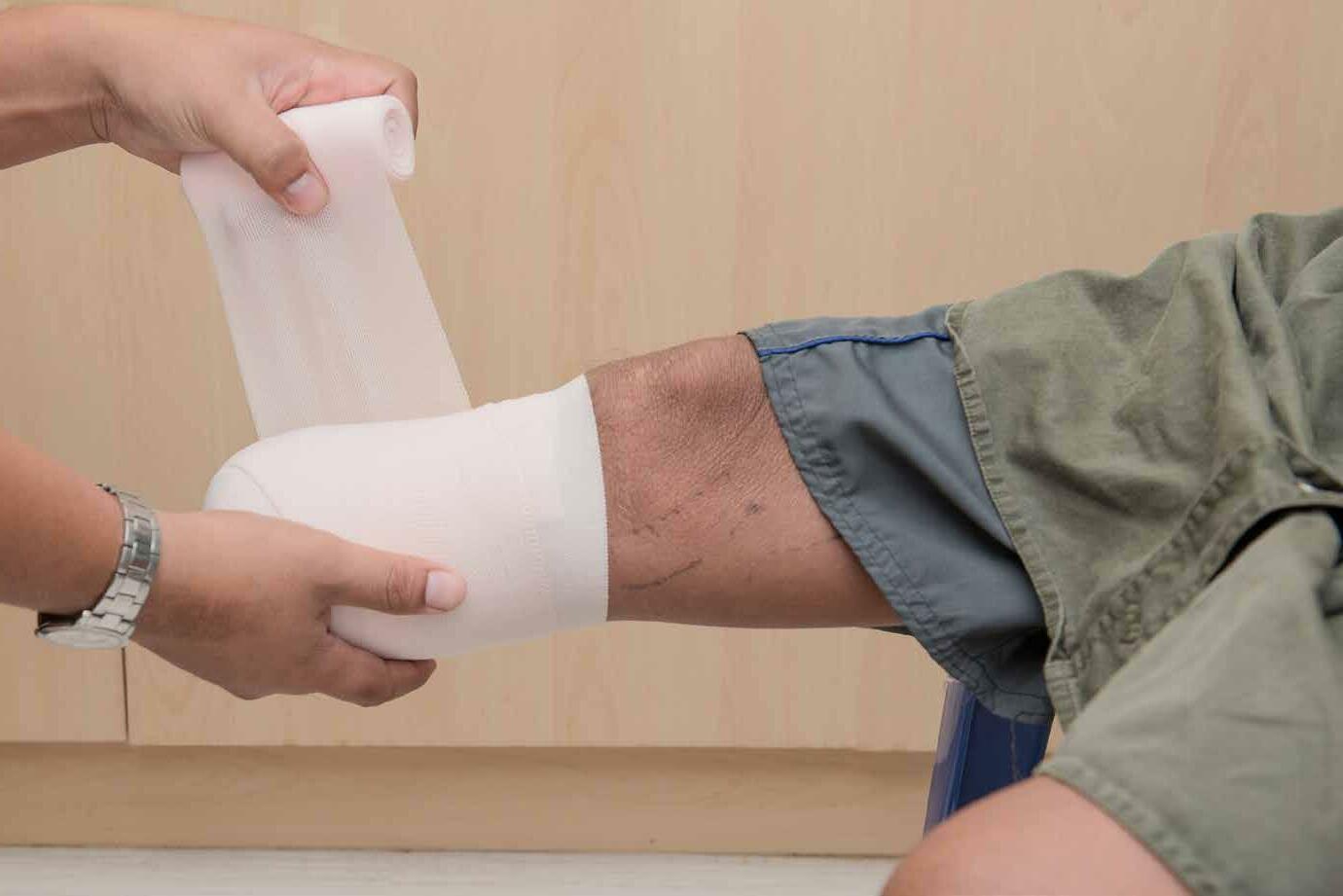
condition and an added burden on a patient group who have already gone through the trauma of amputation. Feeling pain in an extremity that no longer exists is a stark example of how persistent pain is driven by complex changes at a number of neurological and perceptual levels.
“The therapeutic tools for treating this condition focus on harnessing neuroplasticity in the central and peripheral nervous system.
“Psilocybin, in combination with the right therapy, could augment this process, as well as develop the various psychological qualities that people living with pain need in order to live a fulfilled life.”
Now, I occasionally have a jolt of pain, but it’s mostly gone.
New York becomes the fifteenth US state to fully legalise cannabis. Governor Andrew Cuomo believes the move will help ‘right the wrongs of the past’ by providing opportunities to marginalised communities.
Words by Gordon StriblingOn March 31, New York became the fifteenth US state to fully legalise cannabis with the passing of the Marijuana Regulation and Taxation Act (MRTA).

The move was a long time coming. The state legalised medical cannabis in 2014 and decriminalisation to an extent followed in 2019.
Governor Andrew Cuomo made numerous attempts to fully legalise the plant between 2018 and 2021 and the MTRA finally passed in the New York State Assembly by 94-56 votes and in the Senate by 40-23 votes.
Making the announcement, Cuomo said: "This is a historic day in New York – one that rights the wrongs of the past by putting an end to harsh prison sentences, embraces an industry that will grow the Empire State's economy, and prioritises marginalised communities so those that have suffered the most will be the first to reap the benefits."
What does legalisation look like?
The bill establishes the Office of Cannabis Management to implement a new legal framework and expands the state’s existing medical cannabis and cannabinoid hemp programmes.
The legislation was brought in to help “create a social and economic equity programme to assist individuals disproportionately impacted by cannabis enforcement that
want to participate in the industry.”
Under the new legislation, adults aged 21 and above can possess up to three ounces of cannabis flower and 24 grams of concentrate. Adults are also permitted to cultivate three cannabis plants or six per household. Cannabis delivery services are allowed too, as are ‘consumption sites’.
However, alcohol will not be permitted at these locations. Previous cannabis convictions issued for offences now legal under the new law are to be expunged. The MRTA will add a 13% tax to retail sales to go to the New York State cannabis revenue fund, with the remainder split between education, the Community Grants Reinvestment Fund and the Drug Treatment and Public Education Fund.
The governor’s office estimates that the programme will generate $350m in tax revenue every year.
A similar bill was approved in Virginia on the same day as New York’s landmark vote. From July 1, adults aged 21 and above will be allowed to possess up to an ounce of cannabis and cultivate up to four plants per household.The bill was originally slated to become law on January 1, 2024 but advocates successfully argued that “kicking the can down the road has the effect of continued over-policing people of colour.”

Those that have suffered the most will be the first to reap the benefits
“ “
Restorative slow-release 100% natural Huna CBD Derma Patches. Dermatologically tested. Available in 10mg and 15mg.
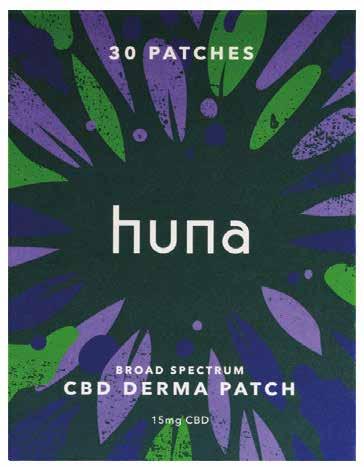
T OP IC
From soothing balms to nourishing hand creams we have the CBD treatment your skin deserves.







For mind, body and soul Huna offers 5 oils with a soothing blend of hemp extract, fractionated coconut oil and a key blend of botanicals for targeted relief and to keep you feeling yourself.


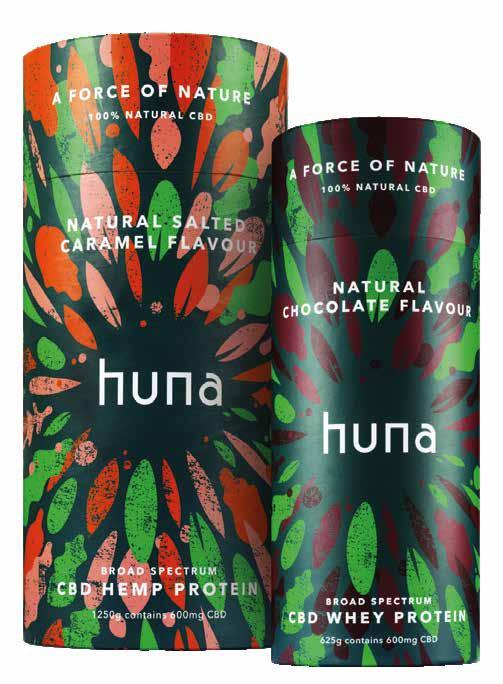
Huna offers four delicious proteins to support recovery and build muscle.
CBD whey protein and recovery formula available in natural chocolate flavour. CBD hemp protein and mass gainer available in natural salted caramel flavour.

Our beautifully pure and calming drops are perfect for when life’s putting you to the test and you need some extra help from mother nature.
Available strengths; 6%, 12%, 18%, 26%
CAP SULE S
Try our fantastically convenient 100% natural Huna CBD in easy to swallow, soft capsules. Incredibly simple to take with a pre-measured dose. Ideal for carrying in your bag.
Available in 30 and 60 capsule packs.
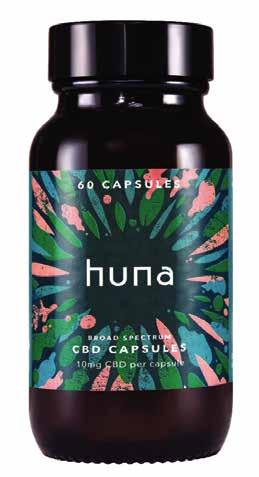
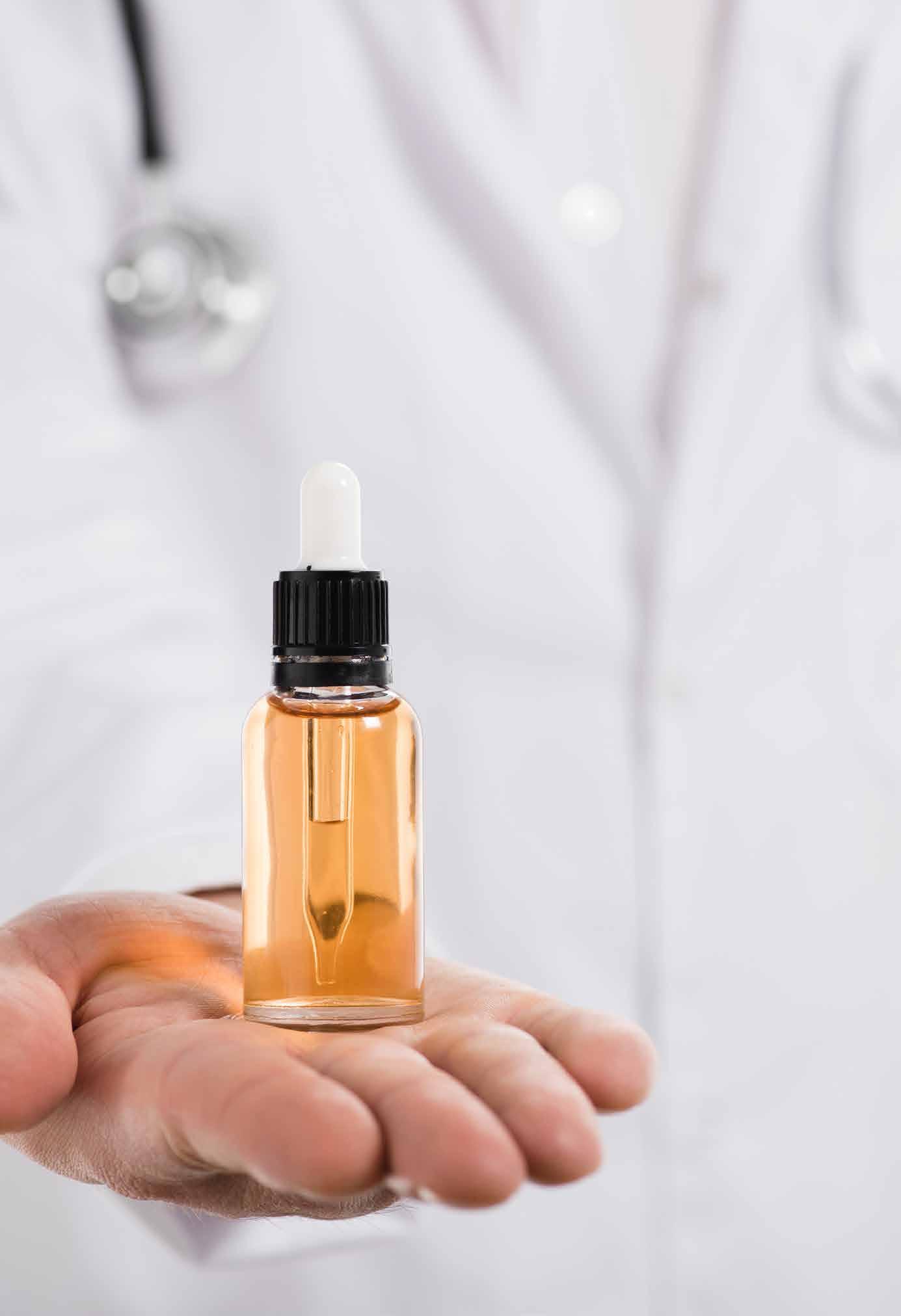
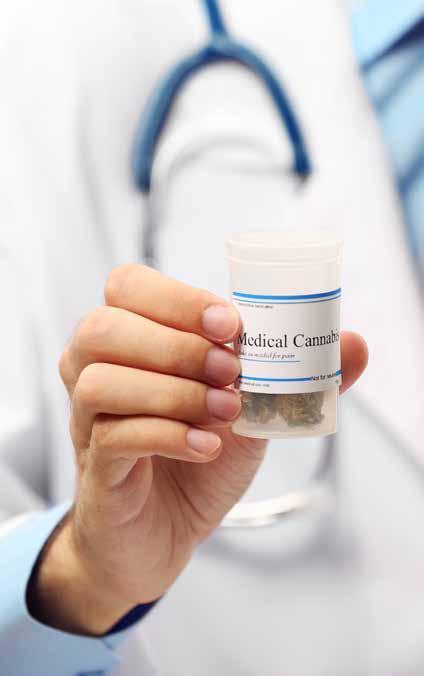
Wherever you are located, many medical cannabis specialists are hosting consultancies via telemedicine.
Where: London
About: Integro Medical Clinic provides patient centric high-quality medical care. Their aim is to prescribe appropriate licensed or unlicensed medicine which includes cannabis medicines to patients. integroclinics.com
Where: London
About: Sapphire Medical Clinics enable access to medicinal cannabis for patients and provide telemedicine consultation with expert doctors. Sapphire is also the first British clinic to offer cut price medical cannabis prescriptions.
sapphireclinics.com
Where: London and Manchester
About: The Medical Cannabis Clinics offer innovative cannabis-based therapies for a range of people living with chronic and debilitating conditions when previous treatments have failed. themedicalcannabisclinics.com
Where: London and Online
About: The first 100% online medical cannabis service in the UK proving better access to their prescribers.
cannabisaccessclinics.co.uk
Where: London, Birmingham, Bristol, Leeds, Liverpool and Manchester
About: My Access Clinics offer affordable specialist care for people suffering from debilitating and chronic conditions across England.
myaccessclinics.co.uk
Where: Solihull Health Check Clinic, Solihull
About: One of the only medical cannabis consultancies in the Midlands, this purpose-built clinic is situated in the beautiful village of Dickens Heath outside Birmingham.
solihullhealthcheckclinic.co.uk
Where: Jersey, Guernsey and the Isle of Man
About: Until now, patients on the Channel Islands have had to appeal to doctors on the UK mainland to get a prescription. Both they and the cannabis company would have to then apply for importexport licenses. It is hoped the establishment of on-island facilities like this will make access to medical cannabis a lot easier. medicann.co.uk
INTEGRO CLINIC
SAPPHIRE MEDICAL CLINIC
THE MEDICAL CANNABIS CLINIC
CANNABIS ACCESS CLINIC MY ACCESS CLINICS
SOLIHULL CANNABIS CLINIC MEDICANN
Medical cannabis cards MedCannID and Cancard are helping to legitimise cannabis medicine in the UK. We take a closer look at the benefits to help you decide which card is right for you.
 Words by Gordon Stribling
Words by Gordon Stribling
Up to 1.4 million people were self-medicating with cannabis in the UK in 2019, according to a YouGov survey. The findings were published a year after medical cannabis was legalised, shining a light on the fact that only a handful of patients were benefiting at the time from the milestone. More than a year on and things are looking a lot more hopeful. Medical cannabis costs have dropped significantly, making it more accessible than ever.
But how can you prove that you have a valid prescription, and what if you don’t?
There are a number of cannabis card schemes in the UK with MedCannID and Cancard leading the charge.
Whether you have a prescription or not, signing up to a medical cannabis card scheme can provide you with some level of protection should you be stopped by the police or be involved in a dispute. However, it is important to remember that these are not ‘get out of jail free’ cards.
MedCannID is a tamper-proof cannabis card for patients who have been legally prescribed medical cannabis.
The card validates the holder’s prescription status and can be used in interactions with the police, as well as in communication with landlords, employers and so on.
MedCannID cardholders also have access to pre-legal advice to support them in case of unlawful arrest, as well as access to a medical cannabis patient group, the largest of its kind for legal patients.

An accompanying app acts as a ‘central hub’ for patients and holders where they can upload copies of their prescription documents to further validate their legal status.
In March, the scheme received the backing of digital prescription service, Dispensary Green.
Dispensary Green patients are supported in signing up to the scheme as soon as their medication has been sent.
Free (Renewed Annually)
You must register and verify your identity using the MedCannID app.
You can then either upload a copy of your prescription or send it in the post.
Medcannid.com
Cancard is a holographic ID card for individuals who self-medicate with cannabis. Possession of a valid Cancard demonstrates that the cardholder uses cannabis for a medical reason.
Cancard does not grant the holder a legal right to possess cannabis. Rather, it proves that they are entitled to receive a medical cannabis prescription but are unable to afford one. This can be used as a mitigating factor when the Crown Prosecution Service decides whether to prosecute an individual for possession of a controlled drug.
Cancard and the accompanying app also come with a stop and search guide, helpline and resources to support your defence if you are stopped by police.
Cancard is backed by the Police Federation of England and Wales and the National Police Chiefs Council (NPCC). Initial figures show that 94% of Cancard holders stopped by police in the first three months of the scheme faced no further action.
£20 a year plus a one off £10 admin fee
Apply via the app using your passport or driver’s license, NHS number, GP details and Summary Care Record.
Cancard.co.uk
Government officials on the Isle of Man have said that while plans to grow for export are moving ahead, islanders will not be able to access medical cannabis any time soon.
Words by Caroline BarryA spokesperson for the Department of Enterprise on the Isle of Man has clarified that COVID-19 has not delayed the roll out of plans to cultivate and export cannabis for the first time.
The clarification has been made to The CANNAVIST following reports that the initiative is ‘not a priority’ due to the pandemic.
A spokesperson has also confirmed that islanders won’t be able to access medical cannabis grown locally in the foreseeable future, but says the concept of GPs issuing cannabis prescriptions is still possible. The representative said they have ‘not ruled out considering future legislation’ to do so.
Health Minister, David Ashford, sparked concerns in April when he commented that the pressure of dealing with COVID-19 meant that the legislation for the cultivation and exportation arm could be delayed.
He said: “With everything else that DHSC is doing at the moment, we are absolutely stretched to the hilt so something has to give, or the department will give. To be quite blunt, there are other things taking a higher priority.”
A spokesperson for the Department for Enterprise has since said there will be no delay to the plans already in place. “I can confirm that we have not delayed any licensing that has been planned. A regulator has been appointed and they are currently in the process of producing detailed guidance for the growth and processing of cannabis products. This will provide the foundation to support production for the 2021 season and should be available within the coming weeks.”
The DoE has received ‘a considerable amount of interest’ from prospective growers and plans to establish a high-THC
growth category in the next year.
“For the high-THC market, we anticipate accepting license applications in the first quarter of the 2021-22 financial year. The current licensing structure that has been developed is primarily focused on progressing the sector for export, and not for on-island use of cannabis for medicinal reasons.”
The island voted overwhelmingly in support of cannabis reform at a public consultation in 2019. The consultation recorded 95% in favour of overturning current legislation but 65% called for age restrictions. The island does not have to consult with Westminster officials before announcing the new legislation.
The Isle of Man, which lies 190 miles west of Great Britain, currently has a population of 85,000. The introduction of these plans means that businesses may apply for a license if they live and work on the island.
“
For the high-THC market, we anticipate accepting license applications in the first quarter of the 2021-22 financial year.

Medical cannabis has become increasingly normalised since legalisation, the expansion of private clinics and the drop in prescription costs. And for many people, the path to obtaining a legal prescription stretches much further back than that momentous day in November 2018.
Husband and wife Simon Clare and Chana Mills live in Edgeware, London. Both rely on prescribed medical cannabis to help manage their pain.
“I'd always used cannabis recreationally. I started to notice that it gave me a freedom of movement and softened the pain,” explains Simon, whose chronic pain stems from an injury sustained during a house move.
“It didn't take it away completely, which was, in my opinion, safer, because when I was taking all these other painkillers, and I had no knee pain, I forgot that I had a problem with my knee and I ended up falling over.
“When [medicinal] cannabis became legal, I couldn't see myself affording the prices but then Project Twenty21 changed everything.”
Both Simon and Chana are now on the scheme, with Chana’s prescription down from £240 per month pre-T21 to £150 currently. There’s little doubt that better access and reduced costs have
improved their situation, but the process has not been without its problems.
Chana is prescribed cannabis for her chronic back pain from a car accident. She also suffers with fibroids and adenomyosis in her uterus. In trying to get the right medicine to manage her pain, she and carer Simon have had to fight with the clinics, first to obtain flower over oil and now over the medicine to do the job.
relaxes my body. I'm not tense from the pain. But with the quality of the stuff that we're getting, it just takes the edge off.”
Nonetheless, the couple is grateful to finally have legal access to cannabis medicine. Now they can medicate with a consistent product and not take any of the risks associated with the black market. “There's no chemicals, there's no fertiliser. It's good to know,” Simon says. “But we need to see the quality go up, or we need both of our scripts to go up.”
Medical cannabis clinics, like the NHS, have had to adapt to the various periods of lockdown. And were it not for the restrictions, countless patients across the country would not have the access that they now do.
Simon adds that the couple would not have been able to use medical cannabis long term if it wasn’t for the accessibility of online appointments.
They’re now both happy as patients of Sapphire Medical, but it’s an ongoing dialogue in a limited marketplace that neither was expecting. The UK still has some catching up to do.
“Gabapentin, I can’t just stop taking that but I’m not on tramadol anymore. I wear a morphine patch every day, but does not cut the pain,” Hannah says.
“I do get that balance where I am able to sleep because the cannabis
With vaccines now helping to bring the pandemic under control, the couple look forward to truly enjoying the freedom that a legal medical cannabis prescription provides. Simon calls it a ‘Golden Ticket’ to carry and use their medicine without being bothered by the police.
“I plan to take my wife on a tour of all the major English Heritage sites, and we will vape at every single one, just spread the word.”
A medical cannabis prescription can be life changing, but it is not always the end of the story. A London couple open up about their battle to get the right cannabis medicine in a limited marketplace.
I started to notice that it gave me a freedom of movement
“ “
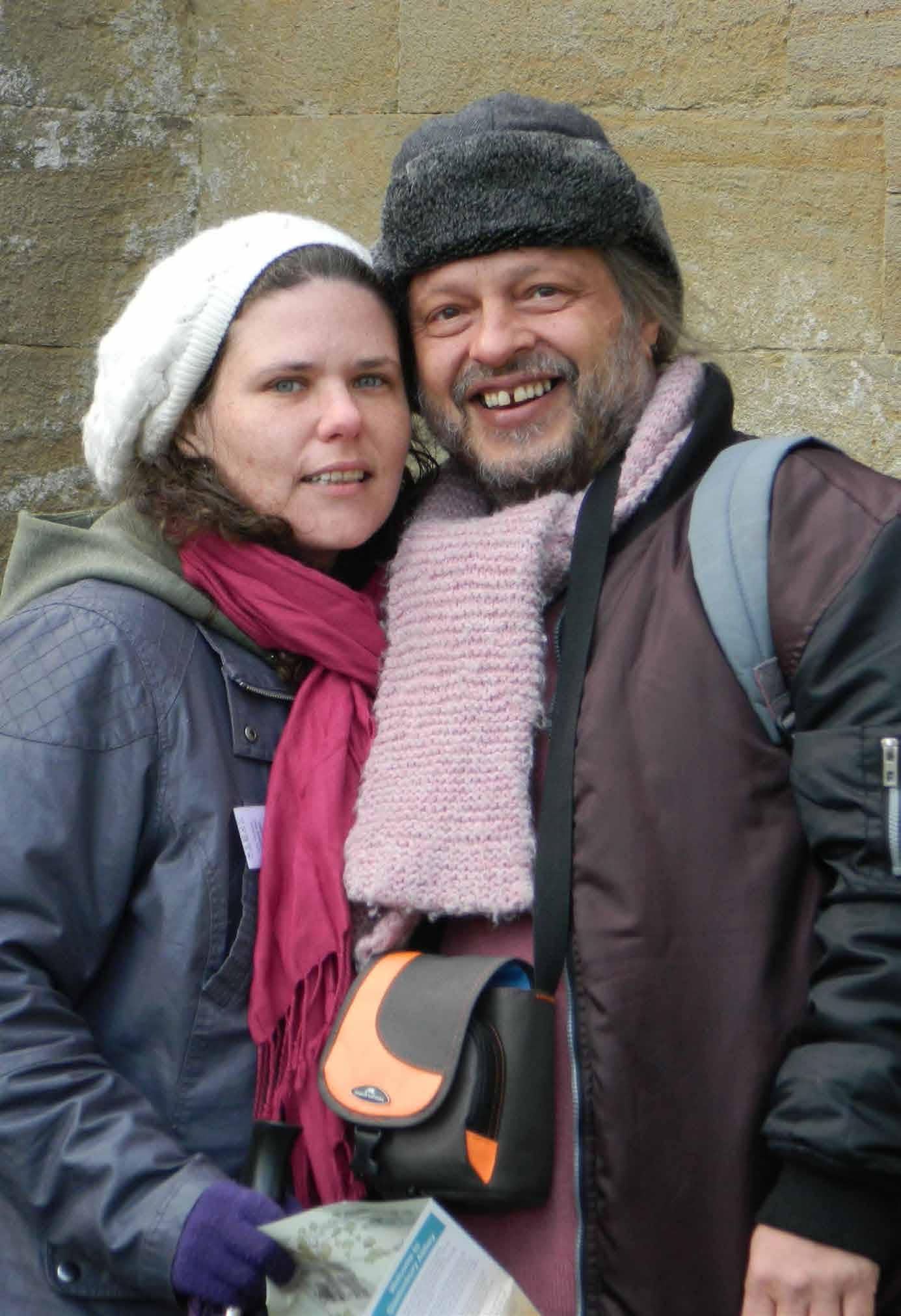
We speak to Cork Cannabis Activist Network founder, Nicole Lonergan, about ending prohibition, legalisation and tweeting health minister Stephen Donnelly.
Words by Caroline Barryannabis activism in Ireland is on the rise.
Inspired by the recent police raids on popular CBD store, Little Collins, a number of high-profile Irish journalists and celebrities have given a voice to the cause.
One of the more active voices is the Cork Cannabis Activist Network, CCAN, a group which has been vocal about the need for legalisation, better laws and safer access. It’s been hard to miss their campaign of daily tweets to health minister Stephen Donnelly over the past 100 days.
Founder Nicole Lonergan has yet to receive a tweet back, but she does believe the public, and politicians, are listening.
“Stephen Donnelly was prompted to allocate funding for the medical cannabis access programme because of the amount of calls and emails he was getting. So when people say, it’s not effective and they are not listening to us, they have to and they kind of are. Many people
are afraid to speak up because of the stigma that is attached to cannabis or they are worried they will lose their jobs. It makes me so sad because these are our rights as humans and we need to live a healthy life. We are being prevented from doing that by our government.”
Nicole set up the network after realising that cannabis was helping with a condition which she suffers from called Trichotillomania.
The condition causes patients to pull their own hair out and it affects the eyelashes, scalp and eyebrows.
“It’s a compulsive need to pull your hair out which is the best way I can describe it,” she says. “A lot of people will pull from their heads but I’m actually an eyelash and eyebrow puller. So, I’ve been wearing make-up pretty much every day since I was 13
which I detest. I wouldn’t wish it on anyone.”
“I’m blessed that I can just get some eyebrow pencil and an eyelash curling mascara to make it seem like I have lashes. It makes me feel very vulnerable speaking about it. All my life it has stopped me from doing things like swimming, music festivals or camping because I don’t like people seeing me without make up on. I’ve tried many other drugs over the years to deal with it but none of them have come close to cannabis.”
Cannabis helps Nicole to deal with the stress which irritates her Trichotillomania.
“It’s about anxiety reduction.
Trichotillomania is a way to relieve stress and is often viewed as a form of self-harm. If you are stressed and have a lot of energy with no way to relieve it then
body automatically
your
“If we are okay with designated recreational drug rooms for alcohol and caffeine, then why are we viewing cannabis any differently.”
reaches to pull your eyelashes out to give you a sense of relief. The burden lifts a bit but then there is a spiral of shame. When I consume cannabis, it eliminates that and brings me back to the present moment.”
Nicole translated this into activism after she realised that nothing was being done to bring in a safe, easily accessible system in Ireland despite the number of cannabis users. “I started with a little Instagram page but over the years, it became so much bigger than that. It wasn’t just me sharing my experience, but I got people messaging me to say thank you for speaking up. It started to hit home that it wasn’t just me being affected by prohibition. It became a mission because I’m stubborn. I wanted to keep going and give people a platform to speak up and encourage others. I’m doing this because I’m stubborn and I’m fed up of the laws here.”
The feedback to CCAN has been positive and immediate. “It’s been really overwhelmingly positive. You do get a few nasty comments from people but that’s to be expected with anything you throw your hand to. I’m stubborn and I recognise that it’s the right thing to do. More harm is being caused by keeping cannabis illegal.”
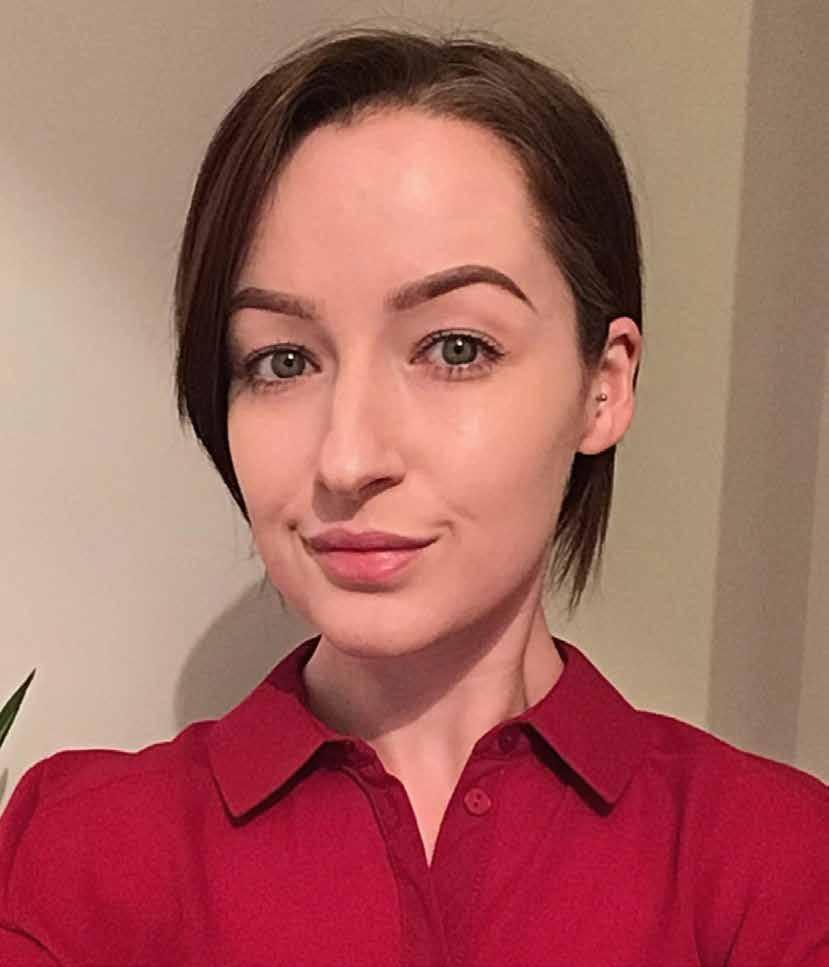
“It’s nice to see there is more engagement
now and that this isn’t an issue being brushed over by TDs. They are willing to engage now. I’m proud to have created that platform off my own initiative. I’m quite proud of it.”
Nicole explains that Ireland will need to change how it views cannabis and end prohibition. “This is a plant that grows naturally on earth and has done for thousands of years. If we are okay with designated recreational drug rooms for alcohol and caffeine, then why are we viewing cannabis any differently? It comes down to misinformation that’s prevailed over decades. It is a shame because those who consume cannabis in Ireland are not benefitting from prohibition, so we need to look at it differently.”
Her home-grown activism has also led further afield too. Nicole is part of the European Cannabis Advocacy Network (ECAN) which has provided a platform for activists to unite. “We have monthly meetings between different people around Europe. We give each other the respective updates in our own countries. At the end of the month, there is a report compiled of all the updates which is so useful. It helps us to stay linked in, support each other and share our projects or initiatives.”

bespoke communications network for European cannabis advocates to stay connected and increase momentum for reform.

A platform for advocates to voice their expertise.
If you are an organisation or individual focused on European cannabis reform GET IN TOUCH for more information to join the network or to feature on the podcast.




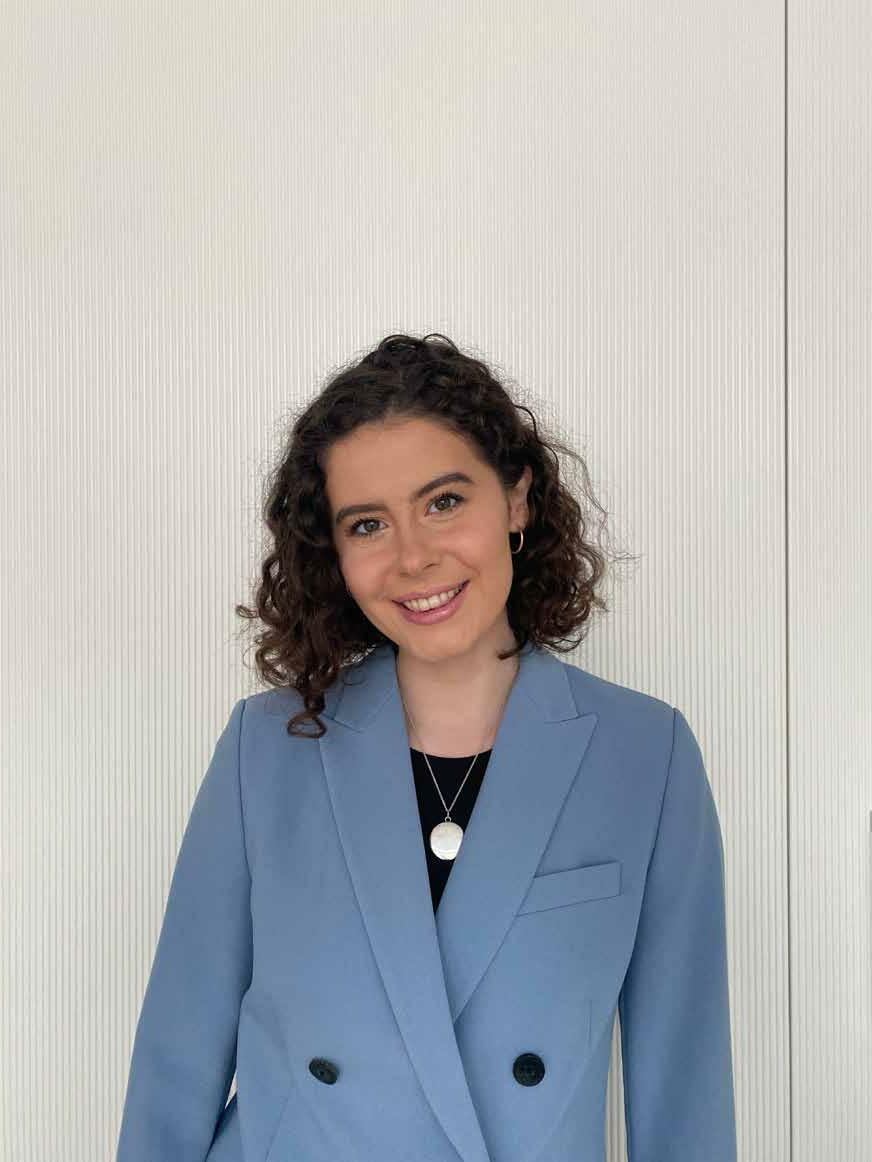



Anational charity, whose patron is HRH the Prince of Wales, is to endorse the use of medical cannabis for the first time.
BackCare UK, the national back pain association, has teamed up with Integro Medical Clinics, a private cannabis clinic based in London, to boost learning around the potential in cannabis therapies for pain management.
The organisation has been running since 1968, and its patron is Prince Charles. The network provides practical and emotional support to people living with back pain through education, information, advice and a network of UK-based branches.
With the help of Integro Medical Clinics, the association will host a webinar in late May to explore the many uses of cannabis medicines to help chronic back pain with a panel of specialists.
Anyone interested in attending the webinar can do so, by visiting backcare.org.uk for more information.
Denice Logan Rose, Executive Director, BackCare UK says the charity is looking forward to providing more information on cannabis medicines.
“It’s going to be a fascinating event that will be of interest to every back
pain sufferer, who finds their pain needs not being met by traditional medicines and care givers involved in the field.
“It is really worth considering prescription cannabis medicines, when conventional approaches to pain have failed and in the case of back pain, cannabis is widely acknowledged to be extremely helpful in providing relief and allowing patients to better maintain their normal lives and activities.”
According to collaborative research from Arthritis Research UK and Imperial College London, 1 in 6 people in England suffer from some form of back pain. The research also suggests that low back pain is the leading cause of disability in the UK. Arthritis Research UK says, “This translates into millions of lost working days, with back pain being responsible for £10 billion of indirect costs each year.”

With cases of Long Covid on the rise, a new study plans to investigate if medical cannabis could offer a solution.
Words by Caroline BarryFollowing rising cases, hospitalisations and deaths month-on-month, with a turbulent vaccine roll out coinciding, we find ourselves in the spring of 2021, yet we are only starting to deal with the long-term effects of life with Covid. Some of those who suffered with the coronavirus in early 2020 have been reporting ongoing effects long after their recovery.
In November last year, the Office for National Statistics estimated that there were 186,000 people showing persistent symptoms over a period of 12-weeks. This led to the development of NHS Long Covid clinics across the country and a pledge of £18.5 million in research funding from the National Institute of Health and Research (NIHR).
Now, an estimated 1.1 million people have signs of Long Covid. The pressure is onpressure is on to find new ways of coping with the inclusion of Covid in our lives, from vaccines to clinics to aftercare. In this spread, we ask if medical cannabis could form part of the Long Covid recovery?
Ellen had Covid-19 in March 2020. She ended up in intensive care, unable to breathe. She has recovered, but has developed what experts have coined, Long Covid, as she explains.
“I went from being an international athlete to struggling to walk up my stairs in a matter of months. I experience cardiac arrhythmia, chronic migraines, severe fatigue, increased gastric and digestive issues, worsening circulation issues, random intense flares of chronic pain and problems with my eyes. I have always been fiercely independent, and I had to relearn what independence, self-love and
self-care meant to me when I realised, I needed to ask for help.”
“My treatment has consisted of firefighting my symptoms with medications and different specialist referrals. It’s hard, because even after a whole year, it feels like there’s really no end in sight for it.”
Dr Dani Gordon, MD, CCFP, ABOIM is an integrative health specialist from Canada, but in recent years she has set up a base in the UK. She is pro medical cannabis, and she recently announced a study into cannabis for Long Covid. It stemmed from treating patients, when she started to see a crossover between conditions like fibromyalgia and Covid-19
“I've been treating patients with neuropsychiatric clusters of illnesses such as fibromyalgia, Lyme disease and chronic fatigue syndrome for over a decade. For years, many doctors thought they were all psychological, they are very real and physical. These symptoms include fatigue, brain fog, pain that changes all over the body. These are the classic symptoms that we
are seeing in a subgroup of patients with Long Covid.”
She adds: “The publication that we have just submitted has been accepted. It’s a review article where we take what we know from chronic fatigue and fibromyalgia which we can treat with cannabinoids and other nutraceuticals. We look at the potential common mechanisms involving the cell powerhouses, the mitochondria which likely involves brain and body inflammation. We put together what we think will be, potentially, helpful in Covid treatment.”
While it doesn’t seem like there would be any positives to Long Covid, Dani says the discovery of these lingering symptoms has forced the medical community to take other conditions that mirror it more seriously.
“One silver lining of this is that the medical community is finally taking the symptoms seriously. For years, when I would talk to colleagues who weren’t trained in integrative medicine, about fibromyalgia or chronic fatigue, they would always

say it was psychological. Their other response would be graded exercise therapy. This is where you put people on exercise schedules that you increase slowly. We now know these things don’t work. Now doctors are getting Long Covid and saying, these are real symptoms and there is a neurological basis for them. I think we are going to see more research in these areas.”
There have been suggestions that medical cannabis could help with the other on-going physical and mental health effects of Covid-19. In particular where there are cases of Post-Traumatic Stress Disorder (PTSD). Dr Dani says a rise in PTSD numbers as a result of the pandemic is possible.
“I think we are going to see a huge tide of PTSD. I’ve had a lot of healthcare workers, doctors and nurses reach out to ask when we are starting to see patients. I’ve spoken to top surgeons who are very tough, and they have been seeing some pretty grisly stuff for 30 years. They all tell me it was like a war zone. They have never seen anything like it. They are suffering from nightmares, flashbacks and some have had Covid-19. They are developing Long Covid syndrome symptoms like fatigue and brain fog. I think this is going to be the next big healthcare issue we are going to face.”
A Norwegian study from March and April of 2020 revealed that 28% of healthcare workers there now meet the diagnostic criteria for PTSD. This includes symptoms such as sleep issues, nightmares and flashbacks like Dr Dani mentioned.
Rebecca was a district nurse for six months before the early signs of the pandemic started. Her partner, a paramedic was also on the front line of the crisis.
“Throughout the pandemic, my mental health has been up and
down,” Rebecca says. “The pandemic played a big part of this but the understaffing and persistent working with no breaks did too. I was exhausted. I had days where I couldn’t turn the TV or radio on because it was just too much to handle. I had to ask my partner to stop talking about Covid-19 at home because I couldn’t take any more. I needed a safe space from even a thought of the pandemic.”
She adds: “One morning before work I had a panic attack. This was the first time I had experienced anything remotely like this. I couldn’t breathe and my heart was racing. I felt clammy, faint and very emotional. I didn’t know what was happening. I called work
“If you combine these with other psychotherapies, it can be very effective.”
These treatments are usually offered to those who have treatment resistant depression or PTSD, an option only after conventional therapies have been ruled out as ineffective. Many experts say there needs to be therapeutic element to be run alongside these options. A study at Johns Hopkins University showed that two doses of psilocybin combined with therapy revealed rapid decreases in depression. In the following four weeks, more than half of participants showed a further decline.
Dr Dani adds that she and her colleagues are still looking for people to get involved with their
My treatment has consisted of firefighting my symptoms with medications and different specialist referrals. It’s hard, because it feels like there’s really no end in sight for it, a
struggling with my breathing and said I couldn’t come in. I felt like I was letting everyone down but the person I spoke to comforted me. She sounded like she was on the verge of crying with me. I could hear it in her voice.”
It’s not just cannabis that researchers are looking to as a solution. Other alternative therapies such as psilocybin, are also being considered.
Dr Dani highlights that psilocybin, the hallucinogenic compound which is found in mushrooms is showing promise. “Cannabinoids can be a part of a treatment for PTSD but there are also a lot of novel therapeutics such as psilocybin showing great promise.
study. “We’re looking for anyone who is happy to share their experiences. We’ve had a lot of people reach out to say they want to be a case study, but because they had Covid in the first wave, they don’t have a confirmed diagnosis. Another reason will be to assist people who want to get a Cancard for Long Covid syndrome and hopefully get covered by insurance companies.
“The Cancard people are coming up against doctors saying there is no evidence that it works. If we publish something in a journal, then that is something that can help patients access what they need.”
whole year on.
“

Woman who suffers with chronic pain from a ski injury gets back to everyday life thanks to medical cannabis treatment.
Words by Róisín DelaneyJessica Smith is a 51-yearold mother, wife and public relations specialist. Married to husband Neil, Jessica lives with her large family in London and together, they have always enjoyed leading an active lifestyle. Until an injury which resulted in chronic nerve pain.

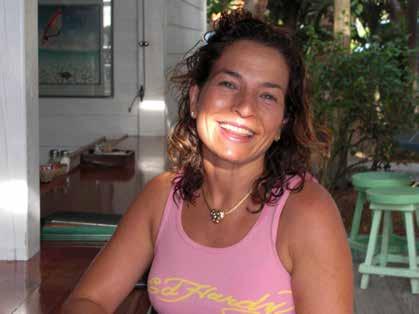
In 2017, the Smiths took a winter ski break in Switzerland – the snowy paradise kind of trip you remember forever. It turned out to be an unforgettable vacation like no other.
In an attempt to keep up with her sons on the slopes, who she says had surpassed her ski skills by this point, Jessica had an accident which knocked her in every sense of the word. She describes ‘seeing stars’ when she came around.
“I remember at the time, my neck flicking backwards and really smacking my head on the ice,” she tells, giving a play-by-play of the day that changed everything.
“I lay there for a minute terrified that I had broken something. I was literally seeing stars and my ears were ringing.
“In the ridiculous way that you do when you fall, I pulled myself up as soon as I could, desperate to find
out if I was still in one piece and I could move everything.”
For the rest of that trip, Jessica played it safe and stayed off the slopes. She recalls feeling stiff and sore but says that by the time she flew home, her symptoms had improved to the point where she was no longer concerned about there being any serious damage.
Maybe she got lucky? Maybe she landed just the right way? Maybe the snow broke the fall? Jessica says she felt pretty much ‘normal and carried on with life as usual’ for the months that followed.
Six months after her fall, Jessica found herself waking at 2am with what she describes as a ‘deep aching pain’ in her neck, not the kind you get from sleeping on a wonky pillow.
She soon discovered the pain
would creep down her left side, and that it had a habit of waking her at precisely that time most nights, resulting in a disrupted daytime routine, an inability to stay as active as she liked, and low mood. Anyone who has experienced nerve pain will know just how awful it can be. Like most of us would in her situation, Jessica turned to painkillers and steroid injections, but she knew neither was a viable solution for the pain, or her overall wellbeing.
“I was quite grumpy and miserable. It definitely affects you. You become quite withdrawn, because when you are in pain, your toleration in dealing with your family is not as good.”
The PR director explains how reliant she became on over-the-counter painkillers.

“I was probably going through a good pack a week. I was conscious that this was not a sustainable thing I was doing. And I also know that if you take too many pain meds like that, they stop working. And that in itself becomes a syndrome that you can get headaches from if you are abusing normal pain meds.”
Husband Neil, a retired banker, embarked on his second career in the cannabis industry two to three years ago. He suggested medical cannabis to his wife. At first, perhaps like many, Jessica wasn’t keen on going down the cannabis path. “At this stage, I had no interest whatsoever. I’ve never been a recreational cannabis smoker.”
It wasn’t until she had a conversation with a pain management specialist who had taken to prescribing medical cannabis that Jessica considered this new option.
Dr Anthony Ordman is a pain doctor held in high esteem across London and beyond. Dr Ordman founded the Royal Free’s Pain Management Service in 1997, which included the highly-regarded Chronic Pain Clinic with a specialist multidisciplinary team designed to help patients like Jessica with pain,
and the associated difficulties it can bring. He also set up the Royal Free Hospital’s Acute Pain Service to help those suffering with postsurgical and trauma pain. Jessica says knowing he was a clinician at Integro Clinic put her mind at ease and encouraged her to give cannabis a chance.
“I knew that Dr Ordman was a very fine doctor and he was at Integro Clinic. I had a chat with him about it and he said yes as soon as he saw my MRIs. He knew my spinal consultant and he also knew the pain consultant who had been injecting me with steroids. I felt very confident once I had discussed it with him that this was certainly worth trying. I totally did it as an empirical experiment.”
“And actually, very much to my surprise, it worked sooner than I had expected. What was really most interesting was how it helped nerve pain.”
These days, Jessica manages her pain in a healthy way, without reaching for the medicine cabinet. She jogs, weight trains, runs a busy household and works. While she can’t push her body to the limits she perhaps could have before the
accident, she has truly found the meaning to a phrase we all know, but perhaps don’t often practice, ‘listen to your body.’
For Jessica, subscribing to medical cannabis means she has a viable, longterm way to manage her pain. She says unlike relying on traditional pain medicines, she can safely carry on taking a carefully measured prescription of CBD:THC oil without any side effects.
“From where I am at the moment, I can just carry on taking the oil, and I have no side effects with it, other than it helps the pain. I’m generally, I would say, more relaxed. It helps with sleeping, I know that when you sleep better, your perception of pain is less because you’re not fatigued. You’re less grumpy.
“I actually I don’t see any downsides to it. And it’s wonderful that I no longer take painkillers. Anything in preference to that! I see absolutely no downside to taking cannabis oil. And I don’t feel ‘stoned’ afterwards. I have no reaction to it other than the fact it helps my pain.”
I see absolutely no downside to taking cannabis oil
“
CBD firms are making further advances into the health and wellness subcategory with new product launches, distribution deals, and clinical studies underway, reports CBD-Intel.
California-based CBD manufacturer CV Sciences has launched a line of clinical strength CBD products that are only available through health practitioners in the US.
It said the products are supported by published investigations, randomised control trials and a post-marketing safety review. They have been created to fit in with existing care plans and come in roll-on, liquid and softgel formulations.
“The use of alternative medicine is becoming increasingly prevalent as consumer preferences continue to shift toward natural, plant-based remedies for a range of medical conditions. We are excited to launch ProCBD and partner with medical professionals seeking science-based, natural alternatives to provide to their patients,” said Joseph Dowling, CEO of CV Sciences.
The Canadian nutraceutical firm NeutriSci International has also been targeting the health and wellness market and is looking to launch its broad-spectrum CBD tablets brand Tabletz in Japan.
It plans to produce and distribute several hundred thousand units of the Tabletz sticks in a number of retail locations in Japan, where NeutriSci says consumers are strong advocates of plant-derived health and wellness products. The company said it had not finalised details of store distribution but
previously it had listed 7-Eleven, K.K. Lawson and Biople as potential Japanese retailers.
“We believe we can attain a significant percentage of the CBD market in Japan. Currently, there is no other product like this on the market,” said NeutriSci CEO Glen Rehman.
And in Europe, the UK’s high street health and wellness chain Holland & Barrett has agreed distribution deals with European CBD and hemp oil products manufacturer Reakiro. It has also expanded its ongoing distribution relationship with World High Life’s Love Hemp brand.
Reakiro’s range of full-spectrum products includes oils, sprays, a raw hemp extract pen, and gel capsules in a broad range of strengths, and will appear in all 737 UK stores and online.
“Holland & Barrett and Reakiro have the same values – to bring the highest quality natural health products to people around the world. We look forward to a productive, long-term partnership with them,” said Reakiro CEO Stuart McKenzie.
Meanwhile, the Australian firm Avecho Biotechnology has joined a medicinal cannabis study that, if successful, it claims could open up the range of CBD products on the market and increase their therapeutic potential.
The company will use the study to gather feedback on how the product performs in patients currently using medicinal cannabis to treat a range of indications. Performance will be compared against commonly prescribed CBD formulations.
If the products’ efficacy is proved on human patients, Avecho believes it could create room for more CBD products on the market at a reduced cost and with greater therapeutic potential.
CBD-Intel provides impartial, independent and premium market and regulatory analysis, legal tracking, and quantitative data for the cannabidiol (CBD) sector worldwide.
We provide our clients with the tools to navigate this fast-moving sector, tailor their business strategy, optimise resources and make informed decisions. In addition, we offer customised research and consultancy support.
magine having a condition where you are in chronic pain, exhausted, yet unable to sleep. The less you sleep, the worse the condition gets…
Fibromyalgia is a painful lifelong painful. Sufferers can report increased pain, extreme tiredness, muscle stiffness and trouble sleeping among other symptoms. It is thought that 1-in-20 people live with the condition in the UK. While more women than men typically develop ‘fibro’, it is difficult to diagnose due to some symptoms like headaches, irritable bowel syndrome (IBS), brain fog and acute sensitivity to pain mirroring other conditions.
Medical cannabis can be prescribed for fibromyalgia to help patients manage their pain relief. Studies show that it may also offer patients a way to manage their insomnia, among other symptoms. New research from this year, published in the Journal of Cannabis Research on fibromyalgia pain, showed that cannabis has the potential to help to ease associated symptoms. The small study involved 38 patients, each with treatment
resistant fibromyalgia. The patients who took cannabis alongside their regular medication for a year selfreported a 50% decrease in their overall pain levels.
While CBD could be useful for a number of fibromyalgia symptoms, studies have shown that it is Tetrahydrocannabinol (THC) which provides the most effective pain relief out of the two cannabinoids. In another small study of 20 fibromyalgia patients, participants were given one-of-four types of cannabis containing varying levels of THC, CBD or a placebo. Those on the higher dose of THC reported an increase in their pain tolerance compared to the placebo. Those taking the CBD version, without THC, also reported no difference to their pain levels.
Steven Spencer was diagnosed with the condition and given his first medical cannabis prescription from London’s Integro Clinic in 2019. He had been self-medicating his ADHD and muscle dystrophy with cannabis prior to this, but says that the prescription gave him a better way to treat his pain.
Finding“I was initially diagnosed with facioscapulohumeral muscular dystrophy a year before I developed Fibromyalgia. It’s a degenerative pain disorder in my right shoulder, so I was in a lot of pain before I even started with fibromyalgia. I had already gone through the usual list of anti-inflammatories, painkillers and SSRI anti-depressants, which have horrible side effects.”
Steven survived a car crash which left him in great pain and damaged his ability to walk properly. He says, “I spent four months in hospital being unable to walk properly. I had intense pain in my back, buttocks, legs and other places. Combined with intense fatigue and not being able to sleep along with mood swings. The fibromyalgia got worse as the pressures of life carried on. By the end of the first year, I had exhausted all pain relief. I’d used cannabis on and off throughout life, but I was never really a big user.” Now with a legal prescription, Steven says medical cannabis is the first pain relief solution to really work in his case.
“To me this is an amazing medicine. I personally believe this is the first
What do you do when you are in chronic pain, unable to sleep or eat?
We examine how medical cannabis could potentially help patients live more comfortably with fibromyalgia.
thing they should give anyone with fibromyalgia. They need to give them cannabis before anything else because it will stop the illness getting worse. I really believe that if I had been put on this straight away, then I would be walking a lot better."
There are many potential causes for fibromyalgia such as the trauma that Steven experienced from his car accident. Another can be sleep deprivation. Dr Anthony Ordman, Senior Clinical Adviser and Hon. Medical Director at Integro Clinic explains how disturbed sleep can contribute to symptoms.
“This can be a very troublesome condition and we frequently see it presented in rheumatology clinics, because it produces disabling tight muscle spasms, which patients feel must be coming from their joints or bones. There is no conventional medicine to treat fibromyalgia. “Nerve pain medicines and antidepressant medicines are often tried. These sometimes do help, but often add their own side effects to the patient’s difficulties. Cannabis medicines can offer a potentially effective treatment as they re-balance and regulate the human body’s natural endocannabinoid system. This system can become disturbed by long-term stress, and sleep deprivation, and individual genes may make some people more prone to fibromyalgia than others.”
He adds, "I am very interested in the relationship between impaired sleep and fibromyalgia. Stress and psychological trauma can lead to highly disturbed sleep patterns. Stress can prevent patients failing to reach Stages 3 and 4 of deep sleep during which the body normally repairs itself. Over time, this can lead to physical and mental fatigue resulting in fibromyalgia symptoms.”

I personally believe this is the first thing they should give anyone with fibromyalgia. They need to give them cannabis before anything else because it will stop the illness getting worse.
An increasing number of patients are disclosing their cannabis use to nurses, whether they be verified patients of a medical cannabis clinician or otherwise.
We spoke to Sophie Hayes of a support network for British nurses called CPASS, to try to find out just how the foundation of our healthcare system is learning about – and accepting – medical cannabis use.
Words by Caroline BarryCannabis use is on the rise for many different conditions. From physical ailments to managing mental health, this plant is broadening its yield in the clinician field.
Nurses are often the first people in a healthcare chain to learn that patients are medicating with this ‘new’ option. Despite this, medical education around cannabis doesn’t appear to have caught up with the times, meaning there is still a stigma and fear around its use.
A new organisation is aiming to change this and hopes to arm the nation’s nurses with medical cannabis learning resources, so that they can better help their patients. The Cannabis Patient Advocacy Support Services (CPASS) offers support and advice to an array of medical professionals, from nurses to pharmacists. The cross-sector initiative provides education, advocacy and support for both patients and healthcare professionals about cannabis-based treatment, and also encapsulates a nurse’s initiative.
Sophie Hayes is the Nurses Clinical Lead at CPASS. She says nurses are the biggest advocates for patients, perhaps illustrated best by the

response to the COVID-19 crisis beyond the hospital walls.
“I came on board at the launch of the nurse’s arm which is at the Royal
College of Nursing. While I was training to be a nurse, we set up the United Patients Alliance which was a patient advocacy organisation. I wanted to go out and educate nurses about cannabis because I knew it was going to be relevant to their practice.”
Sophie tells how she recognised that cannabis offers ‘multi-symptom’ management, like its potential to be a solution for pain relief, while also treating anxiety.
“I think part of my passion for CPASS is the nature of the medication. It’s so new but there is an idea of multi-symptom management with one medication which is unheard of. Doctors are finding it really hard to wrap their heads around the idea

that they can treat a multitude of symptoms with one thing. I think we are at this early stage in the relationship between patients and their doctors in which nurses are an integral part of mediating that. My passion for the nurses’ arm is to encourage that.”
CPASS has introduced a multidisciplinary team series, which aims to discuss patient care in relation to cannabis. It combines the skills of different departments, encouraging each other to learn how their patients could benefit from medical cannabis treatment.
Sophie explains, “It’s something that is done in normal healthcare when you have a more complex patient and you are trying to figure out a solution. You will have meetings where there are specialists from all different areas such as nurses, occupational therapists, speech therapists or physiotherapists. They come together to discuss how best to progress someone’s care.”
She adds, “People who get to the point of seeing consultants are already complex but people who reach out to cannabis clinics are even more complex than that. No one is saying it's the be all and end all, but what they are saying is that this is another tool in your toolkit as a qualified doctor.”
Cannabis use, when disclosed to a nurse, can actually reveal more about the level of pain or symptom management then patients expect. Nurses can learn to utilise this to better understand their patient’s needs, Sophie adds.
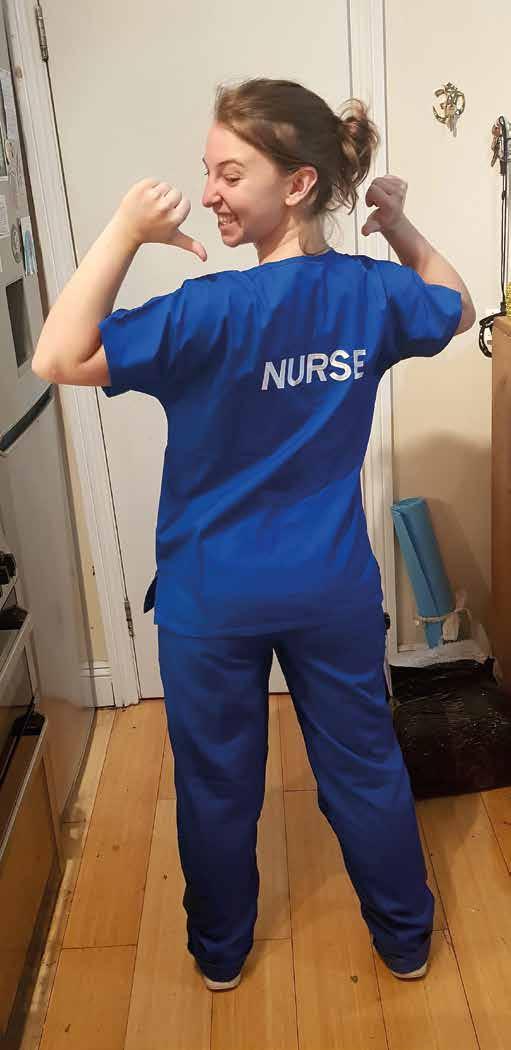
“One of the resounding things I have heard is that they know their patients are using a lot. It’s not just areas like oncology where that is more expected, it’s all over. We are trying to get nurses to understand that a patient disclosing information is worth asking more questions like, ‘what do you use it for? What time of day do you use it? Or what symptoms are you managing?’”
“You can identify through those questions whether that use is therapeutic or medical. I think when it comes to nurse feedback, they are
afraid for their job. I had the same thing when I was training then qualified. I worried I was putting my job at risk by talking about cannabis. I don’t really know why we are afraid of it.”
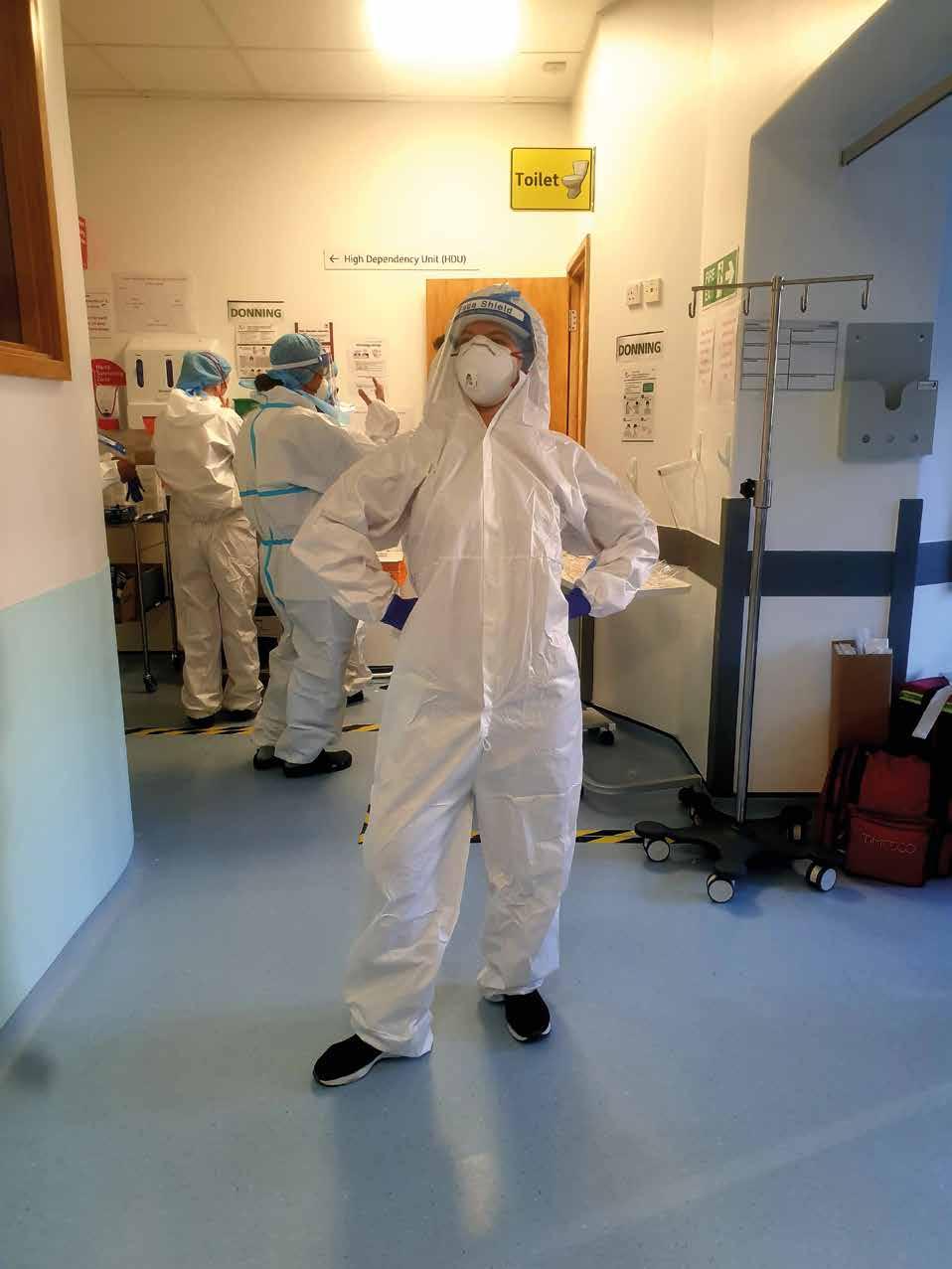
So, if the nurses are aware of medical cannabis use among patient groups, what about doctors? Nurses are often on the ground floor of care, seeing how prescription medication or advice given by doctors can affect a patient’s day-to-day life. Doctors may spend less time with patients, so many may not develop the same relationships which lead to a cannabis disclosure. Sophie says that oils are helping doctors to feel more confident with cannabis in comparison to more typical methods.
“I think a lot of the doctors start in very conservative way with oils. I think that’s because it looks like a medicine and the flowers don’t. There is a lot of stigma, but I’ve been educating people at the clinic I work at. As soon as you start to explain how cannabis and flower work then the fear around the flower disappears. Doctors are the way they are and do that job for a reason. They instantly become fascinated by the chemistry and the applications. They start to see all these patients flashing through their head that they could have recommended this to.”
“Doctors instantly become fascinated by the chemistry and the applications. They start to see all these patients flashing through their heads that they could have recommended this to”
Itching to get back out into the big wide world? Here’s where you can and can’t travel with prescription medical cannabis
Words by Gordon StriblingIt can be tricky to keep on top of the ever shifting and conflicting rules about medical cannabis at the best of times. But throw in the intricacies of global travel and that annoying bug that’s been going around and the only thing we can say with 100% confidence is to proceed with caution!
Before departing for warmer climes, there’s a small matter of UK customs to take into consideration. This is the most straight forward part of the process and should be relatively painless if you have a legally obtained prescription for medical cannabis.
Home Office guidance states: “If you’re leaving the UK with medicine that contains a controlled drug you should be able to prove it’s yours with either a prescription or letter from your clinician.
“Other countries have their own import laws for prescription medicine and controlled drugs.” It’s important to remember that medical cannabis has only been
legal in the UK since 2018 and customs officials, airline and airport staff may not necessarily be well versed in the different properties which make up these oils and formulations.

So, again, you would be wise to contact the airline well in advance of your travel.
Tourist hotspots with legal medical cannabis include Canada, which fully legalised cannabis for adult use in 2018 but still controls the medical supply. Australia, which is a much more strictly controlled and exclusively medicinal market and then there is Malta and Croatia closer to home.
Luxembourg is on the path to becoming the first European nation to fully legalise cannabis, with medical use legalised in June 2018 and recreational anticipated for the end of this year.
Portugal decriminalised all drugs in 2001 and also has a medical cannabis programme,
with medication available via a doctor’s prescription. There may be restrictions on entering the country with a prescription originating from the EU so check with the country’s embassy before you travel.
Medical cannabis is legal in 36 US states but remains illegal at the federal level.
Entering the US or crossing state lines with prescribed medical cannabis could land you in hot water. The one exception to this is FDA-approved Epidiolex which can be taken on internal flights after Transport Security Administration (TSA) guidance was updated in 2019.
The guidance states: “TSA’s screening procedures are focused on security and are designed to detect potential threats to aviation and passengers. “Accordingly, TSA security officers do not search for marijuana or other illegal drugs, but if any illegal
substance is discovered during security screening, TSA will refer the matter to a law enforcement officer.”
Sublingual CBD medicines like Sativex can be prescribed by doctors but whole plant cannabis remains illegal. The possession of illegal cannabis is punishable by one to two years in prison.
Dubai attracts millions of tourists every year, but the emirate takes a notoriously strict stance when it comes to drug use, medicinal or otherwise.
Those caught in possession of cannabis or even failing a drugs test face the prospect of a fine and a prison sentence.
Article 46 of the Anti-Narcotic Psychotropic Substances Law states:
“The penalty of imprisonment for a period of not less than 10 years and not more than 15 years and a fine of not less than DH 20,000 shall be imposed on any person who has managed, prepared or set up a place for the abuse of narcotic drugs or psychotropic substances.”
Indonesia’s 2009 Narcotics Law strictly prohibits all cannabis use and is among the strictest narcotics regulations in the world. Article 111 of the law states that those caught in possession of cannabis can face a Rp 8 billion (£400,000) fine and up to 12 years in prison.
Cannabis is highly illegal in
Singapore as the country maintains a zero-tolerance approach to drugs.
The possession or consumption of cannabis can result in a 10-year prison term, $20,000 fine and even caning.
On the issue of medical cannabis specifically, the Home Affairs and Health ministries said in 2019: "Our drug-control policies are underpinned by evidence and research.
"Cannabis is clearly addictive and harmful, and there is no scientific evidence of the safety and efficacy of raw cannabis use.
"This supports our position that cannabis should remain an illicit drug... We will continue to allow
safe and controlled access to evidence-based medical treatment options."
It goes without saying that you should avoid taking medical cannabis to zero-tolerance places like Dubai and Singapore. But with border regulations varying so much across different territories, even those closer to home, you should always check with the advice available at your destination in advance of your visit. And be sure to keep your medicine in the packaging it was prescribed in and always carry with you a note from your doctor.

Sapphire Medical and EMMAC Life Sciences have announced that this partnership will produce a new cannabis flower medicine for the UK
Words by Caroline BarrySapphire Medical Clinics and EMMAC Life Sciences will launch a new medical cannabis flower product designed to boost access for patients in the UK.
Sapphire Medical Clinics and EMMAC Life Sciences have announced a new partnership which will see the creation of a new medical cannabis flower. The aim of the collaboration is to increase medical cannabis access for patients in the UK.
EMMAC, Europe’s largest independent cannabis company, will create a further range of medical cannabis flower products, The CANNAVIST understands. Sapphire will be the first to offer the new product to patients.
It is hoped this development will give British patients wider product choices, greater affordability and easier access overall to cannabisbased medicines.
The UK-manufactured, EU GMP cannabis flower has been created in connection with data collected from the Sapphire clinics. Data collected from over 1,500 medical cannabis treatments using the Real World Evidence platform has been taking
into consideration.
Sapphire’s Real-World Evidence Platform captures patient and product data through the UK Medical Cannabis Registry. This was established to make sure that cannabis medicines are developed responsibly, capturing essential data on efficacy, adverse effects and patient-reported outcomes in the hope of boosting access to such therapies for patients.
Sapphire’s leading Consultant Psychiatrist, Dr James Rucker, said: “We are pleased to have been chosen by EMMAC for this partnership, reflecting the strength of our RealWorld Evidence platform. We are glad that we can now offer the first range of this affordable UK-produced flower to patients ensuring that it is no longer economically preferable to source illicit cannabis to treat legitimate medical diagnoses.”
He added that the data will help to increase access:
“Via high-quality data-driven medical development programmes, we ensure more UK patients can access a variety of medical cannabis products they need to improve their lives, whether that be to help improve sleep, lower levels of pain or, in the case of many of the patients I see, a
reduction in anxiety levels.”
Sapphire patient, Lorna Cairns-Cooke from Cambridgeshire vapes medical cannabis flower to help with her pain. She suffers from chronic pain as a result of an accident in which she damaged her shoulder and back.
“After eight months of being prescribed pills, I decided morphine was not the answer and began researching medical cannabis as a way to manage my pain so that I could continue working. Thanks to Sapphire Medical, I have access to high-quality UK-manufactured medical cannabis oil and flower where I know I am getting the same dose every time.’
“The cannabis flower, which I vape, is extremely helpful as it brings immediate relief to my pain and muscle spasms. The oil allows me to work during the day and the flower helps me to sleep throughout the night. This has made a big difference to my work now I am no longer in so much pain. I hope that the life-changing properties and legal status of medical cannabis will soon become common knowledge in the UK.”
Antonio Costanzo, CEO of EMMAC Life Sciences, also commented on the launch: “EMMAC is pleased to extend its range of unlicensed medical cannabis products for the UK market, with the introduction of high-quality flower products. We are focused on solving patient and physician challenges relating to the price, access and sustainability of medical cannabis products. Driving innovation and efficiencies through our vertically integrated business model means that we have complete control of our supply chain, allowing us to maintain quality control whilst creating costs efficiencies that we are able to pass on to patients.”
The announcement comes just weeks after US-based Curaleaf Holdings signed an agreement to acquire EMMAC for $286 million. The move sees the leading US provider of consumer products entering into the UK and European medical market. EMMAC has several key European medical cannabis markets, including the United Kingdom, Germany, Italy, Spain and Portugal.

This Seitan-style recipe comes to us by Nottingham favourite, Mocky-D. Their chefs have been providing innovative vegan ‘fast food for thought’ to the Nottingham community since 2016.
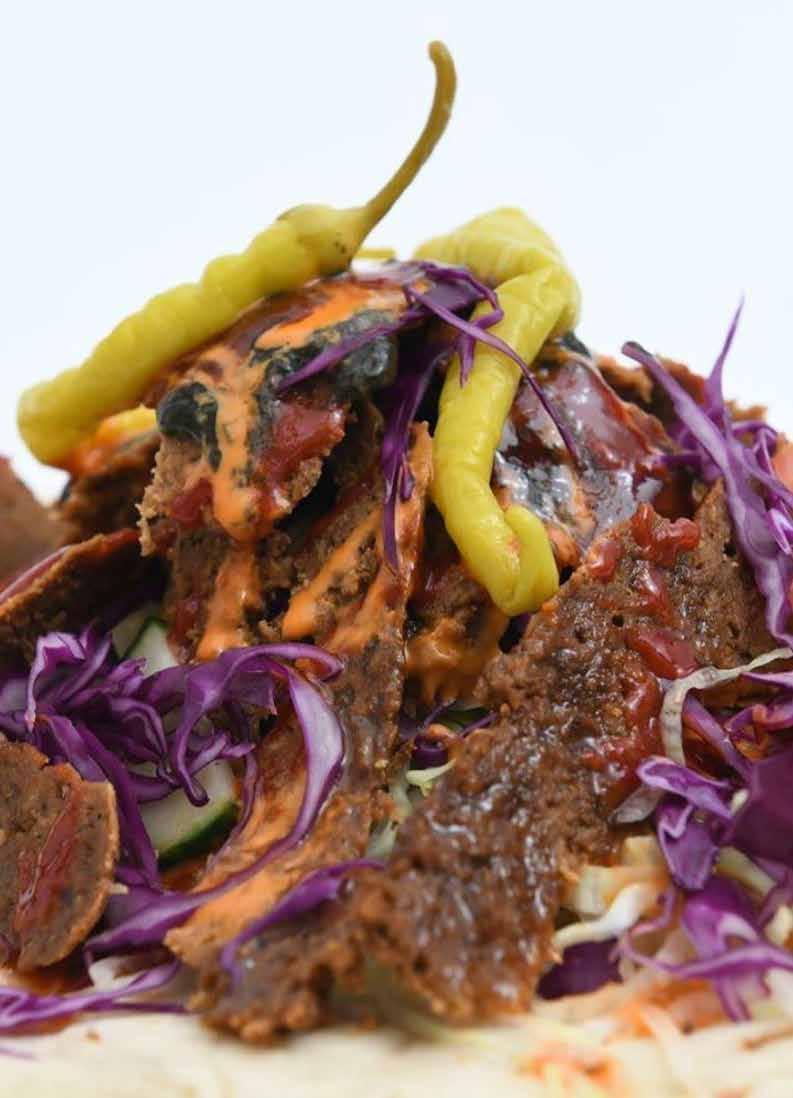
Mocky-D offer a range of signature mock-meat vegan meals including burgers, sandwiches, hot dogs, salads and their roast beef dippers. They have built a cult following among street food fans especially in their hometown.
Mocky-D launched their most recent creation, the CBD burger in 2020, and they continue to bring meat-free takeaway classics to life. Mocky-D’s Ben and Clare present this delicious, tasty, handmade doner kebab, served takeaway style with a warm, chewy naan bread and all the fresh salad and sauces.
1 onion, diced
4 garlic cloves, minced
1 scotch bonnet chilli (or whatever level of chilli you prefer)
1 tbsp tomato puree
1 tin chopped tomatoes
1 tbsp Apple cider vinegar
1 tsp smoked paprika
1 tsp cumin
Salt & pepper
15g CBD chocolate. We recommend using the Royal Highness Queen Sativa or Almighty Foods Dark Chocolate!

1) Add some oil and lightly fry your finely chopped onion in a pan until soft and translucent before adding in the minced garlic.
2) Add one scotch bonnet chilli, finely chopped. Discard the seeds if you don’t want it too hot!
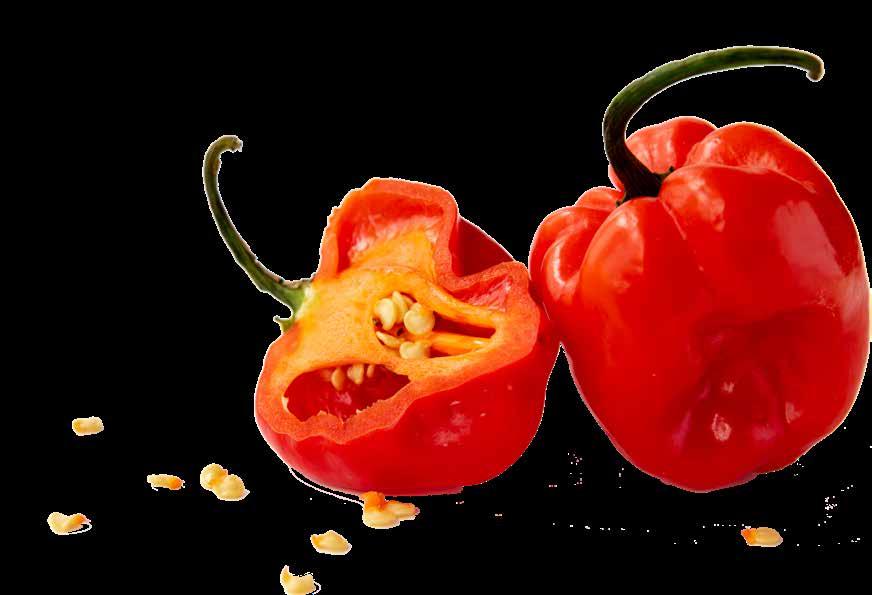
3) Add the tomato puree, chopped tomatoes and 4-5 tablespoons of water, apple cider vinegar and then your spices – smoked paprika, cumin and a generous pinch of salt and pepper.
4) Continue to simmer for 5-10 minutes and then melt in your CBD chocolate.
5) Blend for a smooth finish or leave it chunky for a rustic feel. Serve hot and ladled over your kebab.
Chef’s top tip: Adding more CBD dark chocolate will deepen the flavour, making it a perfect indulgent base for beef-style meaty dishes like chilli con carne or madras.

Dry ingredients

300g vital wheat gluten
70g gram flour / chickpea flour
35g rolled oats
1 tsp garlic powder
2 tsp onion powder
1 tsp smoked paprika
3 tsp black pepper
2 tsp vegetable bouillon powder / stock
2 tsp cayenne pepper / chilli powder
3 tsp dried rosemary
440g tin of Adzuki beans (black beans), including the water
4 tsp soy sauce
2 heaped tbsp ketchup
1 tbsp olive oil
2 tbsp marmite / vegemite 1 tbsp nutritional yeast 4 tbsp cold water
4 naan bread (store bought or homemade)
½ iceberg lettuce, finely shredded ½ red cabbage, finely shredded ½ white cabbage, finely shredded 1 medium brown onion, finely sliced ½ cucumber, halved and sliced 1 tomato, sliced 1 jar pickled chillies (or pickled peppers)
Your sauce preference – we recommend garlic mayo, mint sauce and your favourite hot sauce
1) Bring a large pan of water to the boil while preparing your kebab ‘meat’ mix.
2) In a large mixing bowl, mix the dry ingredients until evenly combined.
3) In a blender (or if using a handheld blender, in a separate bowl), mix the wet ingredients and blend until smooth.
4) Form a well in the dry ingredients and pour the blended mixture into the bowl. Mix thoroughly to bring the seitan mixture together; if the mixture looks a little dry, don’t be scared to add 1 tablespoon of cold water at a time until the mixture comes together so it can be kneaded.
5) and knead for approximately 5-10 minutes. The longer the mixture is kneaded, the firmer and chewier your kebab will be.
6 ) Once the kebab has been mixed, shape the ‘meat’ into an 8-inch log,
with a diameter of about 4 inches. Place the kebab into the boiling water, and reduce to a simmer for 1 hour, turning occasionally to avoid sticking.
7) While the kebab is cooking, prepare your salad and naan bread.
8) When the kebab is cooked, carefully remove from the water and allow to cool for 10-15 minutes. Using a serrated kitchen knife (or electric carving knife if you have one), hold the kebab at the top and carefully carve fine, long slices of meat from the log – just like in a kebab/gyro takeaway joint.
9) Warm the naan bread in an oven on a low temperature. Fry the slices on a medium heat in a small amount of vegetable oil for 1-2 minutes on either side, turning carefully with tongs to avoid breakages.
10) Once cooked, take the warm naan bread and load with the freshly prepared salad, top with your handmade kebab and drizzle with our CBD Hot Sauce and mayo.
CBD edibles are so much more than gummies and brownies. If you’re not interested in consuming what can often be sugar-laden treats to get your daily dose, fear not! As the new CBD in food regulations come into effect, we thought we would examine the sweet, sour and spicy options available to your tastebuds.
Words by Caroline Barry
CBD hot sauce is not for the faint-hearted. Birmingham-based Pip’s Cure for Life CBD Hot Sauce is a one of a kind product made in the UK. It has a Caribbean-inspired flavour with a combination of peaches, turmeric and scotch bonnet chillis presented in a bottle designed by graffiti artist Foka Wolf. But be warned, the scotch bonnet measures 12 to 14 times hotter than a jalapeño.
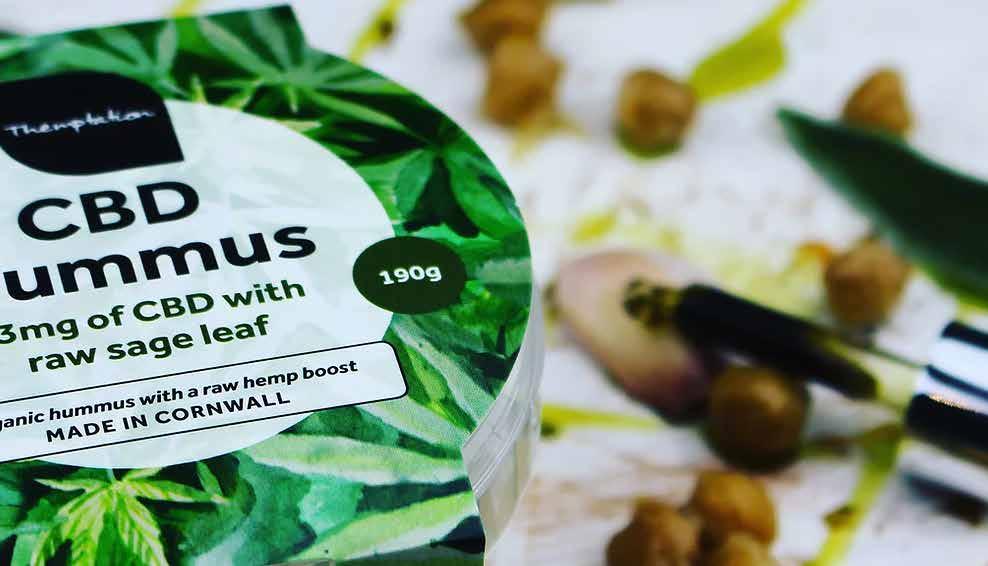
If you’d prefer a savoury snack instead of something sweet then this is perfect lunchtime excuse to try CBD. Themptation’s CBD and Sage Hummus is a modern take on a Middle Eastern classic. Themptation offer a range of five different flavours from spinach to coriander and lime to CBD infused sage. All of the hummus is made with hemp seed oil but only one offers that CBD twist. Perfect with a cheeseboard and crackers!
You can’t beat a sweet treat in the evenings, especially during lockdown. London-based, female-run company, The Marshmellowist creates tasty gourmet marshmallows. One of their bestsellers combines fresh grapefruit with pink peppercorns and 10mg of CBD. Quite the fan favourite, this product was sold out for two months following an appearance on ITV’s This Morning. Jenny Simms is the director of the company and her sister Oonagh is the chef. “We were approached by one of our customers. He loved how we experimented with flavours and he was a fan of edible CBD. The oil he used was an organic, full-plant hemp and he wanted to know what it would taste like in gourmet confectionery. We didn’t need to be asked twice.”

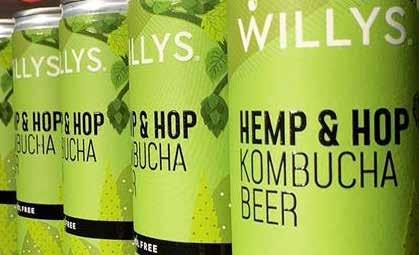
The taste of a craft ale with no actual ale. The Hemp & Hop non-alcoholic beer is the creation of Chase Farms who also own Tyrell Crisps and Chase Vodka. The beer is made of five ingredients: water, Japanese sencha green tea, hemp tea, cane sugar and SCOBY which means a symbiotic colony of bacteria and yeast. The beer is brewed in small batches at their sustainable Herefordshire farm. Perfect with: A packet of hemp crisps
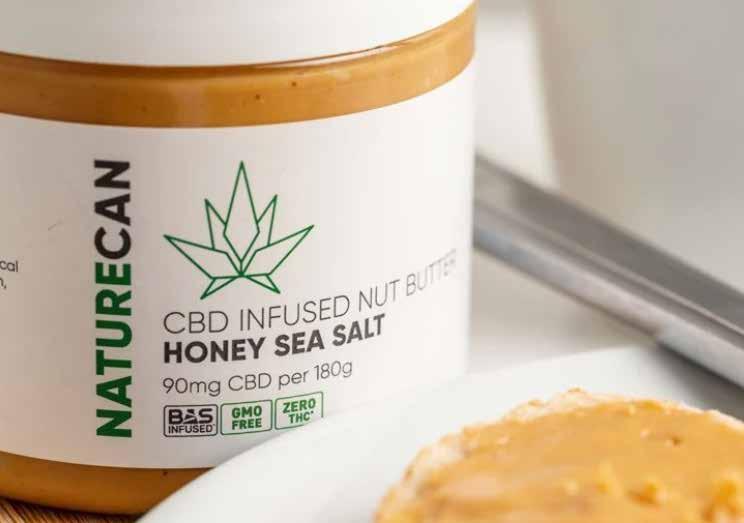
Peanut butter is great for adding to a healthy breakfast or dessert. It is high in protein, plant-derived fats and vitamin B6. It’s a tasty source of magnesium, phosphorus and zinc too. The natural honey in this product from Stockport-based Naturecan gives it a natural sweetness while the sea salt gives it a little bit of a twist. The brand’s co-founder, Paul, explains: “We decided on peanut butter as it’s a delicious, protein-packed, vegan snack that can be added to smoothies and toast and gives plenty of options for getting your daily CBD dose.” Serve it up with crunchy toast or fresh apple slices for a healthy snack.

Of all the places to add a little CBD, this time we’re talking about your spice rack. The Legal Hempire in Liverpool has added a range of CBD spices to their line up including Creole, BBQ, Piri Piri and Jerk CBD seasoning. The collection comes with a grinder attached to the bottle. Once you’re out you have the option to get a refill of your favourite spice blend. There are nine in total, but hey, variety is the spice of life after all!
CBD is thought to be antibacterial and an antioxidant, claims which are similar to the profile of honey. Pair it with goat’s cheese in tarts or add to porridge, smoothies or hot drinks instead of sugar.

It seems like CBD goes with and into everything these days. Did you know there are certain spices, seeds and herbs that may benefit your intake?
Words by Caroline BarryLavender oil is thought to help with anxiety, nausea, depression and sleep issues. This could be due to the naturally occurring terpene, linalool, which this popular aromatherapy oil contains.
Linalool has been shown to have a calming, sedative effect. It is also found in some of our favourite flowers, like geraniums, roses, chamomile and cannabis.
It may increase the production of adenosine, which is a sedating hormone which helps us to fall asleep.
A Japanese study from 2017 reported that linalool may help to reduce sleep problems in dementia patients. The study had 19 patients inhale lavender before bed for 20 days. On the days where the subjects inhaled lavender, the participants reported longer sleep compared with the days they did not.
Fact: Although lavender has purple flowers, it is actually classified as a herb.

DIY: Lavender or CBD bath bombs are easy to find on the high street. If you try one, then why not add either lavender or CBD oils into the bath to mix the two?
Try: CBD Tongue Drops in Lavender (CALM) by Ignite CBD, £45
CBD with mint can be great for masking the aftertaste of oils, but does it have more to offer?
Both CBD and mint are thought to have antibacterial properties which may help with irritated skin.
Mint leaves are thought to work well as a mild astringent to tone the skin while clearing off dead skin cells, removing dirt from pores and adding hydration.
A 2014 study found that CBD may prevent our skin cells from overproducing oil, one of the causes of acne.
This research suggested that CBD oil triggers an anti-inflammatory response in the cells, potentially stopping acne breakouts in their tracks.
Fact: There are over 30 varieties of mint, including peppermint, spearmint, wild mint and chocolate mint.

DIY: Mint leaves can be ground into a paste or essential oil.
Try: Naturecan CBD Cooling Balm Menthol, £29.99
Nigella Sativa is a flowering shrub that is found in Eastern Europe and the Middle East. It produces a fruit which contains tiny black seeds. These can be used in the making of bread, curries and pickles to add flavour. Similar to hemp seed oil, black seed oil is thought to
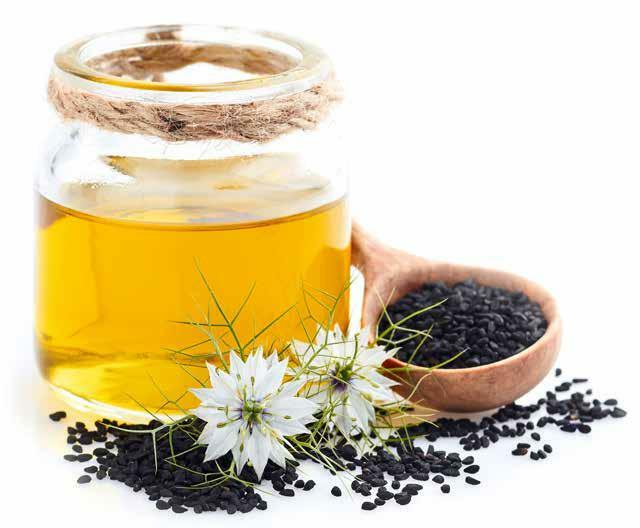
bear antioxidant properties too. In a review, researchers reported that black seed plants may have a therapeutic effect in oral and dental disease management. It is thought they may help with periodontal disease, bone healing, tooth loss and ulcerations. This may be why black seed oil is now being added to oral care products. A study on plaque in 2020 showed that a CBD toothpaste outperformed regular products when it came to removing bacterial build-up. Sixty adults were sorted into groups depending on a Dutch periodontal screening system.
They gave plaque samples which were placed onto a petri-dish before being treated with CBD, CBN, CBGa and CBG. The dishes were then tested against leading toothpaste brands before being sealed and incubated. The results showed that these cannabinoids could be used as effective antibacterial agents against plaqueassociated bacteria.
Fact: People have used these seeds to make medicine for over 2000 years.
Try: Sprinjene Natural Toothpaste with Hemp Derived CBD, $17.99
Turmeric is the spice that gives your favourite curry its vibrant yellow colour. Turmeric contains a compound called curcurmin, which has been a part of Indian medicine for centuries. It’s thought to be antioxidant and anti-inflammatory.
The potential anti-inflammatory properties means turmeric supplements are now being utilised for joint
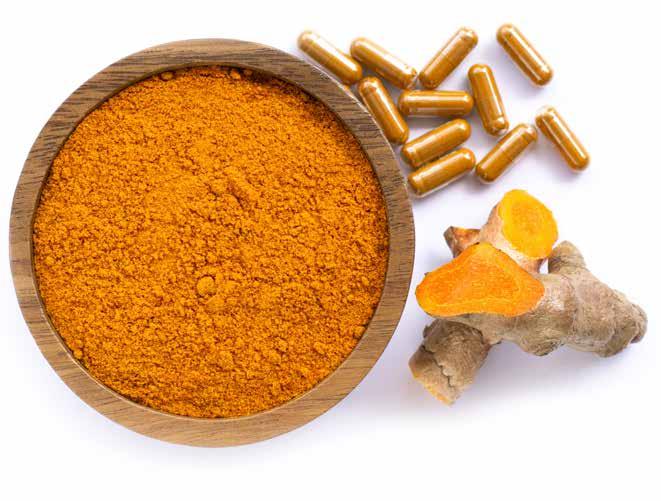
care. In a small scale study from 2020, researchers took 70 patients with knee arthritis and prescribed them 1,000mg per day of turmeric or a placebo. After 12 weeks, those taking the turmeric self-reported less knee pain than those on the placebo.
CBD has also shown early signs of helping arthritis pain. In a pre-clinical study, researchers induced arthritis in rats before treating them with a topical CBD product.
There was a difference in inflammation levels and less development of the condition as a result. However, human-based clinical trials are needed to further explore this theory.
Fact: Turmeric is used in Haldi wedding ceremonies. A paste of turmeric, sandalwood and curd is rubbed on the bride and groom before a ceremonial bath. It is thought this tradition brings good luck to the happy couple.
DIY: The turmeric latte is one of the latest food crazes.
Try: Wunder Workshop Turmeric and CBD oil, £77
We sampled this exciting new CBD-infused alcohol-free spirit

Tried & tested by Gordon Stribling
The UK is taking its first tentative steps out of lockdown and many of us are relishing the prospect of physical, Zoom-free socialising. Throw in some unseasonably warm weather and outdoor drinks with friends just has to be done.
But what if you want to do the ‘drinks’ part without the hangover?
Spirited Euphoria is an alcoholfree spirit blended with CBD isolate and hemp terpenes. The first release from the Endorphin Dealer Institute (Edi), the drink is the brainchild of Formula-E racing development pioneer Alexander Jakobi and two-time champion Jean-Éric Vergne.
The duo came up with the idea while they relaxed by the pool the night before a race in Santiago, Chile. They wanted to relax but be at their best the next day. And so, the (hemp) seed was planted. I find myself in a similar position
as the co-founders today, albeit without the pool, Chilean sunshine and glittering motorsport career. Having neglected my self-care during Lockdown 2.0, I spent the last lockdown on a health kick trying to undo the damage.
Pizza, boxset-bingeing and daily drinking are out. In their place, healthy food, a thrice weekly 5k run and tee-total lifestyle, bar Zoom drinks with friends a couple of times a month.
Steering clear of alcohol has definitely had its benefits on my physical and mental wellbeing.
But I do miss the calming ritual of kicking back with a drink after a hard day. Could Spirited Euphoria take the mantle?
The recommended daily consumption suggests that I drink one or two 50ml serves a day over the course of a week to get the full functional benefits. I gave it a test run, neat at first, before trying their serving suggestion.
The label on the beautiful, frosted glass bottle describes the spirit as ‘dry’ and ‘bittersweet’ and I would have to agree with both adjectives. There’s that unmistakable ‘hempy’ taste offset by a bittersweet tang, the latter reminding me of cloudy lemonade.
Spirited Euphoria definitely works much better blended with tonic water and orange peel or bitters
(I tried both with similar results). The tonic helps neutralise the peppery hemp flavour and the orange synergises with the green citrus. But there’s no doubt that neat or mixed, this will divide a room.
I found that I enjoyed the drink more and more over the course of the week as I familiarised myself with the flavours. There was probably some positive association too as it began to fill that role as a wind-down elixir.
It’s important here to note that there’s more going on than CBD isolate and hemp terpenes. Spirited Euphoria also contains adaptogens and nootropics, including vitamin B12, mood-booster 5-HTP, and stimulants guarana and Tyrosine to create the ‘Edi Effect’.
I’m a notoriously light sleeper and avoid even caffeine after midday, so I enjoyed my drink in the early evening after I finished work. This routine definitely worked for me as it gave me something to look forward to as I wound down my workday.
Unfortunately, I didn’t experience any of the functional effects. I’m not sure if I gave it enough time in a week to do its thing. But it’s also likely that the effects will vary considerably person-to-person. As we know with CBD, no two people are known to experience the exact same effect.
I really enjoyed making Spirited Euphoria part of my daily routine. The taste won’t be for everyone, but there are a lot of flavours to work with as mixers if you want to get creative. I look forward to trying some of these cocktail ideas out on my friends and testing their feeling of the Edi Effect.
This is certainly a novel idea for an alcohol-free alternative as the bars begin to reopen and we get some sense of a social life back.
Spirited Euphoria; 70cl; Edispirits.com; £39.99 10mg CBD isolate per 25ml serving

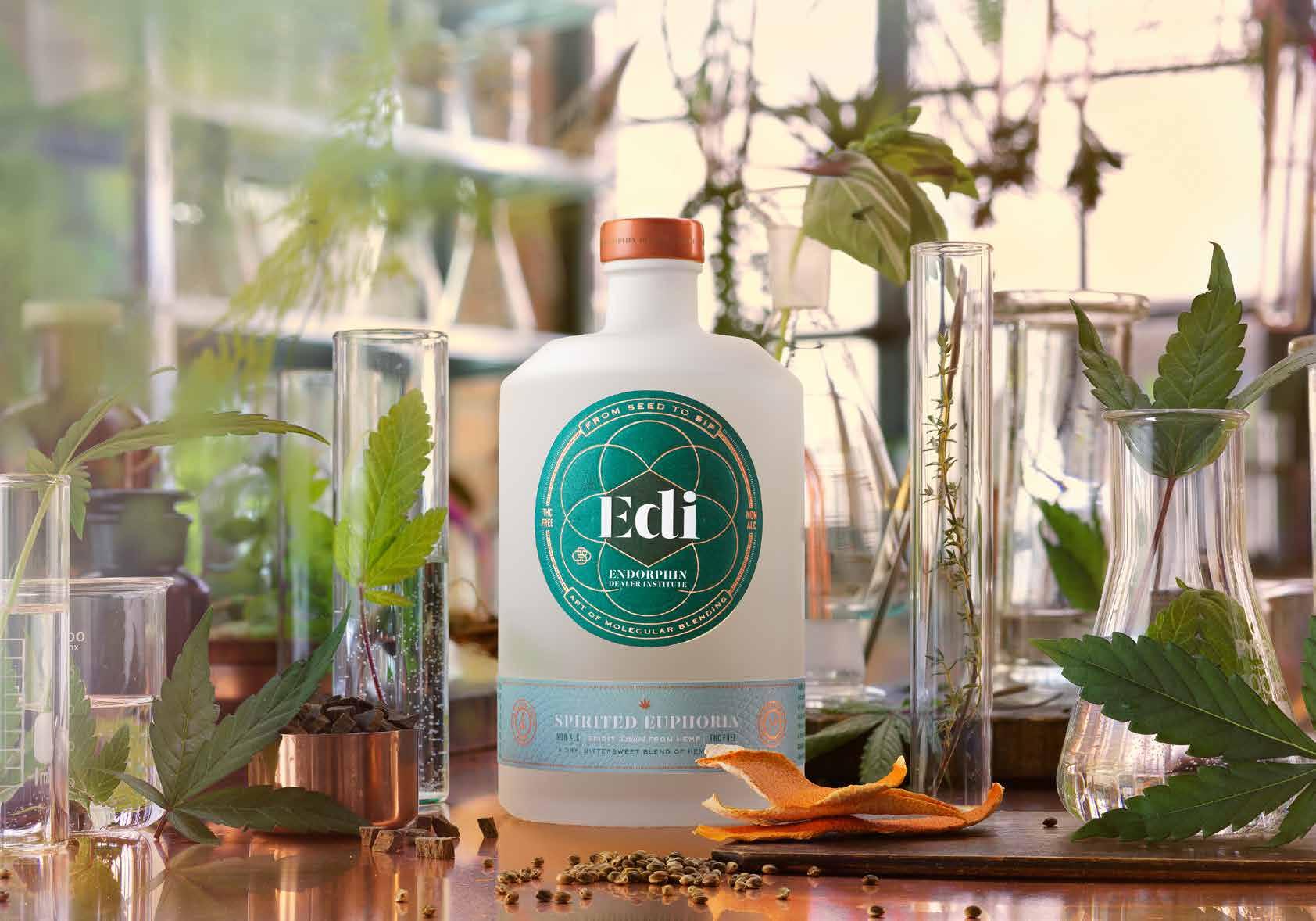
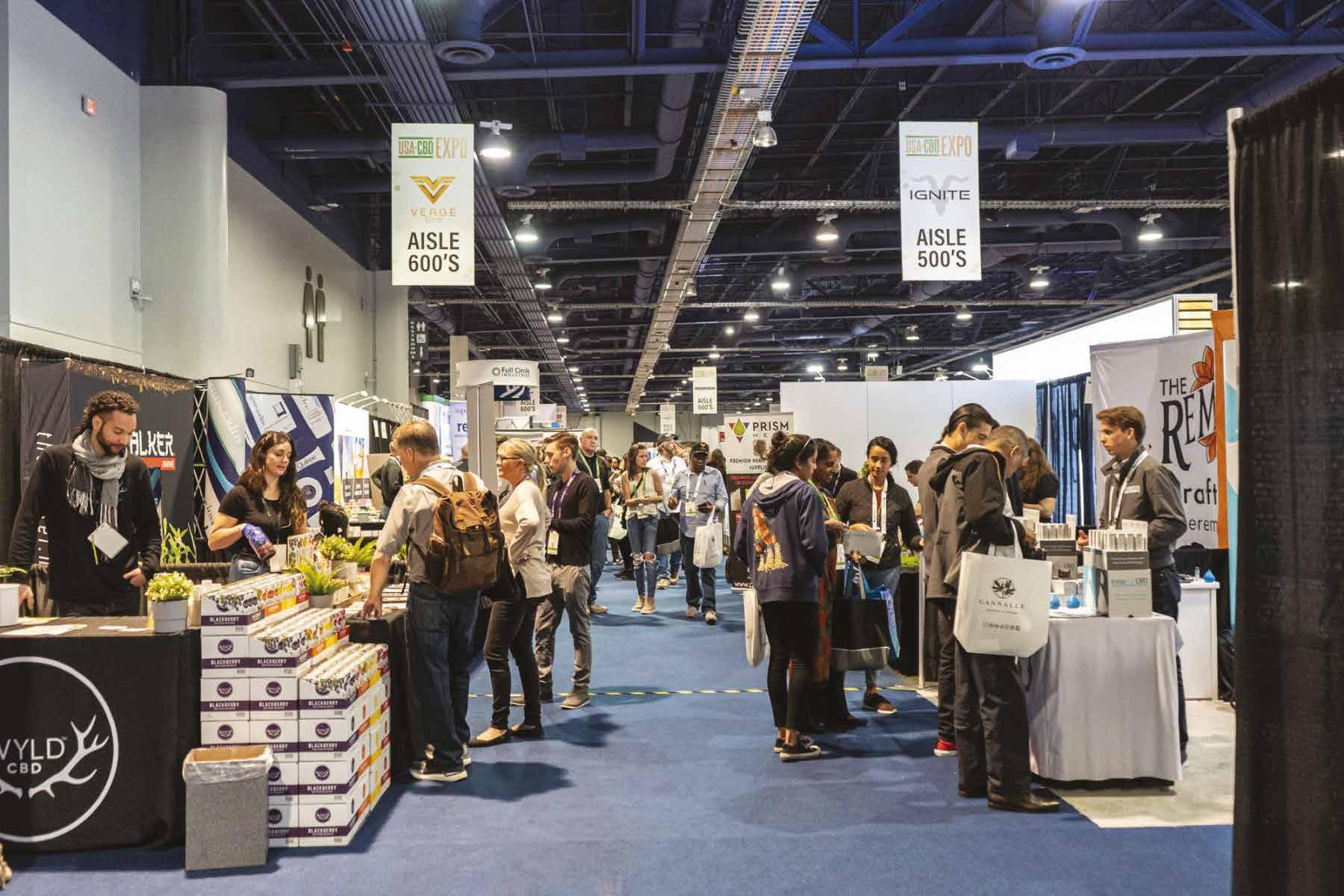
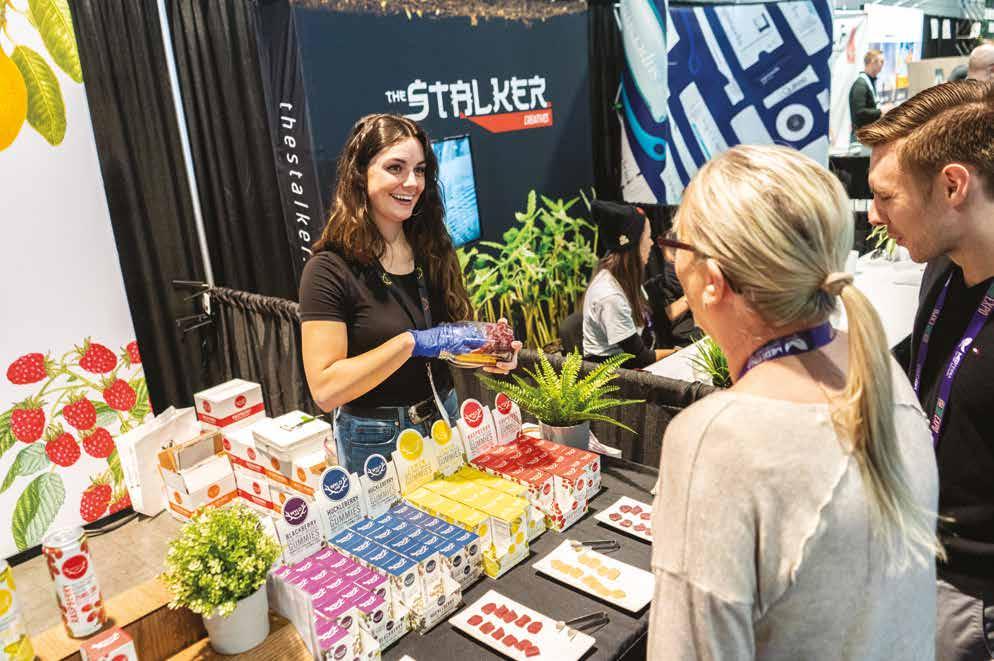
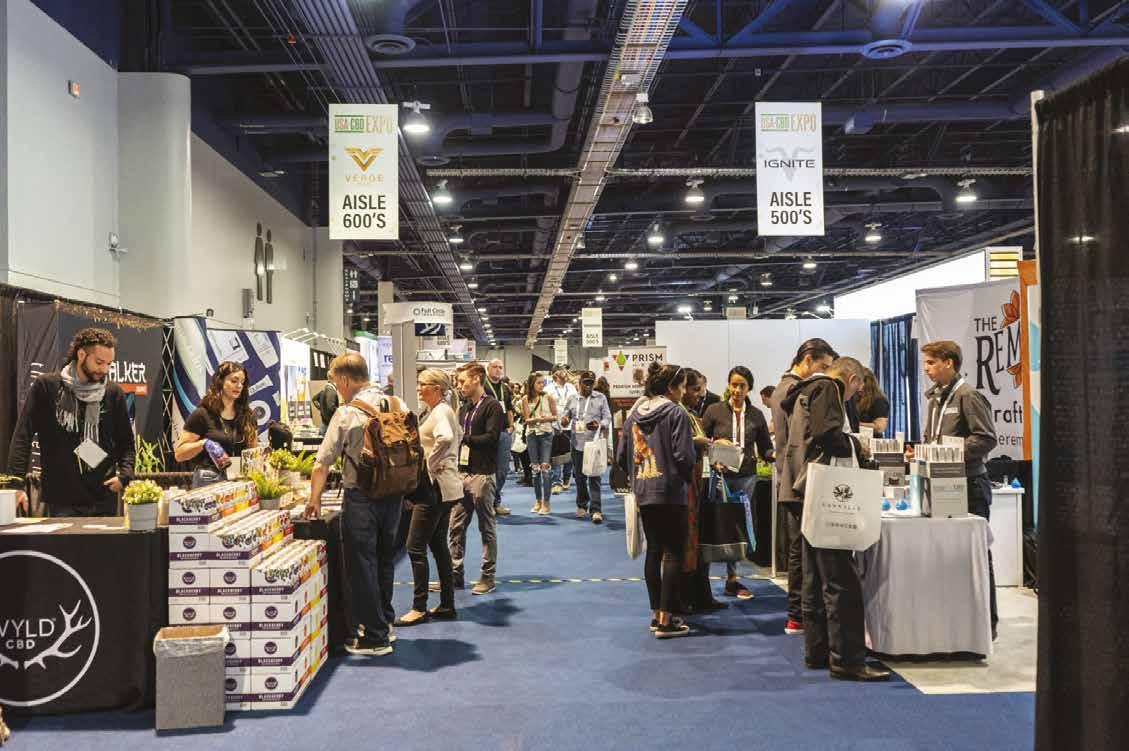




With the world reopening slowly, online is still king. We check out some of the best CBD & medical cannabis events of late

We logged on to this year’s Future Cannabis Strategies Europe event to find out what lies beyond the novel foods debacle for British CBD brands.
Words by Róisín DelaneyVirtual events are the new normal, especially when it comes to keeping abreast of the latest happenings in the industry. On March 23 and 24, we checked in with Arena International’s principal cannabis event to find the answers to some questions which have gone unanswered amid the pandemic.
Philip Coverdale is the Global Head of Consulting in the alcohol and cannabis categories for Global Data, a sister company to conference coordinators Arena International.

In his opening message, he told visitors to the event how he didn’t anticipate a second year of virtual events.
And yet Philip, along with a team of experienced conference curators, promised to deliver on expert insight, with the very latest on strategies, trends and innovation.
Events like this, online or otherwise, are critical to the future of the community. They challenge the industry in order to reach new heights. But there was only one thing at the top of every visitor’s
agenda, and so it sat at the top of the agenda itself on day one. Novel foods.
This event took place exactly one week out from the deadline, and so everyone wanted to know what was going to happen next.
Paul Tossell, Head of Radiological, GM, Novel Foods and Feed Additives at the Food Standards Agency presented a clear and concise account of what matters most beyond the novel foods application deadline. He explained
why CBD extracts are novel in the first place, and how CBD will fit within the FSA’s regulatory framework across the UK going forward.
He pointed out how Scotland and Northern Ireland are subject to their own rules, with the Northern Ireland protocol in effect and Food Standards Scotland operating independently of its England and Wales counterpart.
Tossell also took the opportunity to recognise what many sometimes forget. The subject of CBD being a novel food is no longer up for debate, at home or in Brussels. He said: “It’s not just us. It’s agreed in Europe.”
What happens to consumable CBD products now that the March 31 deadline has passed? Tossell explained that those which are linked to validated applications will be added to a public list available online.
This list has been made public for the benefit of local authorities, retailers and consumers to do their own due diligence. He said it
will also entail details of pending applications, for those who met the March 31 application deadline but haven’t yet had success with the validation process.
The bottom line? The FSA says if your product is not on this list, it should not be for sale. For those not on the list, Tossell explained it could be a matter for Trading Standards to absorb.
“We expect voluntary withdrawals, if that doesn’t happen local authorities will make decisions on
what form of enforcement, if any, is required.”
Overall, the word from the FSA is that this step towards a regulated CBD food market will pay off for compliant brands in the future.
Tossell said: “We know consumers want to be able to trust what’s on the market… It’s likely to mean the industry will benefit because the public will be more willing to buy products that have been properly regulated.”
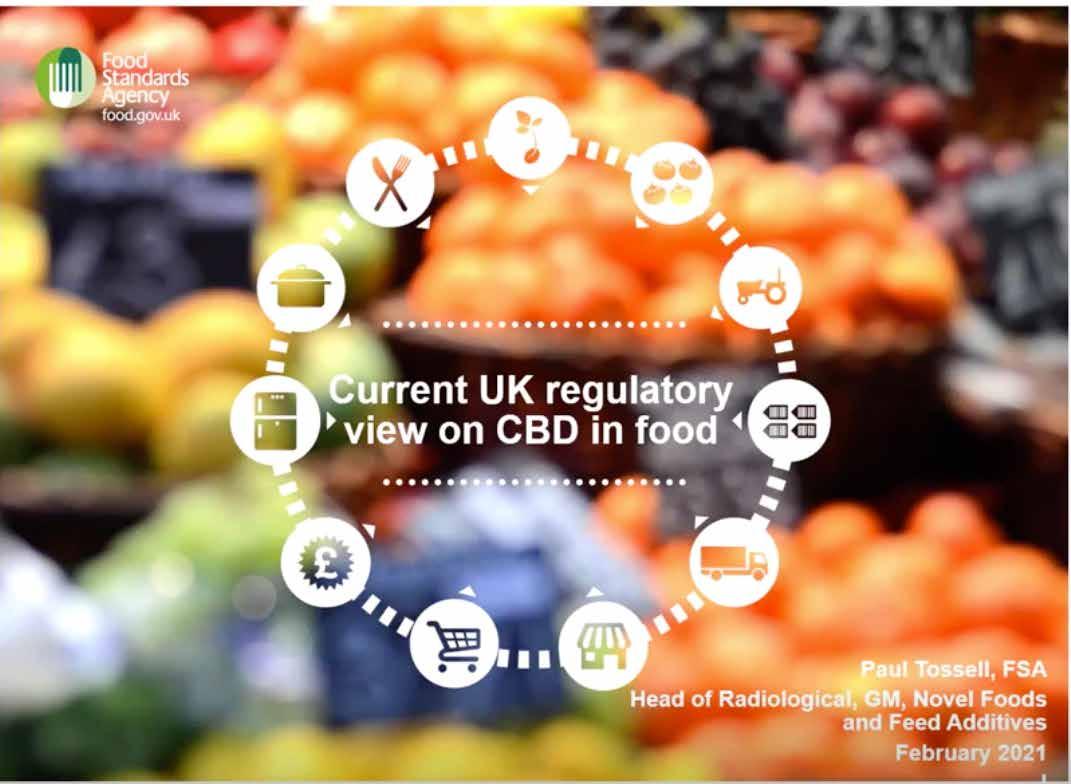
Going forward, new food and beverage products containing CBD which are designated to launch on the market cannot be sold without authorisation from the FSA.
For more information on Arena International’s Future Cannabis Strategies events, go to arenainternational.com/cannabis/
The industry will benefit because the public will be more willing to buy products that have been properly regulated
“
Chief Pharmaceutical Officer at NHS England, where he is head of profession for the pharmacy professions and the principal advisor on pharmacy and medicines use.








Director of the Centre for Guidelines, NICE. Paul has been with NICE since March 2009, where he was responsible for setting up the Institute’s accreditation programme for guideline developers, and more recently was Programme Director of the Medicines and Technologies Programme.

Honorary Fellow of the British Pharmacological Society (BPS), has served as President (twice) of the International Cannabinoid Research Society (ICRS), Chairman of the International Association for Cannabinoid Medicines (IACM), and is on the IACM (and ICRS) Board of Directors.

Member of Parliament for Mid Norfolk and is currently serving on the Prime Minister’s Better Regulation Task Force (Life Sciences). George has formerly served as Minister of State at the Department for Transport and the Department of Health and Social Care.
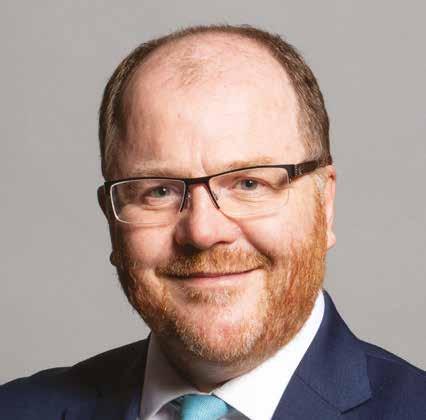

Presented by the founder of regulatory and market intelligence firm, CBD-Intel.
Tim Phillips. Founder, CBD-Intel.
The founder and managing director of CBD-Intel, Tim is a UK-qualified attorney, having worked at the European Commission, BSkyB, international law firm Herbert Smith, AOL Europe, as director of public affairs at Betfair (IPO in 2010 valued at £1.5bn), and as a partner in a New York VC-funded start-up in the diamond sector. Tim holds a postgraduate diploma in Legal Practice from the University of Law, London and a master’s in Geology from Oxford University. Based in Barcelona, CBD-Intel provides impartial, independent advice and premium market and regulatory analysis, legal tracking, and quantitative data for the cannabidiol (CBD) sector worldwide. The team provides clients with the tools to navigate this fast-moving sector, tailor their business strategy, optimise resources and make informed decisions in addition to custom research and consultancy support.

Presented by the Catherine Wilson, VP of the European Industrial Hemp Association.

The European Industrial Hemp Association (EIHA) represents the common interests of hemp farmers, producers and traders working with hemp fibres, shives, seeds, leaves and cannabinoids. Our main task is


to serve, protect and represent the hemp sector in the EU and international policymaking. EIHA covers different areas for the application of hemp, namely its use for construction materials, textiles, cosmetics, feed, food and supplements. Vice president Catherine's primary focus is promoting hemp fibres, a carbon negative raw material, and assisting the development of large scale, decarbonised industrial and consumer products to meet the forthcoming challenges of achieving a net zero economy by 2050. Catherine joined EIHA's advisory board in 2017 and was voted Vice President in 2019. She has a background in recycling and secondary raw material recovery and played an instrumental role in developing the operational framework of the WEEE (Waste Electrics and Electronics Equipment) Directive in the UK. On behalf of EIHA, Catherine liaises with regulatory agencies in the UK since 2016 and is part of the novel food working group.
Presented by the co-founders of CanXchange, the first physical hemp and CBD exchange of its kind, redefining an industry by empowering trusted transactions.
Alex is a serial technology entrepreneur and investor. Over the past ten years he has co-founded, worked for and invested in some of UK and Europe's most successful start-ups, with a specialty in leading commercial teams.
Sigfried has fifteen years of experience in financial markets. Prior co-founding CanXchange he worked until 2016 as a trader (EQF/FX) at the top tier European bank, BNP Paribas. He also held other trading positions at proprietary trading boutiques in London. As hemp and hemp refined products become increasingly important agricultural items globally, CanXchange is committed to providing the market infrastructure to transform and enhance the current supply chain. Their innovative and user-friendly trading platform


Featuring Europe’s thought leaders, think tanks, trend forecasters and key industry insights.
went live in 2020 and houses some of the largest players in the European hemp space. Despite the undeniable market demand for industrial hemp, the ability for buyers and sellers to transact in a transparent and efficient manner has historically been greatly inadequate. The CanXchange business model has overcome this challenge by aggregating a trusted network of businesses and introducing innovative financial and technology solutions. An industry first payment solution (operated by the conventional banking system) has been integrated allowing for ultimate ease and transactional security for their customers. They also carry out a rigorous due diligence program for all businesses who want to access the platform to ensure they conduct ethical business practices and to protect fellow users.

Presented by Georgia Glick, Strategic Partnerships & Lily Temperton, Consultant, of Hanway Associates and First Wednesdays.
Hanway Associates has worked with some of the world’s leading cannabis companies and formed partnerships to help mainstream businesses enter the sector. In this talk, they analyse what the cannabis consumer goods industry will look like in five years and the implications on brands and the sector of major FMCG companies entering the game. Can smaller brands survive this surge? How do you prepare your company for the best possible outcome? hanwayassociates.com
Presented by Róisín Delaney, editor of The CANNAVIST, with writer and podcast host Mary Biles and cannabis PR specialist Kajal Shah.



The CANNAVIST’s Róisín Delaney is joined by Mary Biles for this how to segment on getting your CBD brand noticed. Mary is author of 'The CBD Book: The Essential Guide to CBD Oil', regular contributing writer for Californian educational nonprofit Project CBD and host of the podcast Cannabis Voices. Mary is respected within the industry for her ability to create engaging content that explains in digestible terms the science behind cannabis and CBD in a way that consumers understand and can relate to; a skill she honed while working as a content writer within the CBD industry. Mary feels strongly that CBD companies must be both ethical and responsible in their approach to creating digital marketing content, believing

with some creativity, it is possible to educate the consumer whilst still remaining compliant with regulators.
Presented by the co-founders of The Hemp Connect
The Hemp Connect is on a mission to connect the UK with the finest and highest quality CBD, ensuring a high standard of customer service as well as ensuring all our products are legal. We do this by working with a selection of handpicked brands that we trust to continue our quality promise. This means that we, The Hemp Connect, can offer the largest online range of CBD products available in the UK today.
thehempconnect.co.uk
Presented by ‘The Cannabis Conversation’ podcast host Anuj Desai, in conversation with Deepank Utkhede, Chief Operations Officer, Vantage Hemp.
Anuj Desai is host of Europe’s leading cannabis industry podcast, The Cannabis Conversation, having interviewed over 100 global thought leaders, including Professor Raphael Mechoulam (the Godfather of cannabis research), Dr Ethan Russo (leading cannabis scientist), Bruce Linton (former Canopy Growth CEO), Steve DeAngelo (long-time activist), and Montell Williams (former talk show host).
Anuj is also an experienced commercial lawyer, having worked in a variety of senior roles in the UK’s media industry over 15 years. He is the founder of Canverse – a legal and commercial consultancy for the cannabis industry. Anuj acts as a lawyer and board advisor to several cannabis/hemp start-ups and SMEs in the UK, US and Canada, assisting on a variety of corporate and commercial matters. He has developed, and continues to expand, an extensive network of investors, entrepreneurs, and key opinion leaders in the cannabis, CBD, cannabinoid and hemp sectors, both in the UK and internationally.


Colorado-based Deepank boasts 22 years' experience in pharmaceutical formulation and development. A specialist in lyophilization, liposome and emulsion technology, he has worked extensively in the production of pharmaceuticalgrade cannabinoid treatments - including oils, topicals and isolates. Utkhede's background in the healthcare industry, designing robust and commercially scalable manufacturing processes, has been pivotal to Vantage Hemp securing GMP and EU compliance as the company expands worldwide.

Becoming an online CBD retailer in a state of lockdown.
Getting to the root of the matter: Driving standards in hemp in order to heighten standards in CBD.
particular focus on brain imaging (especially PET). Prior to this, he spent two years at the National Institutes of Alcohol Abuse and Alcoholism in the US as Chief of the Section of Clinical Science, before setting up the Psychopharmacology Unit at Bristol University, an interdisciplinary research grouping spanning the departments of Psychiatry and Pharmacology.
Moderated by Katya Kowalski, Stakeholder Engagement Officer, Volteface.
This panel discussion centred on the advocacy efforts across Europe will feature Coel Thomas, Vice Chair of Helsinki Greens, Finland; Pierluigi Gagliardi, Meglio Legale, Italy; and Georg Wurth, former member of Germany’s Green Party, leader of Deutscher Hanfverband, the German Cannabis Association.


In addition to holding positions at various respected scientific institutions and being the Founder & Chair of Drug Science, Prof. Nutt is currently the Edmond J. Safra Professor of Neuropsychopharmacology and director of the Neuropsychopharmacology Unit in the Division of Brain Sciences. Prof. Nutt has edited the Journal of Psychopharmacology for over two decades and acts as the psychiatry drugs advisor to the British National Formulary. He has published over 400 original research papers, a similar number of reviews and books chapters, eight government reports on drugs and 27 books. Prof. Nutt broadcasts widely to the general public both on radio and television including BBC science and public affairs programmes. In 2010 The Times Eureka science magazine included him in the 100 most important figures in British Science.

Presented by Cannabinoid Therapy Consultant Gregor Zorn.


Gregor Zorn is a biologist, nutritionist and researcher specialised in medical cannabis education, phytocannabinoid product development and cannabinoid therapy applications. Gregor is the founder of GZ Consulting and Chief Scientific Officer for Cannaray Ltd., a UK-based medical cannabis company. He is one of the teachers, at the first European Medicinal Cannabis postgraduate educational course, “Medicinal Cannabis: Agricultural, Botanical, Medical, Legal and Social Aspects”, at Padua University Medical School in Italy and a member of the Educational Advisory Committee as well as teacher at the Masterclass Medicinal Cannabis. He is also a Scientific Board member at Cannabis for Children International and Scientific Advisory Board Member at Portugal Medical Cannabis.

With Professor David Nutt. The founder of Drug Science.
Since 2009, Professor David Nutt has led a team at Imperial College London with a

Moderated by Dr Elisabeth Philipps, clinical neuroscientist and cannabinoid specialist.


Dr Elisabeth is joined by Ed McDermott, Managing Director of EMMAC Life Sciences and Dr Leon Warne, Head or Research & Innovation, Little Green Pharma. Dr Elisabeth is a clinical neuroscientist and runs a health consultancy specialising in nutritional neurology, the endocannabinoid system and phytocannabinoids, including CBD and medicinal cannabis. She has founded and runs a leading ECS clinic, as well as regularly presenting at conferences and events, providing expert opinion for the national press, specialist healthcare publications and health companies. Dr Elisabeth is a regular science columnist to The CANNAVIST magazine.
Ed McDermott is Managing Director at EMMAC Life Sciences. Ed is an experienced capital markets professional with 15 years’ expertise in the management and financing of growth companies internationally. He has been pivotal in raising over £500m in equity for growth companies and is currently a Director of AIM quoted FastForward Innovations Ltd, a VC that has a track record of successful investment in the medical cannabis sector. He is also Non-Executive Chairman of Emmerson Plc, a Moroccan Potash development company listed on the London Stock

Panel: A deep dive into the French cannabis pilot programme, in association with the Centre for Medicinal Cannabis.
The latest research in therapeutic applications of CBD and medical cannabis
Europe
Featuring Europe’s powerful medical cannabis advocates, innovative researchers, clinicians and patients.
Exchange. Ed has been actively involved in the medical cannabis promotion and discussion with UK and European policy makers and advocacy groups.


Dr Leon Warne is Head of Research & Innovation, Little Green Pharma. BSc(Biol), BBiomedSc(Hons1), BSc, BVMS, MVS, MANZCVS, Diplomate ACVAA, PhD


Dr Warne is a researcher and academic with over 10 years’ experience in the field of pain medicine. He holds a Bachelor of Science in Biomedical Science, a Doctorate of Veterinary Medicine and a PhD in painmanagement and assessment.
Dr Warne leads a translational researcher group investigating a novel genetic treatment for people suffering chronic neuropathic pain. His passion for research and development focused on providing integrative medical solutions to improve patient quality of life led Dr Warne to his current role as Head of Research and Innovation at Little Green Pharma. His clinical research interests are assessment and management of pain in patients incapable of self-reporting; and utilisation of novel drug delivery technologies to optimise bioavailability and dosing efficacy of medicinal cannabis therapeutics.
works as Senior Clinical Lecturer and Consultant Hepatobiliary & Pancreatic Surgeon at Imperial College London.
Dr Daniel Couch is joined by Dr Mikael Sodergren, MD and Academic Lead at the Sapphire Medical Clinics
Specialist registrar in General Surgery, Dr Daniel has 12 years of clinical experience. His PhD was in cannabinoid medicinal pharmacology. He is an international speaker in cannabinoid medicine and policy and the author of 13 scientific publications featuring the role of cannabinoids in health and disease. He has a special interest in cannabinoid medicine, clinical research and policy development and is Medical Lead at the Centre for Medicinal Cannabis in London.

Managing Director and Academic Lead at Sapphire Medical Clinics, the first Medical Cannabis clinic approved by the CQC in the UK. Dr Mikael’s clinical and research interests led him to establish Sapphire Clinics at the start of 2019. As MD of Sapphire, he strives for continuous improvement in all areas and leads on the Real-World Evidence platform, crucial for the development of Medical Cannabis access in the UK. He also
Moderated by Neil Smith, Director and CEO, Integro Medical Clinics and Chairman of Eurox Pharma.
This deep dive panel will feature Dr Anthony Ordman, Pain Management Specialist and Dr Bernhard Babel, founder of the Eurox Group. During his career in financial services, Neil has worked for Deutsche Bank in various Senior Executive roles & Chief Operating Officer roles. Neil founded the Eurox Group together with Bernhard in 2019, and is the CEO and Chairman of Integro Medical Clinics. Neil also sits on a number of boards in the technology sector.
Dr Anthony Ordman is Senior Clinical Adviser and Honorary Medical Director at Integro Medical Clinics. The founder of the highly respected Chronic Pain Clinic at London’s Royal Free Hospital, Dr Anthony Ordman is one of the UK’s most experienced specialists in the treatment of pain.



Dr Bernhard Babel has over 15 years’ experience in regulation & business development globally. Before founding the Eurox group, he was CEO of Risk Dynamics and a partner in McKinsey.

David Reckeweg-Lecompte is CEO of Dr Reckeweg & Co., a 75-year-old pharmaceutical company producing plantbased medicines in Germany.
Presented by Avihu Tamir, the founder of Kanabo.
Avihu Tamir is a cannabis entrepreneur with five years of hands-on experience in multiple cannabis ventures and has vast experience in consulting for international cannabis projects.

Avihu began his career and built his reputation as a senior strategy consultant at Accenture. He is also the founder of Teva Nature, the leading vaporizer company in Israel.
Avihu founded Kanabo Research in 2016 and since then has served as CEO. His expertise includes biotechnology, new agriculture and agro-tech, and other breakthrough technologies in the dynamic field of Medical Cannabis.
Kanabo is creating a new standard in the medical cannabis industry by improving the well-being of millions around the world. Kanabo focuses on the distribution of cannabisderived products for medical patients, and non-THC
The Centre for Medicinal Cannabis presents: A New Clinical Pathway.
Panel: Working together to make medicinal cannabis more accessible as a medicine in Europe.
products for CBD consumers. We have conducted extensive R&D in order to develop high-quality Cannabis extract formulas, innovative medical-grade vaporizers, and various non-smoking consumption solutions – making use easy and accessible for anyone in need of treatment.

Dr Elisabeth Philipps explores the link between the ECS, the brain and gut health.

With Andy Duckworth, CEO of Naturecan.
Andy is a co-founder of the successful CBD brand, Naturecan. He is the former CEO of Myprotein (2012-2018) and former Board Director at e-commerce powerhouse, The Hut Group. At Myprotein, Andy oversaw the brand as it became the global leader online in the wellness space, driven by extensive range expansion, and aggressive globalisation. He was previously Head of Business Planning at Matalan and Pets at Home.

The Shanti Space is a collaboration between Jessica and Jack Weaver. Both therapists and facilitators with a passion for exploration, self-discovery and wellbeing, they were inspired to create a retreat space together that embodies and offers this. They love healthy, organic food, music and being surrounded by nature. Both held a vision of running a retreat venue for many years, life took them on a journey of discovery and on their way, they found one another and eventually their beautiful home in Portugal. Together, their intention is to live in a harmonious environment and cultivate a deeper connection with Nature inside and out. Both trained in holistic therapies such as acupuncture, biodynamic craniosacral therapy, breathwork, yoga, qi gong, reiki and are vipassana meditation practitioners. Their home is in nature, simplicity and kindness.
Start the weekend with a CBD-infused mocktail with new-to-market alcoholfree spirits brand, the Endorphin Dealer Institute.

Presented by Alexander Jakobi, co-founder of Edi.

Alexander Jakobi is a qualified lawyer by trade. He joined the founding team of Formula E one year before the Championship’s inception in 2014. He spent the next five years as a Special Advisor to the CEO and Founder, as well as leading the organisation’s Investor Relations and all strategic and commercial development of the business – bringing in millions of euros in revenue. Alexander represents several Formula E and Formula 1 racing drivers, as well as Hugo Boss as an advisor and ambassador. He has key expertise in new business development, partnership and sponsorship. As a founding investor in both Extreme E and the E1 Series, Alexander has always remained at the forefront of disruptive technology.


entrepreneurial spirit, commercial experience, expertise in start-up growth and interpersonal connections are proving invaluable to Edi.
Watch and learn as these industry experts discuss the essentials all aspiring CBD entrepreneurs need to know.

His
The relationship between the Endocannabinoid System and how our bodies function.
Day 3 - April 30 for You!
Our experts on making cannabis a part of your lifestyle.
Success on a global stage: Scaling a CBD brand globally.
How to bring a CBD brand to lifeShomi Malik, External Affairs Director at the Association for the Cannabinoid Industry. Nathan Wogman, the cofounder and Managing Director at Taylor Mammon CBD. Chris Stubbs, co-founder and Chief Scientist at GenCanna.



















A brand new – and unique – dedicated trade event to give the sector its own voice and support its future growth.


With the CBD market set to grow to $3.5 billion by 2026, this prestigious one day event will be critical opportunity for CBD beauty companies to showcase their latest products to a hand-picked audience of buyers across retail distributors, bloggers and beauty brands directly.
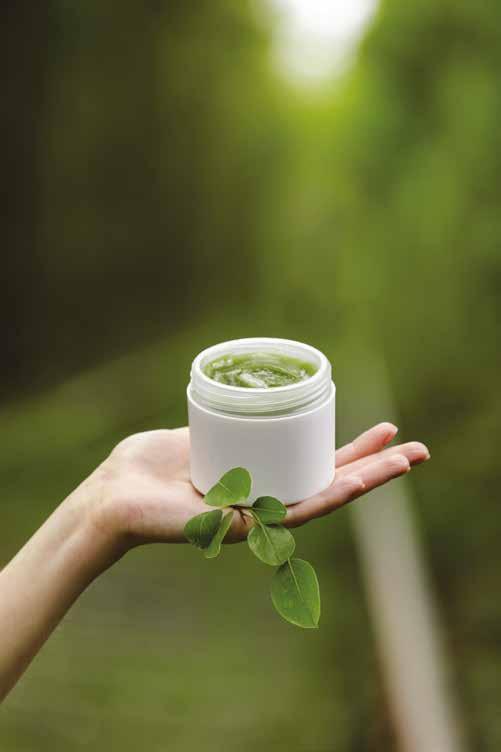
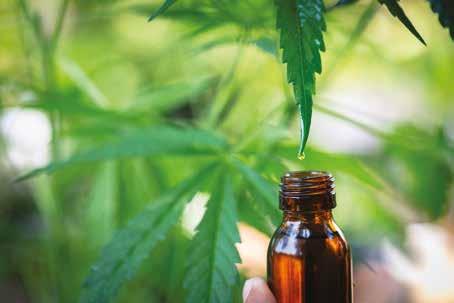
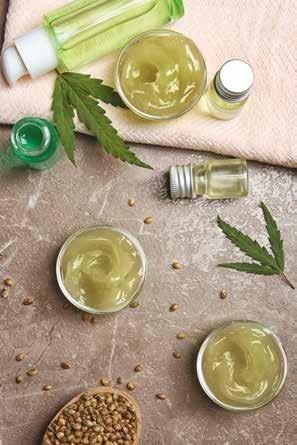




Impartial reviews from The CANNAVIST Editorial team

From citrus to natural, there is nothing plain about CBD oil. We picked six oils to try this spring.
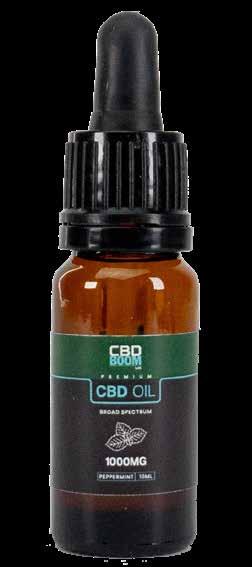
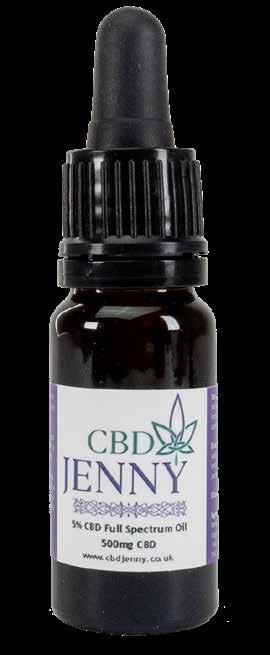 by Alicia Snow-Simpson
by Alicia Snow-Simpson
At first glance, I loved the simplicity of CBD Jenny’s product. It also made me very happy to see that this is a gluten free, vegan-friendly and 100% organically produced oil. If you aren’t a fan of the natural odour of CBD, then this product may not be for you. When twisting open the lid for the first time, there is a strong natural and earthy hemp smell. However, this isn’t a problem when ingesting as the oil has very little taste to it. I’ve previously tried CBD oils that have been very thick to swallow, which is something that I now try to avoid when choosing a product. This wasn’t a problem with CBD Jenny’s oil drops, as they have a lovely consistency – not too thick or too watery. I tried this on a day when I had one of my typical migraine flare ups and can honestly say it was effective for me. The 500mg Full Spectrum CBD oil has definitely left me intrigued to try other products from CBD Jenny’s range.


Well, Well Lab, what can I say? Having been diagnosed with a gastrointestinal disorder for three years now, I am still discovering what I can and cannot ingest. With that being said, I was introduced to CBD thanks to the team at The CANNAVIST Magazine and haven’t looked back since. CBD oil has helped to soothe IBS flare ups for a few months now, yet the highest strength that I had previously tried was only 1000mg. As such I was keen to give this product a go, motivated by the strength. When I first opened the bottle, I noticed a pleasant citrus aroma. But what really made for the WOW factor was the choice I had on how to administer the oil. With this product you will receive both a pipette and a spray option, which I haven’t seen previously. This particular oil was a Godsend with my IBS complications. A truly versatile CBD product that has a gratifying taste and is suitable for vegans too.
This oil made my hungry! I think it was more to do with the lemon flavour, it’s more akin to a lemon-based desert than fruit. This smells divine! I hadn’t heard of this brand before but I understand the products are made in the UK using an extract from US-grown hemp. With 2000mg CBD in a 10ml bottle, this is a great product for those who might want to progress from a starter tincture. I’m not sure if there was a Boom moment but this is a solid lemon flavour with a great broad spectrum cannabinoid profile.


Made in the UK, this is a sophisticated full spectrum product. The quality speaks for itself. Health CBD utilises an ISO standard manufacturing facility, meaning every product has to pass various health and safety standards at different points in the production cycle. The manufacturer also uses hemp oil from plants grown in British soil, so this is truly a homegrown CBD oil. At The CANNAVIST, we love to see CBD manufacturers putting this level of commitment into their products. And it shows. The oil is pure liquid gold, and the terpene aroma is more akin to a roasted nut butter than cannabis. This element will undoubtedly appeal to those who don’t like that typical hemp aroma. The base of this product is olive oil all the way from Greece, which is a nice departure from the standard MCT oil we have grown used to seeing in this product category. There’s a warm, nut-like aftertaste which again, is very similar (and as delicious!) to that of almond butter. A really unique full spectrum blend, this CBD oil is a step up! We sampled the 1000mg product, but there are 500mg and 2000mg versions available too.
If you read the previous issue of The CANNAVIST, you’ll have heard me raving about an Ashwagandha oil. We’re looking at a similar product this time, but with 600mg of CBD in the mix. Doncaster-based Hippie Turtle have created this oil to help with things like focus and concentration. With so much going on in the world and the constant news cycle we are living in, I’m sure I’m not the only one who needs help focusing. Ashwagandha is an adaptogen which helps us manage stress better. It’s very trendy in 2021 but it has been used since ancient times. Like CBD, it has a calming effect on how we are feeling. This take on the duo is strong in taste and effect. Within an hour I would say that I noticed a difference. Taken in the morning, I felt settled in my reaching my goals for the day. A word of caution though. While the carrier oil used is MCT oil, there is a strong colour and taste, but the aftertaste disappears after a few minutes.
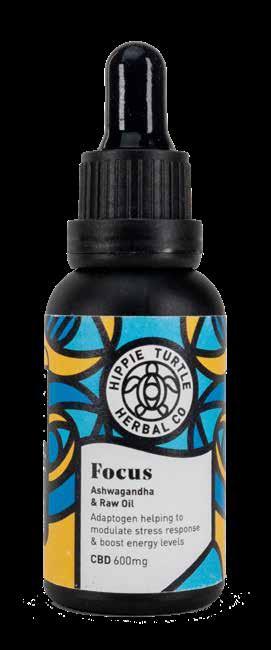




I was previously very impressed with a skin cream from this brand so I really wanted to try the oil. The 1000mg edition resembles a perfectly golden olive oil. With a short spout pipette and a 10ml bottle, this is a really convenient tincture. I found the advice on the label to be too much for my daily needs, but it is good to know that you can take a full pipette per day if you need to. I love how this is a natural oil but with a palatable taste and, no lingering aftertaste. This is a very clean, pure oil which has clearly been manufactured to a high standard. If 1000mg of CBD doesn’t appeal to you, this British brand encapsulates four oil strengths, catering to beginners and connoisseurs.

Head to toe rest and relaxation, these are our top picks for the CBD-infused skincare category this spring.
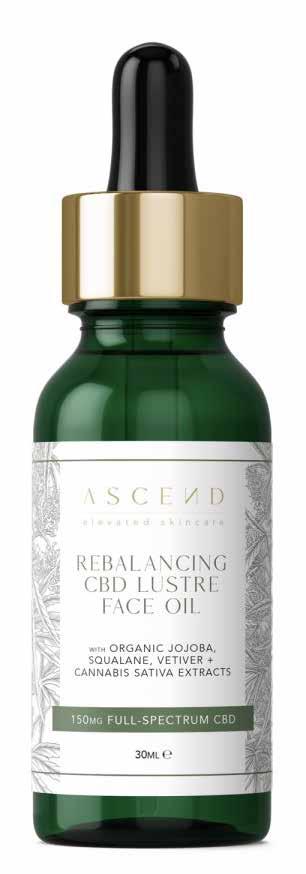
 Tried by Róisín Delaney
Tried by Róisín Delaney
Vegan and cruelty free, Ascend Skincare was created by Cannafull for those who truly care about what they wear on their skin. The British brand encapsulates three skincare products, available separately or as a trio. You might think that this is a small bottle for the £59.99 price tag with 150mg of CBD in the blend, but it packs a punch when it comes to the ingredients list.
Among the powerful extracts which have been specifically chosen to ‘elevate your skincare routine’ are caffeine, squalane, and phyto-retinol. As someone who suffers from oil-induced breakouts in places, I’m always concerned when trying a new oil-based product on my face. My mother always says, ‘Don’t put oil on your face!’ But the combination of ingredients in this formulation work together to help with absorption, so if you are like me and you have concerns about clogging up those troublesome pores or leaving a greasy residue behind, fear not.
Unlike your typical face oil this is more of a serum feel, you sense your skin drinking it up rather than leaving it sitting on top of the skin. To enhance absorption, I applied my water-based moisturiser after cleansing and toning, before getting out my jade derma roller, which I keep in my freezer, to help stimulate blood flow in my neck, cheeks, forehead. I then applied no more than 3 or 4 drops of the oil to the tips of my fingers and gently pressed it into my skin, being careful not to rub too much.
I’m not kidding when I say my skin drank this up! Now, this isn’t something I would use in my routine every day because I don’t think my skin needs that. Instead, I have been using it once or twice a week on the days that I’ve worn a little more makeup than usual and needed to double cleanse at night.
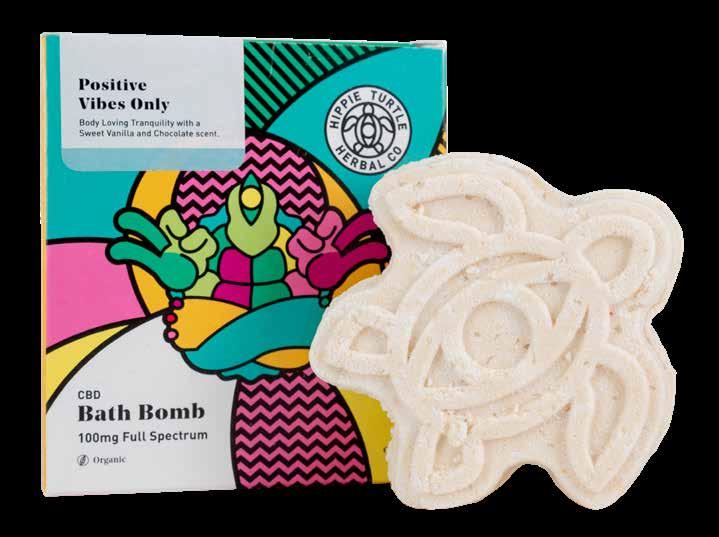 Tried by Róisín Delaney
Tried by Róisín Delaney
Bath bombs are probably the happiest kind of products in my bathroom cabinets. The sole function of a bath bomb is to help us be and feel happy! Hippie Turtle is a brand based in Doncaster that builds on the ‘positive vibes only’ mantra and we could all use a bit of that in our lives as we emerge from the L-word. I found this spin on the bath bomb incredibly refreshing.
The magnesium sulfate really got to work with the warm water on muscle pain from a self-inflicted kettlebell class. The most important question is, does it fizz? Yes, this shea and cacao scented ball of fizzy joy ticks all of the boxes. If you’re partial to an at home spa evening, get your hands on one of these. At the very least dropping it into a tub is cause for celebration. A glass of ice-cold Rosé is optional but advised!
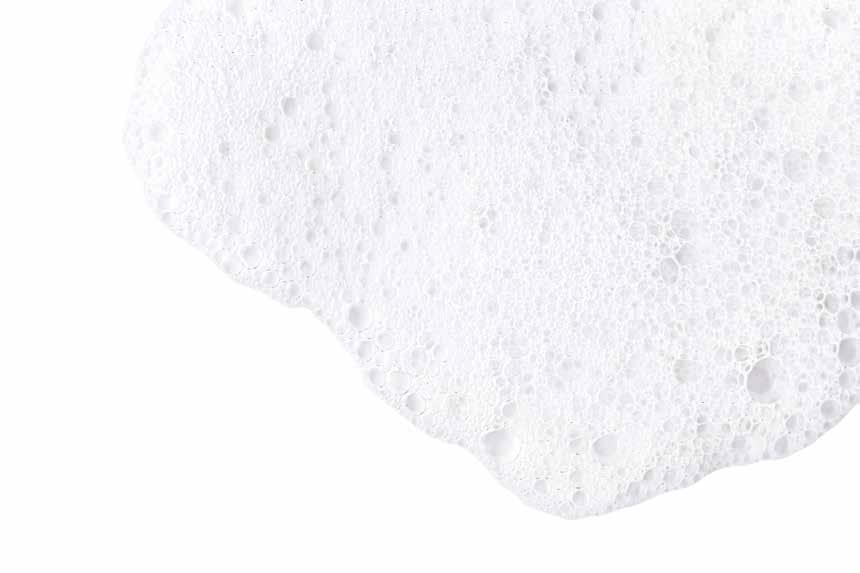
This nano emulsified lavender hand cream was a delight to use. Deliciously scented with calming lavender and essential oils, it has that spa aroma we’ve all been missing. Dr K use what’s called nano technology in their skincare products, giving this hand cream five times more effective absorption compared to other CBD creams, according to the manufacturer.
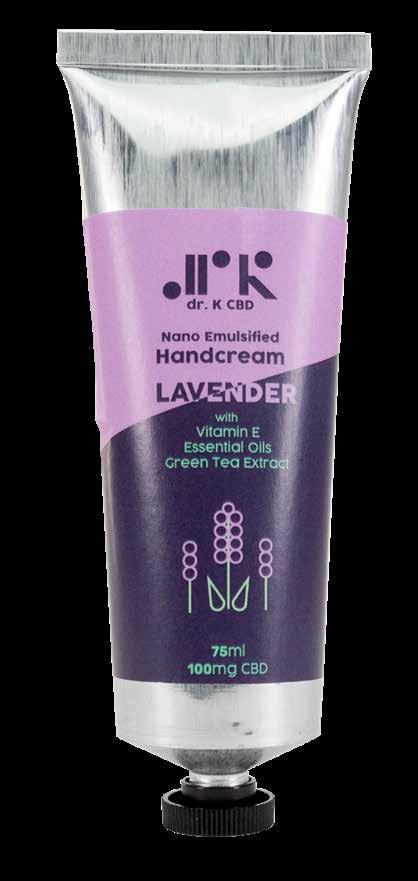
I put this to the test on my own extremely dry and eczema prone hands and it did not disappoint. It left my hands feeling softer and hydrated without causing any irritation to my sensitive skin. It’s a yes from me!


 Tried by Carrie Strouther
Tried by Carrie Strouther
I can’t believe everyone’s favourtie, Primark, is doing CBD skincare! After spending too much time in the spring sunshine, I ended up with slight sunburn. So I decided to try and cover the redness with Primark’s new CBD Colour Corrector concealer. It’s nice and lightweight, not overly thick.
It went on smoothly and took away any harsh red tones. It sat nicely on my skin and didn’t settle or sink into any little dry patches around the eyes. When applying my foundation on top, the concealer stayed in place and kept the redness at bay with decent coverage. Even when wearing a mask, the product stayed. It stayed on even after spending over seven hours in a friend’s garden, and don’t worry, no rules were broken!
 Tried by Jill Shah
Tried by Jill Shah
Getting a massage is an alternate form of self-care to me and one important commitment I have is treating myself to a monthly massage when it’s permitted again. They help to calm my anxiety, moisturise dry skin and relax muscle aches caused by exercising or poor posture when sitting in the office chair for too long.
With beauty salons and spas closed due to the lockdown restrictions, I had to take the DIY route to give my skin some much-needed comfort. Investing and experimenting with different oils has become an absolute ritual. It’s so relaxing! We all know CBD is good for us, but if you‘ve never considered investing in a CBD massage oil, think again. I recently tested the Elitemii CBD Massage Oil which I applied daily after a bath in small amounts.
It definitely feels smooth and light and doesn’t leave skin feeling greasy. It absorbs very well into the skin and doesn’t have any hemp smell. This body oil is a fabulous blend of skin-healthy ingredients like almond oil, coconut, jojoba oil, vitamin E and as an additional benefit this oil has a full plant extract CBD oil. This is another great way to use CBD!
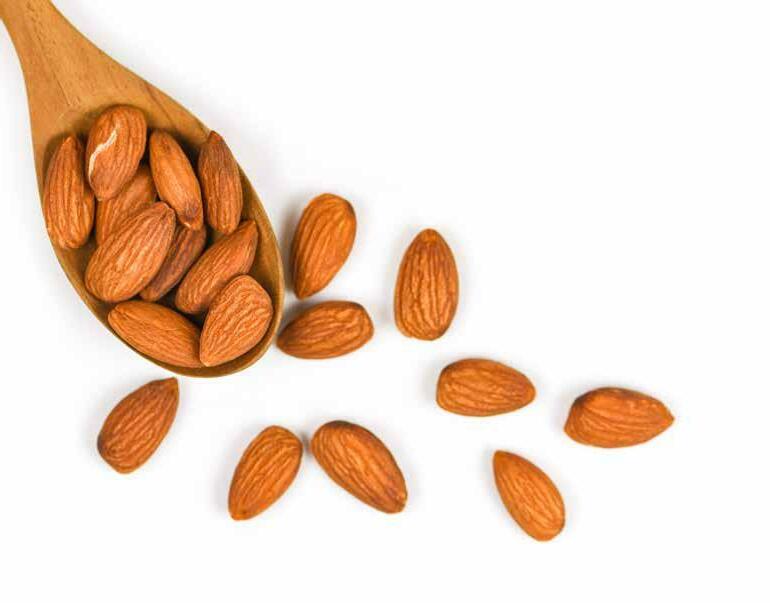
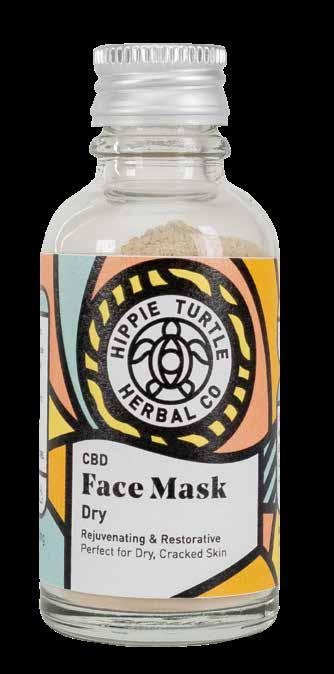 Tried by Alicia Snow-Simpson
Tried by Alicia Snow-Simpson
Boasting all-natural ingredients and fun eco-friendly packaging, I was eager to see how Hippie Turtle’s CBD Face Mask would fair with my annoyingly mixed-matched, combination skin. First off, the product was easy to use with clear instructions on how much of the clay powder and water to mix together.
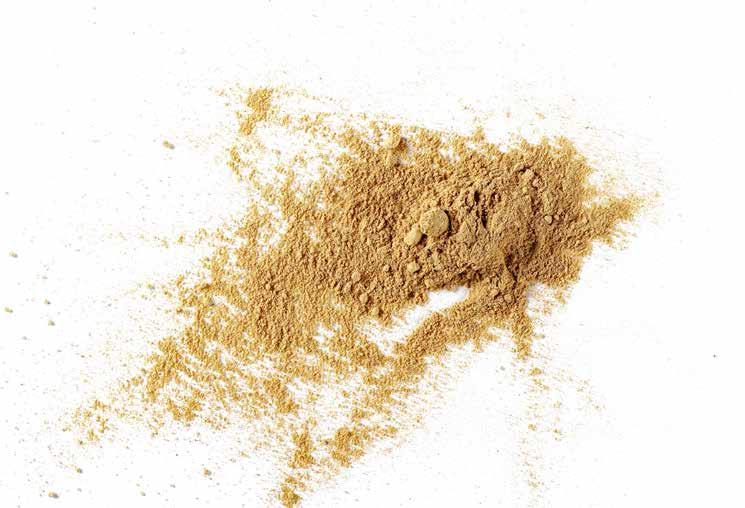
A pleasant surprise was how little product you need to use – you could easily get 10 uses out of this bottle! When applying the clay mask, it disperses nicely onto the skin. There were tiny exfoliating particles within the clay, which was great for targeting dry areas when applying. About 15 minutes later I washed off the mask, and my skin was feeling incredibly soft and fresh – even the driest of areas around my eyes were smooth to the touch. This is a wonderful little bottle of natural goodness. It was quick drying and unscented, which I particularly appreciated as I have had reactions from using strong scented products before. I’m looking forward to using it again on my next weekend pamper day!
 Tried by Jill Shah
Tried by Jill Shah
My skin is naturally oily, but I suppose the external cold weather, hard water or hormonal imbalance have led to dry and flaky skin of late.
I've been hearing a lot of good things about CBD and given my dry skin issues, I am now a moisturiser junkie. When my skin is feeling its driest, I go for my favourite: aloe vera, for its healing properties. Aloe vera is used in lots of skincare products. I tried this CBD Aloe Moisturiser from Primark with calming hemp seed oil. It's like a little hug for dry skin.
I applied a pea-sized amount to the tip of my finger and then proceeded to spread it over my whole face as a thin coat, and bit more generous amount all over my body. Massaging until it is absorbed. This budget-friendly CBD moisturiser does feel refreshing as well as cool and soft. It does not make my skin feel greasy while keeping the skin hydrated which is key. For the price alone, it is definitely worth a try!
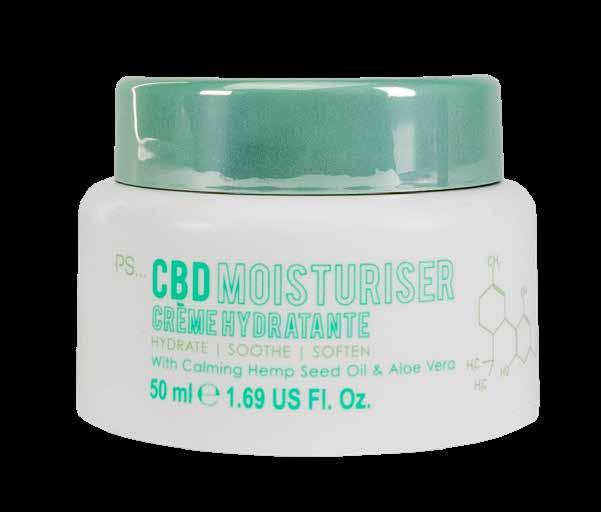
These sweets taste EXACTLY like a good old-fashioned pick ‘n’ mix. You can hardly taste the presence of any hemp extract, but rest assured each gummy contains 10mg of CBD. The only downside is the brand recommends 1-3 sweets per serving.


Hempthy (CBD Embrace), is an awardwinning brand and rightly so. The manufacturers have also ensured that this product can be enjoyed by vegans and coeliacs. The best, true to origin CBD gummies I have ever sampled.

Bitesize CBD wonders tried and tested by the staff of The CANNAVIST. Reviews by the editor.
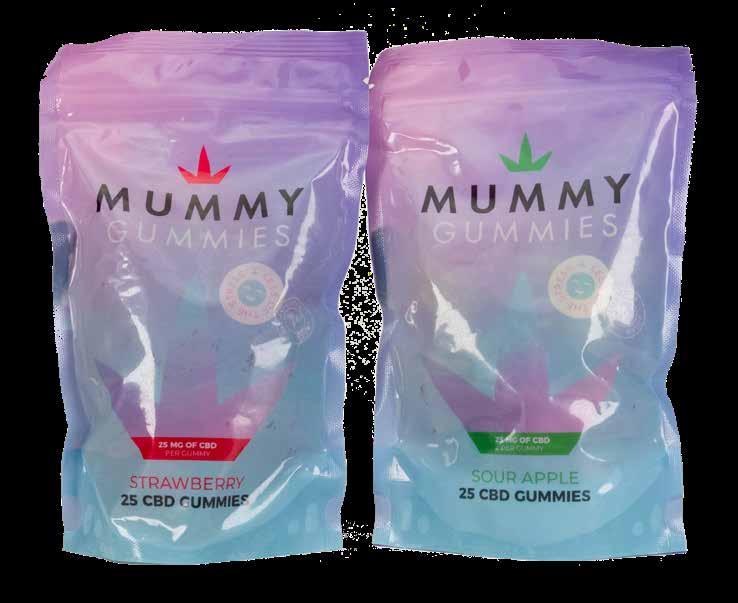
The less stress messaging around this brand will speak to a lot of people, especially women. Creators Sophie and Jess have put together a female-friendly product in what has been, in my view at least, a male focused product category until recently.
Time for the taste test. There is quite a strong hemp taste and aroma at first, but I found this went a long way in satisfying my sugar craving. I didn’t feel that I needed any more than one or two at a time because of that really well-blended hemp flavour. If sour sweets are usually your go-to you will absolutely WORSHIP the sour apple kind from the first bite. At just 38 calories and 25mg of CBD per gummy, these plant-based sweets are free from palm-oil and come in a resealable, recyclable pouch. Mummy Gummies are a happy medium between a treat and a guilt-free snack.

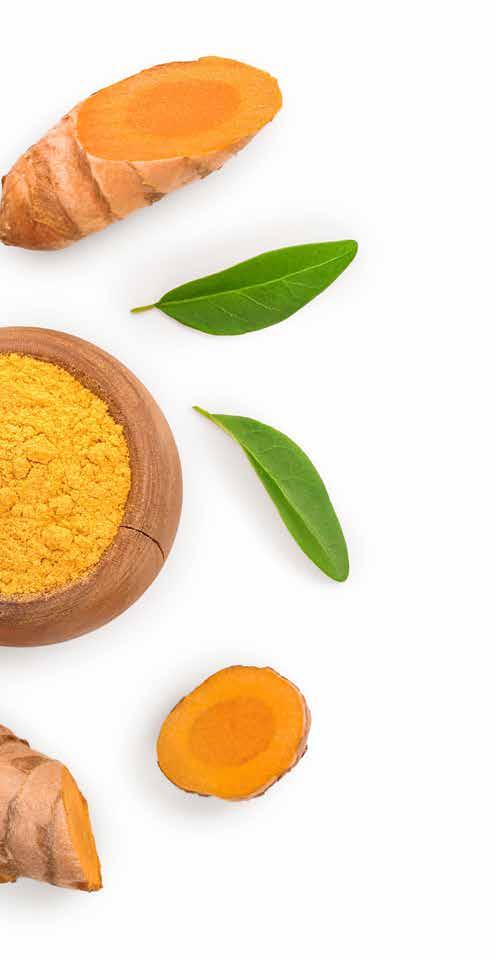
Of the three gummy brands we were given to test for this issue of the magazine, this is the healthkick vibe. CBDFx have had great success in the US and Europe with their full and ever-expanding range of high-quality products.



I was surprised by the appearance of this product and (forgive me!) genuinely thought it resembled a jar of pickles or jalapenos when I saw it on my desk. I tried one instantly at the sight of the word spirulina, which I recently started taking in supplement form.
With turmeric for inflammation and nutrient dense spirulina, this is a great product with a decent amount of CBD too (1500mg per tub). More akin to a multivitamin rather than a sweet, there is no guilt at the bottom of this jar!
These small, often square adhesive patches work on delivering a pre-measured dose of CBD to an area of concern on the body such as tired muscles or problematic joints.
Sometimes called transdermals, these patches work in a similar way to the well-known nicotine patch, the active component in this case being CBD. (It’s worth pointing out these patches are not medical products!)
The cannabinoid is thought to penetrate the skin in the area where it has been applied in a high concentration, allowing the CBD to spread through the various layers of tissue.
So how effective is this route of administration when it comes to CBD? I tried three products sent to us at CANNAVIST HQ to find out for myself.
Patches are a fool-proof, no mess delivery system for CBD. There’s no oil or measurements to fuss over, and they can be applied directly and discreetly onto the skin under clothing. This was the first time I really committed to giving a CBD patch a go.
I have experimented with this kind of product before but I didn’t have a complaint to address, so I couldn’t tell if it really worked or not. This time around I had a nagging muscle pain to solve from a home workout. I used two patches the first day, and one for two consecutive days after that. Health Shield provided an 8mg or 12mg option so I went with the latter.
Each 12mg CBD patch has a purity of 99.83% so this is decent strength for this type of transdermal product. It also includes turmeric and resveratrol which comes from blueberries. With added menthol and Omega 3,6 and 9, the anti-inflammatory potential in these patches is huge and combined with rest, my own experiment proved successful.

Caroline Barry asks: How do CBD patches work and why might they benefi t your lifestyle?
After completing a 15-mile walk recently, I was surprised by how sore my calf muscles were. I’m not the biggest fan of body creams because of the oily residue they can leave so patches have become my go-to in the topical product category. I applied a Cannacare patch directly to the back of my leg while I rested.
The 10mg patches really helped me to shift the worst of my discomfort so that I could move around without cramping. They look and feel like a plaster which means it isn’t obvious that you are using a CBD product. I also appreciated that I could leave it there to work for 24 hours without feeling like I needed to top it up like you might with a cream. You get four in a pack and that is plenty to try for your first time.
Is there anything worse than trying to work through period pain? The Hempton patches came to my rescue this week as I attempted to hold interviews for this issue of the magazine through the worst cramps. I can’t always pop a few drops of a tincture or a puff of a CBD vape while on Zoom, so these patches offered me discreet relief.
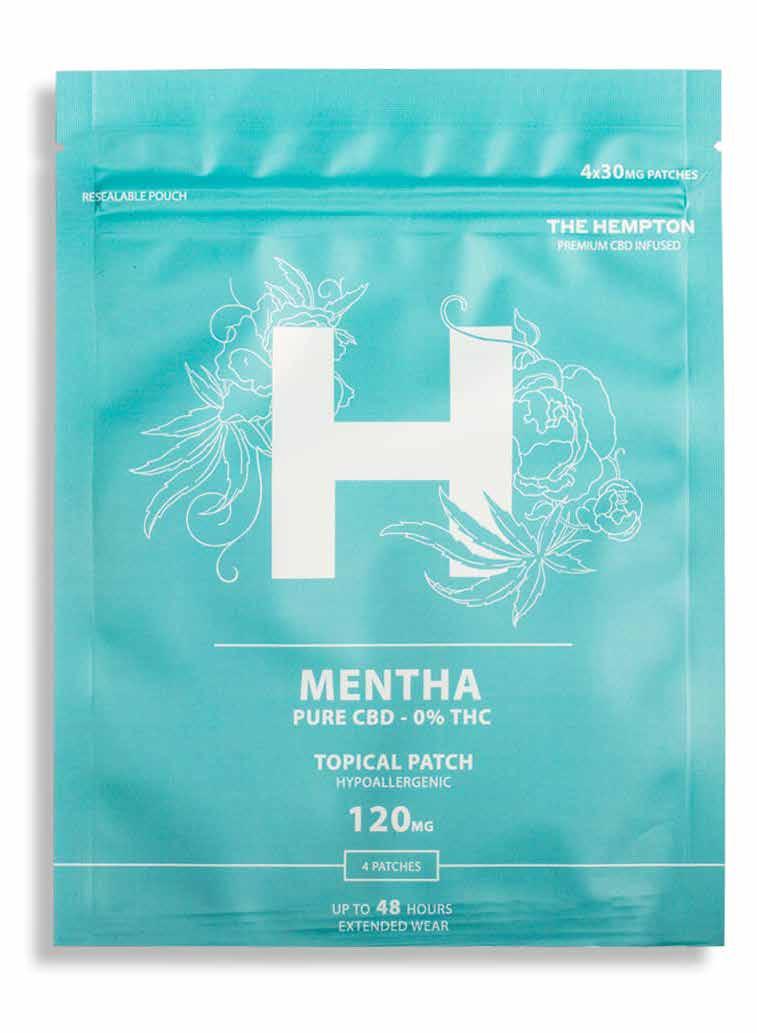
I liked that I could apply them to my stomach too. These are some of the easiest to wear as they are so thin, semitranslucent in material, you almost forget that its even there. I loved that I could wear them for 48 hours and even shower without having to remember to remove them. At 30mg of CBD per patch, this brand carries a slightly higher dose compared to others on the market.








